
May 20, 2016 | Non categorizzato
 At a meeting with young Argentinians in Rio de Janiero, Pope Francis advised: ‘Read the Beatitudes, it will do you good.’ Our task is to re-read the message of the Beatitudes. For three consecutive years, the Pope has chosen for us three out of the eight Beatitudes as the themes for the WYDs. Each one is elaborated on in his addresses, in which he comments on theological matters and gives the youth some tasks for the next year of spiritual work. The choice of Krakow and World Youth Day’s motto lead us to the Spark of Mercy. Since the appearance of Jesus to St. Sister Faustina, Mercy has been radiating from Krakow-Lagiewniki to the whole universal Church. Krakow is widely known as the centre of worship of God’s mercy, and young pilgrims who come will surely want to see the place of the revelations, Sister Faustina’s tomb, and the shrine – the place where St. John Paul II entrusted the world to God’s Mercy. The theme of the XXXI World Youth Day Krakow 2016 is: ‘Blessed are the merciful, for they shall obtain mercy’ (Mt 5:7). Our Holy Father Francis has chosen the fifth of the eight Beatitudes, given by Jesus in his Sermon on the Mount on the shores of the Sea of Galilee, to show the importance of the Beatitudes which are at the heart of Jesus’ teaching. In his first Sermon, Jesus presents us with eight examples of qualities that bring us closer to the Kingdom of God. Among the main events there will be the Opening Mass on the 25th of July, the Welcome Ceremony with the first meeting the Holy Father (28th July), the Way of the Cross with the WYD Cross (29th July), and then the event at the heart of World Youth Day: the Vigil with the Holy Father (30th July) and the Concluding Mass (31st July). The program will also include catechesis in various languages The Youth Festival: a religious, artistic and cultural program takes place in the afternoons and evenings during the three days of catechesis, except during the Main Events. The Youth Festival is composed of open and free initiatives of an artistic, religious and spiritual character. This aspect of WYD gives pilgrims an opportunity to participate in concerts, exhibitions, workshops, sporting events, theatre events and many others. The Youth Festival is prepared for pilgrims, by pilgrims. Everyone has the opportunity to participate not only as a spectator but also as an artist or organizer. The young people of the Focolare Movement will give their contribution towards the preparation of WYD, particularly through an event held during this Festival on 27th July in Krakow, Sports Club Plaszowianka ul. Stroza-Rybna 19 (tram stop 50, 20, 11).
At a meeting with young Argentinians in Rio de Janiero, Pope Francis advised: ‘Read the Beatitudes, it will do you good.’ Our task is to re-read the message of the Beatitudes. For three consecutive years, the Pope has chosen for us three out of the eight Beatitudes as the themes for the WYDs. Each one is elaborated on in his addresses, in which he comments on theological matters and gives the youth some tasks for the next year of spiritual work. The choice of Krakow and World Youth Day’s motto lead us to the Spark of Mercy. Since the appearance of Jesus to St. Sister Faustina, Mercy has been radiating from Krakow-Lagiewniki to the whole universal Church. Krakow is widely known as the centre of worship of God’s mercy, and young pilgrims who come will surely want to see the place of the revelations, Sister Faustina’s tomb, and the shrine – the place where St. John Paul II entrusted the world to God’s Mercy. The theme of the XXXI World Youth Day Krakow 2016 is: ‘Blessed are the merciful, for they shall obtain mercy’ (Mt 5:7). Our Holy Father Francis has chosen the fifth of the eight Beatitudes, given by Jesus in his Sermon on the Mount on the shores of the Sea of Galilee, to show the importance of the Beatitudes which are at the heart of Jesus’ teaching. In his first Sermon, Jesus presents us with eight examples of qualities that bring us closer to the Kingdom of God. Among the main events there will be the Opening Mass on the 25th of July, the Welcome Ceremony with the first meeting the Holy Father (28th July), the Way of the Cross with the WYD Cross (29th July), and then the event at the heart of World Youth Day: the Vigil with the Holy Father (30th July) and the Concluding Mass (31st July). The program will also include catechesis in various languages The Youth Festival: a religious, artistic and cultural program takes place in the afternoons and evenings during the three days of catechesis, except during the Main Events. The Youth Festival is composed of open and free initiatives of an artistic, religious and spiritual character. This aspect of WYD gives pilgrims an opportunity to participate in concerts, exhibitions, workshops, sporting events, theatre events and many others. The Youth Festival is prepared for pilgrims, by pilgrims. Everyone has the opportunity to participate not only as a spectator but also as an artist or organizer. The young people of the Focolare Movement will give their contribution towards the preparation of WYD, particularly through an event held during this Festival on 27th July in Krakow, Sports Club Plaszowianka ul. Stroza-Rybna 19 (tram stop 50, 20, 11).

May 20, 2016 | Focolare Worldwide
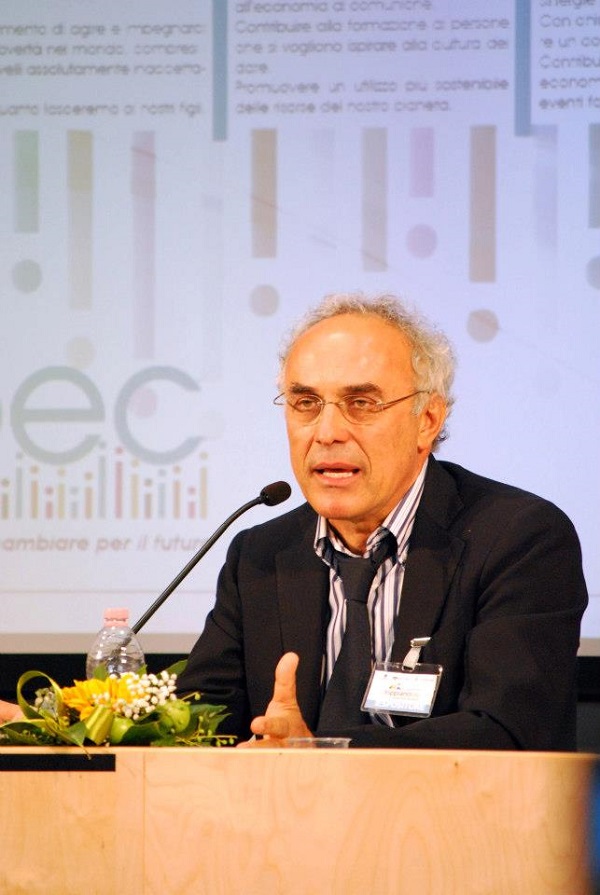 “The inspiration to form the Italian Association of Entrepreneurs for an Economy of Communion (AIPEC), goes back to 2012, during what seemed to be the worst economic crisis in Italy. It was then that a group of businessmen, members of the EoC, felt they had to react. The first step was to see if there were possibilities for their businesses to work with one another. In autumn that year, the memorandum of association was approved, along with the charter and an ethical code. The association immediately proved to be a means for the dissemination of the Economy of Communion.” Upon tracing the association’s origins, Livio Bertola, also illustrated the objectives: “The core values of the association draw inspiration from a “culture of giving.” This is why the shareholders feel the urge not to expect gains for themselves, but to find ways of doing something for the others.” What are the objectives of AIPEC and who does it address? “We are addressing businessmen, freelance professionals, cooperatives and generally, all those who wish to have a people-centred economy: employees, students, housewives, pensioners, unemployed, etc. AIPEC aims to promote the values of the Economy of Communion, and we are trying to do so as best we can: on the one hand, promoting throughout Italy, meetings with people who wish to obtain the utmost from their own work, and organising schools of civil economy with special regard for the young generations; on the other, supporting the activities of associated entrepreneurs, and enhancing the synergies that can be created among them.”
“The inspiration to form the Italian Association of Entrepreneurs for an Economy of Communion (AIPEC), goes back to 2012, during what seemed to be the worst economic crisis in Italy. It was then that a group of businessmen, members of the EoC, felt they had to react. The first step was to see if there were possibilities for their businesses to work with one another. In autumn that year, the memorandum of association was approved, along with the charter and an ethical code. The association immediately proved to be a means for the dissemination of the Economy of Communion.” Upon tracing the association’s origins, Livio Bertola, also illustrated the objectives: “The core values of the association draw inspiration from a “culture of giving.” This is why the shareholders feel the urge not to expect gains for themselves, but to find ways of doing something for the others.” What are the objectives of AIPEC and who does it address? “We are addressing businessmen, freelance professionals, cooperatives and generally, all those who wish to have a people-centred economy: employees, students, housewives, pensioners, unemployed, etc. AIPEC aims to promote the values of the Economy of Communion, and we are trying to do so as best we can: on the one hand, promoting throughout Italy, meetings with people who wish to obtain the utmost from their own work, and organising schools of civil economy with special regard for the young generations; on the other, supporting the activities of associated entrepreneurs, and enhancing the synergies that can be created among them.”  The values of Economy of Communion are expressed in two words that seem to contradict each other … “In effect, the businessmen who join the EoC make a revolutionary choice. The reason why we inserted the preposition “for” is due to the fact that firstly, we are still in the process of building a full communion and none of us has the presumption to feel that we have reached the goal, and secondly, though not less importantly, because Economy of Communion was created for the poor; it is with them that each of the businesses freely shares a part of the corporate profits. This is why we entrepreneurs feel the need to work together by sharing ideas, giving support, paying attention to the others (employees, clients, suppliers, shareholders, or even competitors), and sharing ideas, difficulties and talents. We pay special attention to the businessmen and workers who in these years are suffering the consequences of the economic and social crises.” Who can join your association? “Our network is made up of entrepreneurs and professionals who we define as ordinary partners, and also all the people who want to uphold the values of EoC and who we consider our supporter-partners. You can cooperate with AIPEC also by visiting the site which offers a lot of information on the activities of the association, initiatives and events for information and diffusion. By becoming a supporter, you can become an active part of the projects underway, and also create new projects together.” Any project in the making? “We set an ambitious objective: to spend the next three years from the actual 200 to 6,000 partners! However, personal collaboration and contributions are fundamental, especially of those who already know the EoC and wish to give their time and energy to make the “culture of giving” grow in Italy and throughout the world.”
The values of Economy of Communion are expressed in two words that seem to contradict each other … “In effect, the businessmen who join the EoC make a revolutionary choice. The reason why we inserted the preposition “for” is due to the fact that firstly, we are still in the process of building a full communion and none of us has the presumption to feel that we have reached the goal, and secondly, though not less importantly, because Economy of Communion was created for the poor; it is with them that each of the businesses freely shares a part of the corporate profits. This is why we entrepreneurs feel the need to work together by sharing ideas, giving support, paying attention to the others (employees, clients, suppliers, shareholders, or even competitors), and sharing ideas, difficulties and talents. We pay special attention to the businessmen and workers who in these years are suffering the consequences of the economic and social crises.” Who can join your association? “Our network is made up of entrepreneurs and professionals who we define as ordinary partners, and also all the people who want to uphold the values of EoC and who we consider our supporter-partners. You can cooperate with AIPEC also by visiting the site which offers a lot of information on the activities of the association, initiatives and events for information and diffusion. By becoming a supporter, you can become an active part of the projects underway, and also create new projects together.” Any project in the making? “We set an ambitious objective: to spend the next three years from the actual 200 to 6,000 partners! However, personal collaboration and contributions are fundamental, especially of those who already know the EoC and wish to give their time and energy to make the “culture of giving” grow in Italy and throughout the world.”
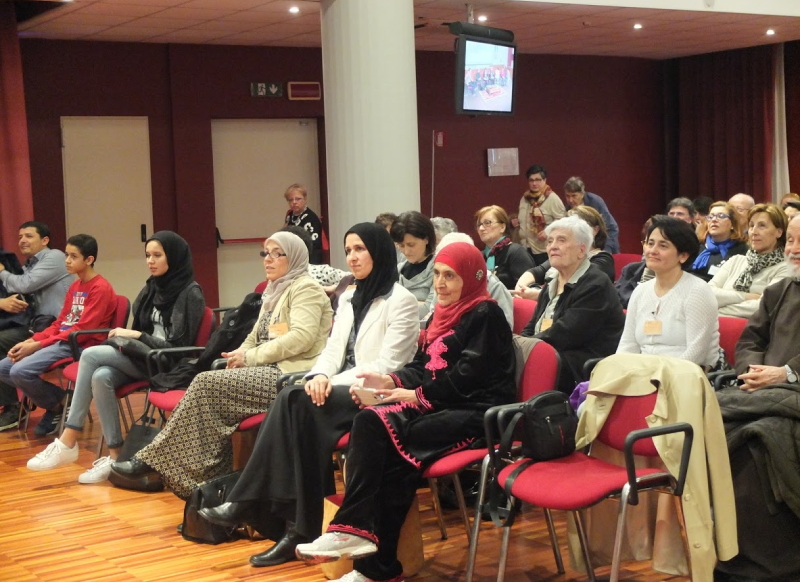
May 19, 2016 | Focolare Worldwide
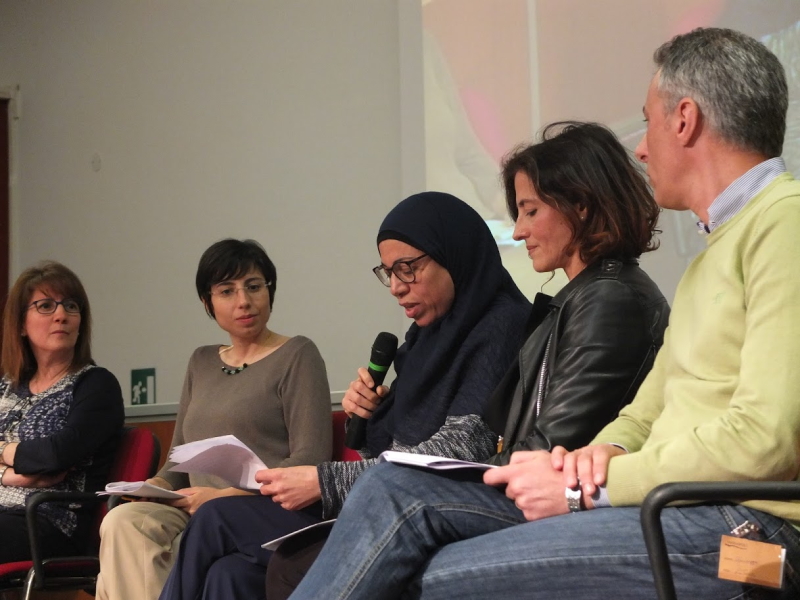
Photo: Rosario De Rosa

Foto: Rosario De Rosa
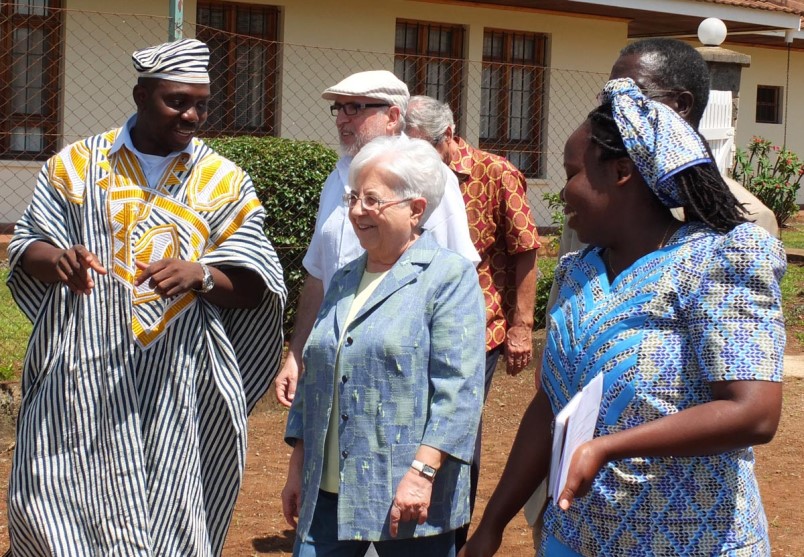
May 18, 2016 | Focolare Worldwide
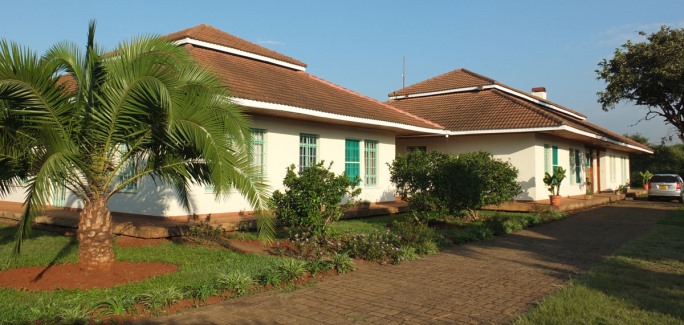
Foto © Ernst Ulz – CSC Audiovisivi

Foto © Ernst Ulz – CSC Audiovisivi
New City Africa
Video in Italian and English:
https://vimeo.com/146788855
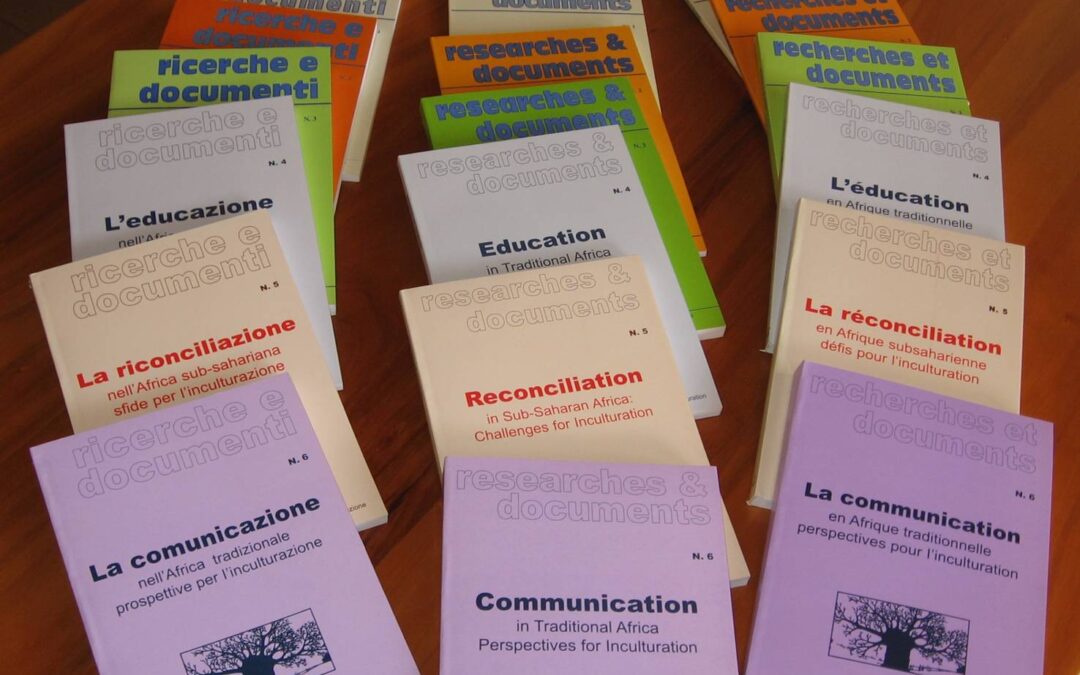
May 17, 2016 | Focolare Worldwide
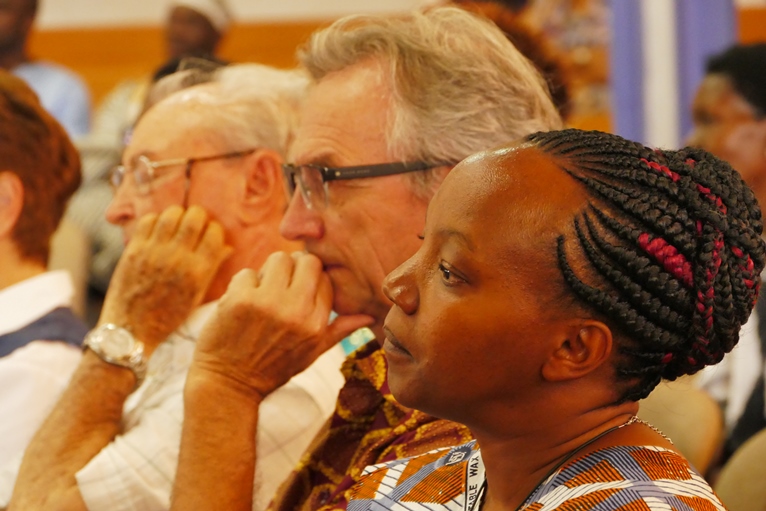
Photo: © Verônica Farias – CSC Audiovisivi
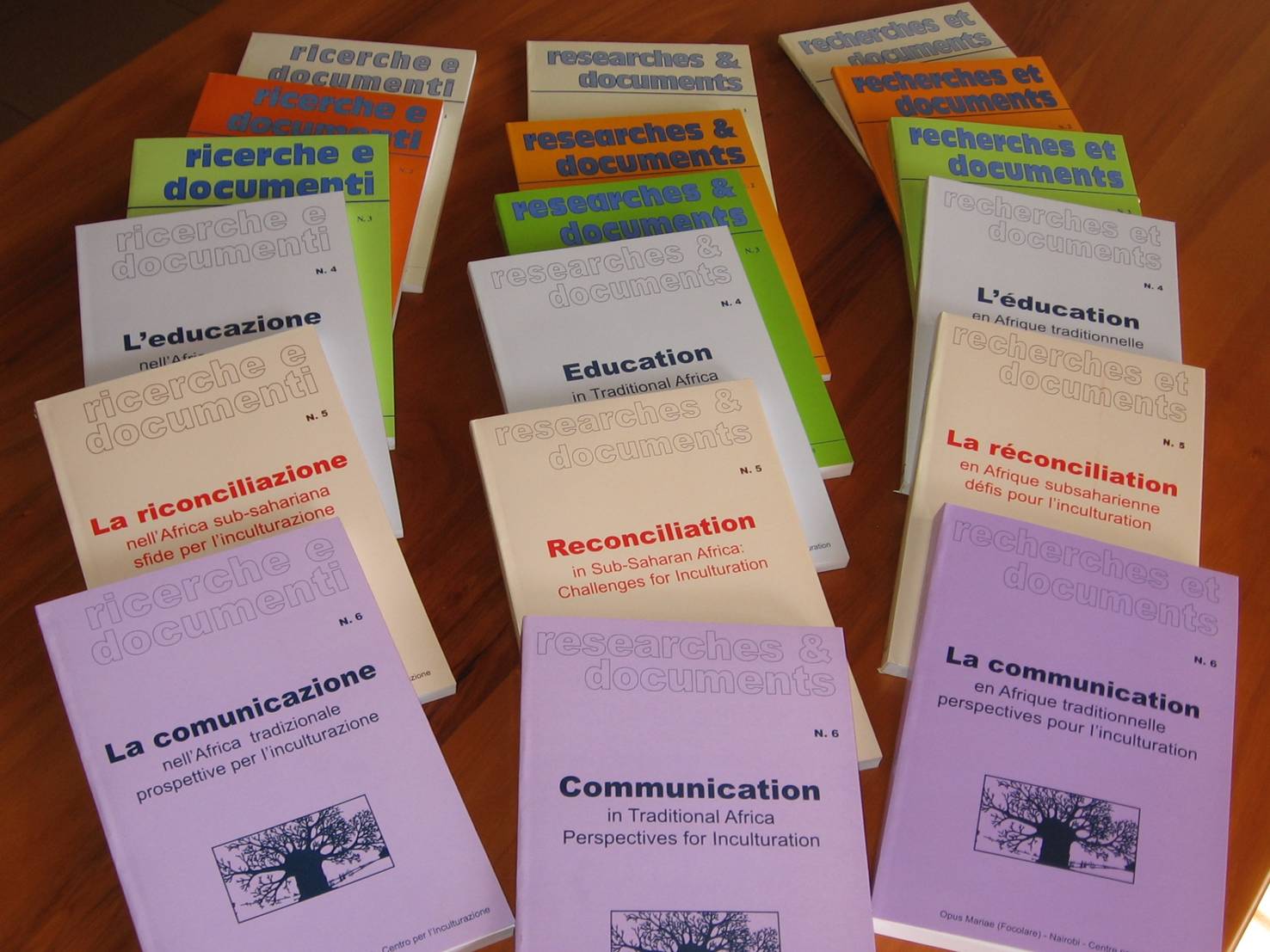 The topics that have been discussed in these years include: private property and work, the sense of the sacred, suffering and death, the reconciliation process, and communication. In 2015, the School focused on the concept of the human person in African cultures. This time we will move on to the intricacy of family relations, aware of the central role that is assigned to the family in African cultures. “We will explore the concept of matrimony in the Tswana, Zulu, Kikuyo cultures, and in cultural groups from Burkina Faso, the Ivory Coast, Congo, Angola, Nigeria, Uganda, Burundi, Cameroon and Madagascar . . . Two guiding principles have been identified: the man-woman role and the institution of marriage as an alliance, and the transmission of values in the family, which is a topic that came into relief during the School on the concept of the human person. Which values? Sharing, hospitality, participation, respect for the elders who are sources of wisdom, willingness to share immediately when necessary.” What significance does the School of Inculturation have? What is its importance for the encounter amongst African cultures, and amongst these and extra-African cultures? Cameroon focolarino and lawyer, Raphael Takougang described it in this way: “In founding the School of Inculturation during her visit to Kenya in 1992, Chiara Lubich touched the soul of the African people. She showed that she understood Africa more than you might think? Her gesture was not a mere formality but the result of a deep love for the people and their cultures that history has not always acknowledged. For more than twenty years African experts, experts on Holy Scripture and of the charism of unity have been working to highlight the “seeds of the Word that are contained in the many different cultures of the continent: first, to shed light on them for Africans themselves so that they might know and appreciate one another better. Then, it is a helping the African people better known abroad, since up until now they have been little known for much beyond famine and war. The cultural patrimony that is gradually being constituted speaks of the presence of God in the daily life of these peoples and could be a significant contribution to dialogue among the peoples of the world that are more and more becoming a “global village”.
The topics that have been discussed in these years include: private property and work, the sense of the sacred, suffering and death, the reconciliation process, and communication. In 2015, the School focused on the concept of the human person in African cultures. This time we will move on to the intricacy of family relations, aware of the central role that is assigned to the family in African cultures. “We will explore the concept of matrimony in the Tswana, Zulu, Kikuyo cultures, and in cultural groups from Burkina Faso, the Ivory Coast, Congo, Angola, Nigeria, Uganda, Burundi, Cameroon and Madagascar . . . Two guiding principles have been identified: the man-woman role and the institution of marriage as an alliance, and the transmission of values in the family, which is a topic that came into relief during the School on the concept of the human person. Which values? Sharing, hospitality, participation, respect for the elders who are sources of wisdom, willingness to share immediately when necessary.” What significance does the School of Inculturation have? What is its importance for the encounter amongst African cultures, and amongst these and extra-African cultures? Cameroon focolarino and lawyer, Raphael Takougang described it in this way: “In founding the School of Inculturation during her visit to Kenya in 1992, Chiara Lubich touched the soul of the African people. She showed that she understood Africa more than you might think? Her gesture was not a mere formality but the result of a deep love for the people and their cultures that history has not always acknowledged. For more than twenty years African experts, experts on Holy Scripture and of the charism of unity have been working to highlight the “seeds of the Word that are contained in the many different cultures of the continent: first, to shed light on them for Africans themselves so that they might know and appreciate one another better. Then, it is a helping the African people better known abroad, since up until now they have been little known for much beyond famine and war. The cultural patrimony that is gradually being constituted speaks of the presence of God in the daily life of these peoples and could be a significant contribution to dialogue among the peoples of the world that are more and more becoming a “global village”.
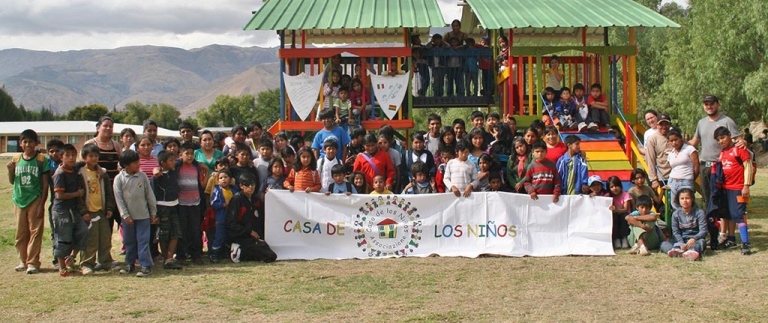
May 16, 2016 | Focolare Worldwide
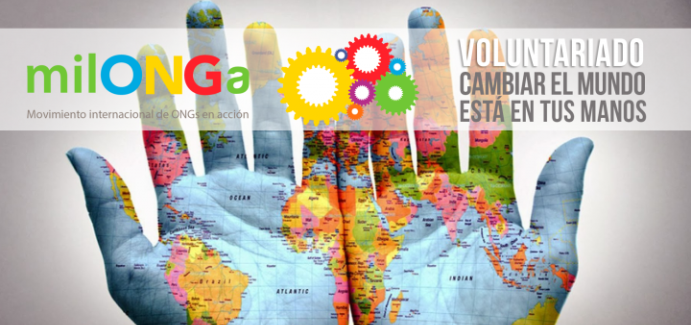 The MilONGa project is the name for a thousand NGOs in action, and offers to young people of 18 and above, the opportunity to practice the role of protagonists in the social work yards of the world’s outskirts. The initiative is promoted by the Focolare Movement in synergy with other humanitarian organisations in the territory. To implement the project, the Focolare in the five continents placed their own facilities and their experience in the field of international relations at the service of the youth, to give them the chance to become promoters of peace and dialogue, in a constant effort to build bridges among individuals, peoples and cultures. Another objective is to develop in the youth those cross-linked competencies that can make them an active part in their own group and be able to influence decision-making processes and lifestyles in their respective social settings. This is a sort of “intercultural volunteer work” which gives the new generations a way of training themselves as protagonists in the change processes, while trying to capitalise on the assets acquired with the implementation of social projects in the world. It is an occasion to learn how to take stock – in the attitude of reciprocity – of the different cultural contexts, put into practice an active citizenship, and develop their own relational and leadership competencies. All of these happen in a continual synergy with the other actors of the project, and not as isolated individuals but in a programme of growth together.
The MilONGa project is the name for a thousand NGOs in action, and offers to young people of 18 and above, the opportunity to practice the role of protagonists in the social work yards of the world’s outskirts. The initiative is promoted by the Focolare Movement in synergy with other humanitarian organisations in the territory. To implement the project, the Focolare in the five continents placed their own facilities and their experience in the field of international relations at the service of the youth, to give them the chance to become promoters of peace and dialogue, in a constant effort to build bridges among individuals, peoples and cultures. Another objective is to develop in the youth those cross-linked competencies that can make them an active part in their own group and be able to influence decision-making processes and lifestyles in their respective social settings. This is a sort of “intercultural volunteer work” which gives the new generations a way of training themselves as protagonists in the change processes, while trying to capitalise on the assets acquired with the implementation of social projects in the world. It is an occasion to learn how to take stock – in the attitude of reciprocity – of the different cultural contexts, put into practice an active citizenship, and develop their own relational and leadership competencies. All of these happen in a continual synergy with the other actors of the project, and not as isolated individuals but in a programme of growth together.  The first phase will provide assignments in the South American and Caribbean countries, to then extend to other areas where there are socially inclusive development activities that can host them, and where the youth may spend periods of one to six months, accompanied by local volunteers and tutors. Consult the portal United World Project to view the localities where volunteer services can be done and download the pdf file for registration. Subsequently, the regional coordinators will contact the subscribers for an interview, and assess with them a personalized proposal which also includes preliminary training (in collaboration with AMU, the Focolare NGO), informal teambuilding and networking activities, and present associations that will host them onsite. Upon reaching the destination, after a brief training period on the local context, the youth will start their established volunteer service, during which they will also be involved in cultural tours, participation in international events and recreational activities. For Europe, the agency in charge of the selection and dispatch of volunteers is New Humanity, for the Spanish-American regions, the Sumá Fraternidad, and for Brazil, Sociedade Movimento dos Focolari. Gustavo Clariá Website Milonga Facebook Info: mariachiarahumura@gmail.com
The first phase will provide assignments in the South American and Caribbean countries, to then extend to other areas where there are socially inclusive development activities that can host them, and where the youth may spend periods of one to six months, accompanied by local volunteers and tutors. Consult the portal United World Project to view the localities where volunteer services can be done and download the pdf file for registration. Subsequently, the regional coordinators will contact the subscribers for an interview, and assess with them a personalized proposal which also includes preliminary training (in collaboration with AMU, the Focolare NGO), informal teambuilding and networking activities, and present associations that will host them onsite. Upon reaching the destination, after a brief training period on the local context, the youth will start their established volunteer service, during which they will also be involved in cultural tours, participation in international events and recreational activities. For Europe, the agency in charge of the selection and dispatch of volunteers is New Humanity, for the Spanish-American regions, the Sumá Fraternidad, and for Brazil, Sociedade Movimento dos Focolari. Gustavo Clariá Website Milonga Facebook Info: mariachiarahumura@gmail.com
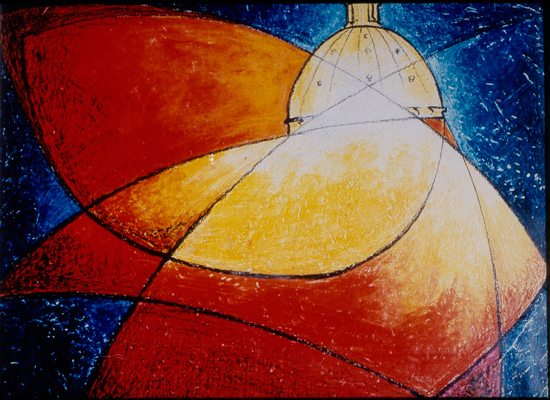
May 15, 2016 | Non categorizzato

Centro Ave Loppiano: Copyright Marika Tassi, ‘La chiesa’ – Roma 1962
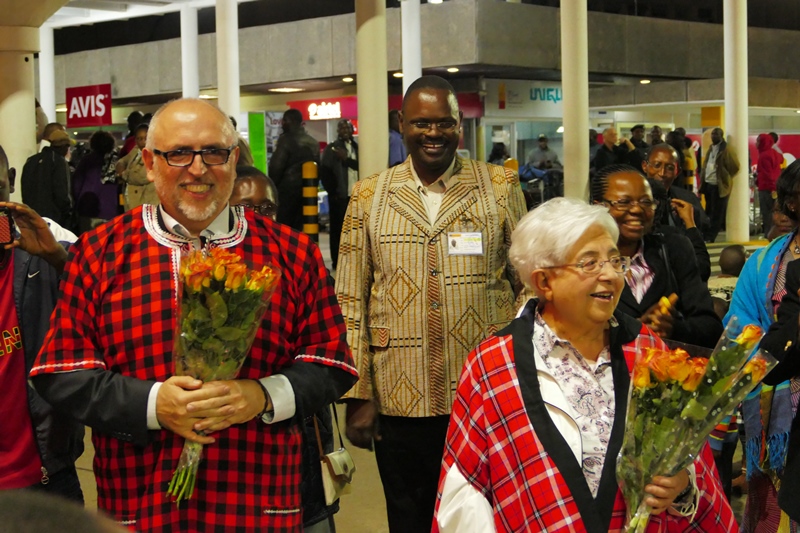
May 14, 2016 | Focolare Worldwide

Arrival at Nairobi airport. Photo © Verônica Farias – CSC Audiovisual
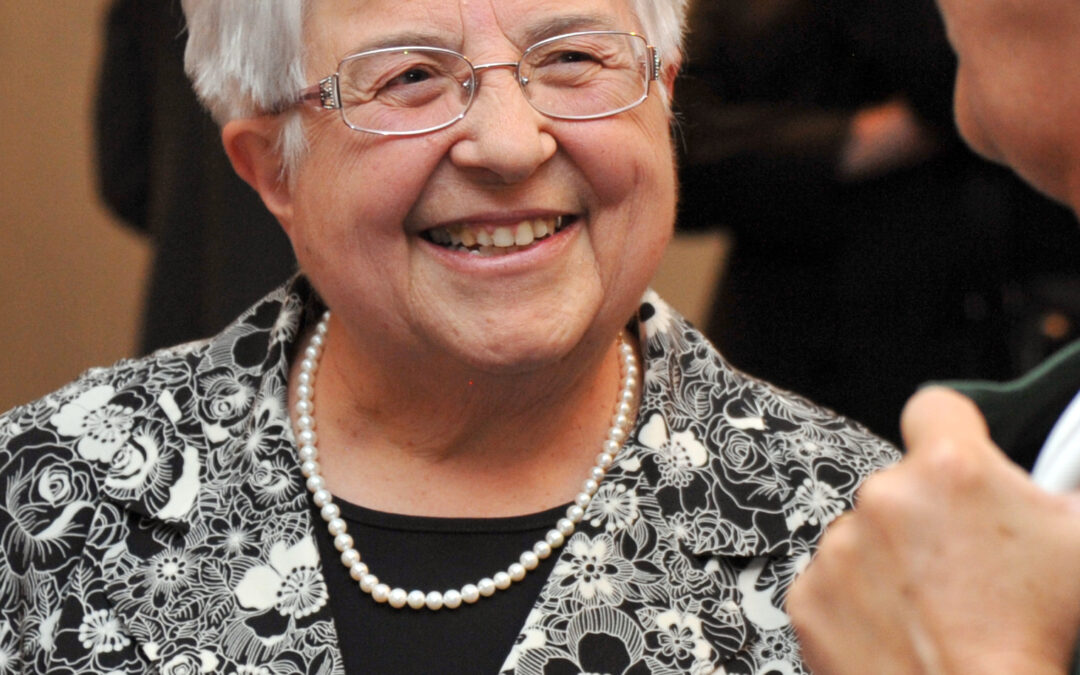
May 13, 2016 | Non categorizzato
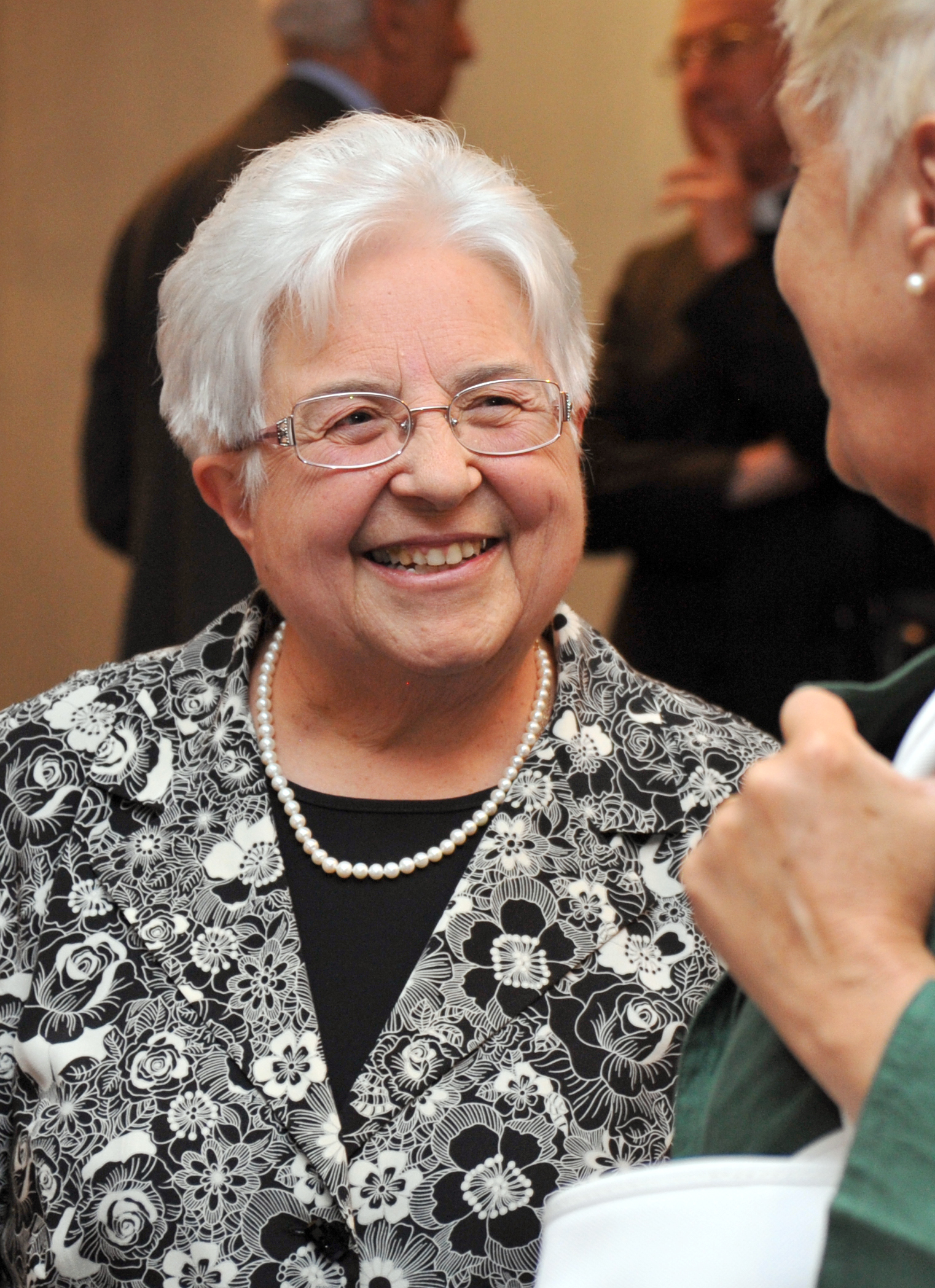
(C) Centro Santa Chiara Audiovisivi
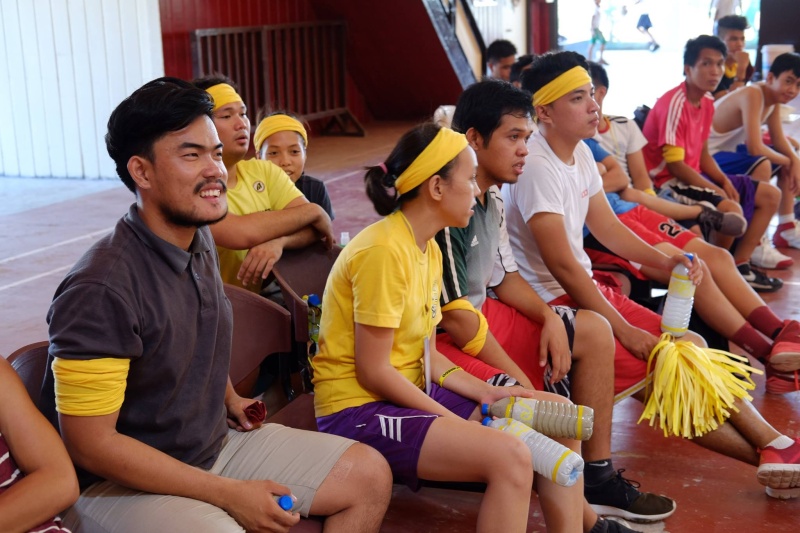
May 13, 2016 | Focolare Worldwide
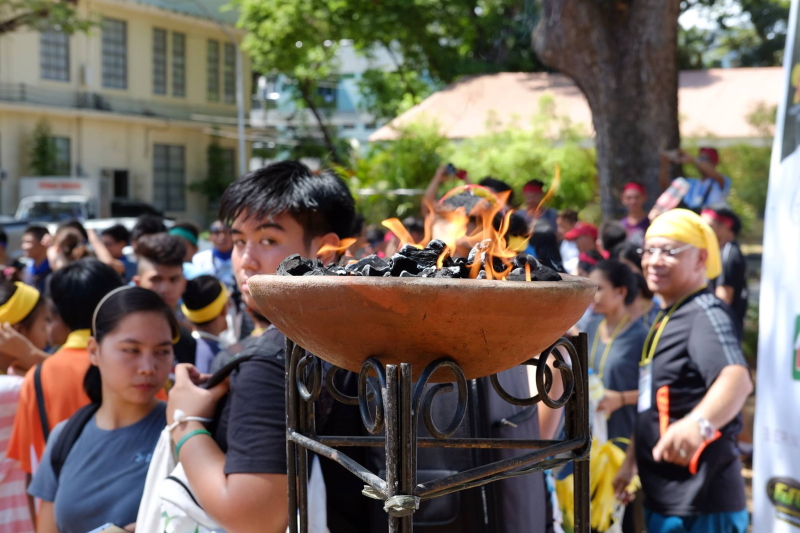 Political involvement in the Philippines, especially among younger age groups, has always been a key issue. Over the years, the Focolare Movement has promoted events that encourage active involvement in the democratic process for the building of a more fair just country. A few days away the from election, on May 12-14, 2016, a Run4Unity event is being held by the young people and teenagers of the Focolare Movement with the stated intention of strengthening ties with society. In the local dialect it is titled “Dula Napud Ta Bai”, which means “Let’s play, friend”, abbreviated “DULA TA Bai”. Joops Miranda, one of the young organizers, writes: “The event is meant to promote awareness of each individual’s ability to become a catalyst of a more united world. It wishes to help strengthen interpersonal relationships and to build new ones. It aims at encouraging dialgogue about current issues amongst young people from different communities, in a setting where they can also have fun! We hope to accomplish this goal through the many sport and recreational activities that will be offered. This underscores our final goal, which is to unite people of different ethnic origins, nationalities and religious beliefs . . . to become a family.”
Political involvement in the Philippines, especially among younger age groups, has always been a key issue. Over the years, the Focolare Movement has promoted events that encourage active involvement in the democratic process for the building of a more fair just country. A few days away the from election, on May 12-14, 2016, a Run4Unity event is being held by the young people and teenagers of the Focolare Movement with the stated intention of strengthening ties with society. In the local dialect it is titled “Dula Napud Ta Bai”, which means “Let’s play, friend”, abbreviated “DULA TA Bai”. Joops Miranda, one of the young organizers, writes: “The event is meant to promote awareness of each individual’s ability to become a catalyst of a more united world. It wishes to help strengthen interpersonal relationships and to build new ones. It aims at encouraging dialgogue about current issues amongst young people from different communities, in a setting where they can also have fun! We hope to accomplish this goal through the many sport and recreational activities that will be offered. This underscores our final goal, which is to unite people of different ethnic origins, nationalities and religious beliefs . . . to become a family.” 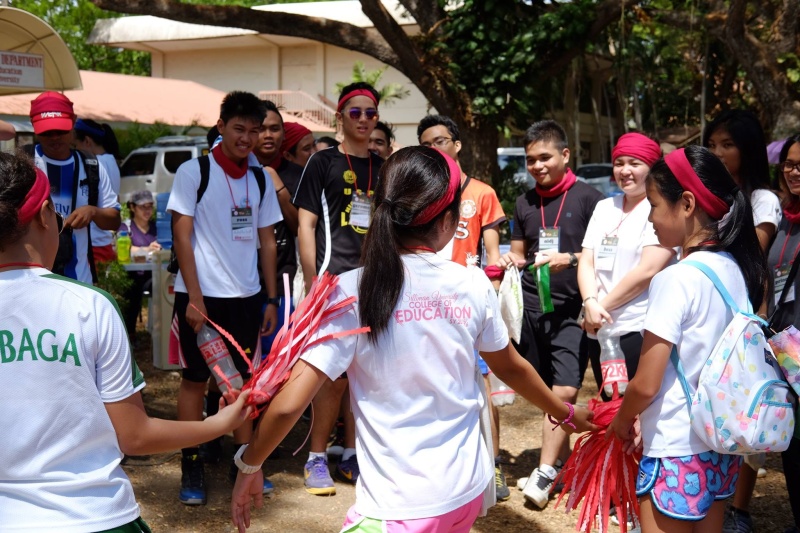 Where did the idea for Dula Ta Bai come from? Joops explains: “In the summer of 2014, we and some friends were wondering how we could avoid wasting another summer sitting in front of a computer screen, playing on our personal tablet. The initial idea came in this way: we were chatting with each other: Why not spend a whole day (which then became three days) doing different physical activities? Things that could be done together, outside in the open, inviting the local community to join us? Two months later there were 200 of us together from several parts of the Philippines. Basketball, volleyball, light exercize, football, frisbee and the ever-popular “Amazing Race” are some of the sport events offered at Dula Ta Bai. Then, the event will conclude with an evening programme called “U-Nite”, with music and story sharing.
Where did the idea for Dula Ta Bai come from? Joops explains: “In the summer of 2014, we and some friends were wondering how we could avoid wasting another summer sitting in front of a computer screen, playing on our personal tablet. The initial idea came in this way: we were chatting with each other: Why not spend a whole day (which then became three days) doing different physical activities? Things that could be done together, outside in the open, inviting the local community to join us? Two months later there were 200 of us together from several parts of the Philippines. Basketball, volleyball, light exercize, football, frisbee and the ever-popular “Amazing Race” are some of the sport events offered at Dula Ta Bai. Then, the event will conclude with an evening programme called “U-Nite”, with music and story sharing.  The young people wondered how they could develop the second event: “The renewal of our way of thinking and doing, also plays a vital part in approaching Jesus’s prayer “that all may be one” (Jn 17:21)” Joop explains. So we left room for the concept of ‘environmental conscience’ (‘Pagkabana Kalikupan’). We’re trying to respond to Pope Francis’s appeal in Laudato Si’ which reminds us of Mother Nature’s cry, and we wanted to help in promoting an itegral ecology. An integral ecology, as the Pope explains, is an ecology that isn’t concentrated only on nature while leaving out humankind and its needs, but rather includes a “human” ecology. Therefore, following this line of thought we hope to convey to the other young people the value of caring for one another (with sport, cultural, musical and artistic activities) and of caring for the environment.” Maria Chiara De Lorenzo
The young people wondered how they could develop the second event: “The renewal of our way of thinking and doing, also plays a vital part in approaching Jesus’s prayer “that all may be one” (Jn 17:21)” Joop explains. So we left room for the concept of ‘environmental conscience’ (‘Pagkabana Kalikupan’). We’re trying to respond to Pope Francis’s appeal in Laudato Si’ which reminds us of Mother Nature’s cry, and we wanted to help in promoting an itegral ecology. An integral ecology, as the Pope explains, is an ecology that isn’t concentrated only on nature while leaving out humankind and its needs, but rather includes a “human” ecology. Therefore, following this line of thought we hope to convey to the other young people the value of caring for one another (with sport, cultural, musical and artistic activities) and of caring for the environment.” Maria Chiara De Lorenzo
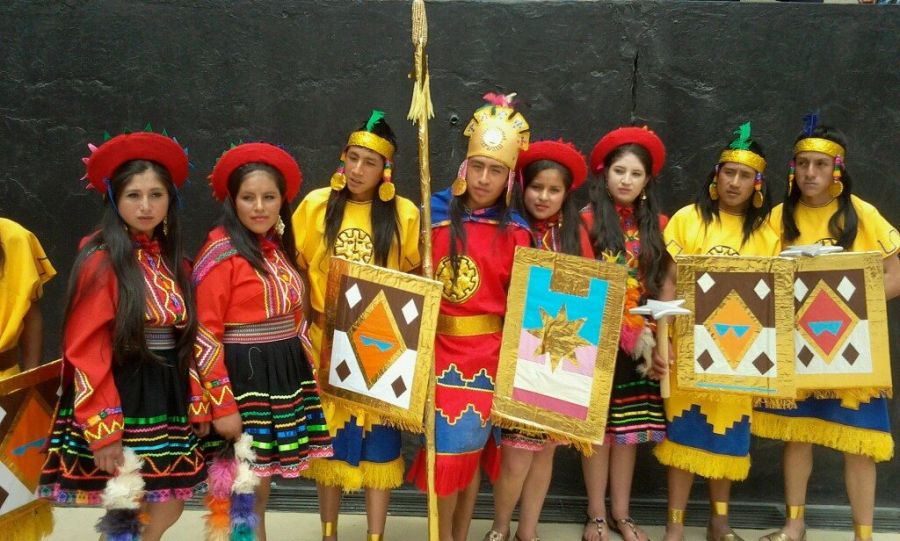
May 12, 2016 | Focolare Worldwide
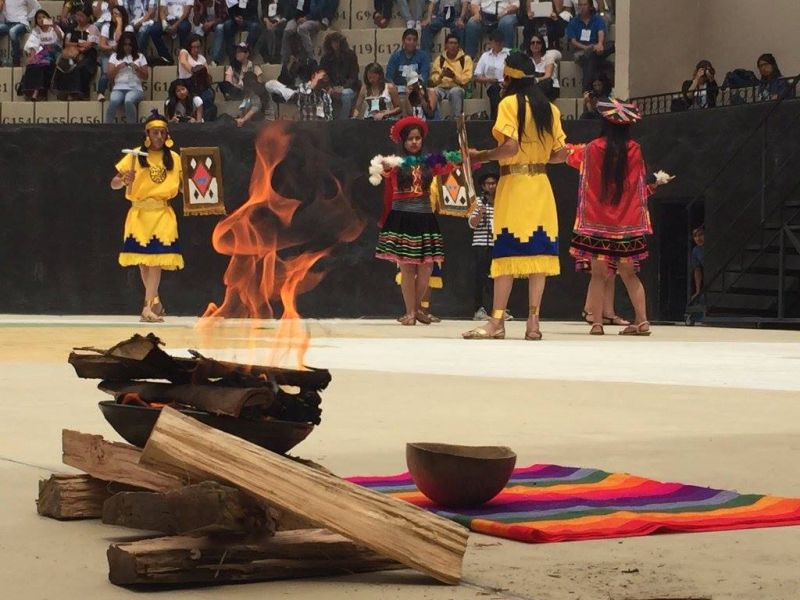 A Festival for Peace concluded United World Week in Ecuador. It was a veritable expo of fraternal actions promoted by the young people of the Focolare Movement. The account of Francesco Ricciardi from the international delegation that travelled the roads of Ecuador in an experience that powerfully brought out the communitarian vocation of the South American continent. “Traditional and modern musical instruments joined together in giving life to a real feast. Young people from Africa, Asia, Europe and the Americas took to the stage. The whole world is in Quito today!” “Even from amidst last week’s destruction, we saw a chain of generosity and solidarity emerge,” Juan Carlos reported. Many concrete experiences of after the earthquake were presented on the stage. Jesús recounts: “When we saw the first pictures, we realized the serious extent of the damages. With several friends we began to organize a collection of basic necessities. We worked from morning until the middle of the night, for love of our brothers and sisters.” Natalia continues: “We focused on areas that were devastated by the earthquake, trying to respond to the cry of suffering. At first it wasn’t clear how we could be of any help. Then I realized that I could love by listening and taking on the pain of the people I met.” David says: “I saw open hands that didn’t hesitate for a single second to give: food, water, medicine and money; hands that didn’t have anything to give, but pitched in to help. I saw an Ecuador shattered by desperation, thirst and fear. But I saw faces of joy, satisfaction and hope at receiving such selfless assistance. I worked beside people who left everything behind: the job, school and even their own family to help people who had lost everything. I got a close up look at the goodness of the Ecuadorians and others.”
A Festival for Peace concluded United World Week in Ecuador. It was a veritable expo of fraternal actions promoted by the young people of the Focolare Movement. The account of Francesco Ricciardi from the international delegation that travelled the roads of Ecuador in an experience that powerfully brought out the communitarian vocation of the South American continent. “Traditional and modern musical instruments joined together in giving life to a real feast. Young people from Africa, Asia, Europe and the Americas took to the stage. The whole world is in Quito today!” “Even from amidst last week’s destruction, we saw a chain of generosity and solidarity emerge,” Juan Carlos reported. Many concrete experiences of after the earthquake were presented on the stage. Jesús recounts: “When we saw the first pictures, we realized the serious extent of the damages. With several friends we began to organize a collection of basic necessities. We worked from morning until the middle of the night, for love of our brothers and sisters.” Natalia continues: “We focused on areas that were devastated by the earthquake, trying to respond to the cry of suffering. At first it wasn’t clear how we could be of any help. Then I realized that I could love by listening and taking on the pain of the people I met.” David says: “I saw open hands that didn’t hesitate for a single second to give: food, water, medicine and money; hands that didn’t have anything to give, but pitched in to help. I saw an Ecuador shattered by desperation, thirst and fear. But I saw faces of joy, satisfaction and hope at receiving such selfless assistance. I worked beside people who left everything behind: the job, school and even their own family to help people who had lost everything. I got a close up look at the goodness of the Ecuadorians and others.”  Some artistic offerings made the celebration even more pleasant and helped to enhance the testimonies. Melany recounts: “When I began to sing in the university chorus I realized that, to have a place in the chorus my friends hadn’t hesitated to offend and insult others. One day, I decided to share the songs I had written. It was a first step. Since then everything has changed. Others have also begun to share their hidden talents that they are finally able to display without fear! The relationship among us all has very much improved. On May 8, 2015 we put together a concert of Latin American music with the goal of transmitting the value of fraternity.” Lebanese young people Giorgio and Lara, even though immersed in one of the bloodiest wars in history, found the strength to love everyone: “The war in Syria has produced 6.5 million refugees inside the country and 3 million have fled to neighbouring countries. Nevertheless, hundreds of public rallies have been held throughout the Middle East to raise funds and supplies of all sorts, and to give a joint witness as Christians and Muslims that unity is possible. Concerts, feasts and prayer vigils have transformed the feast into hope, hatred into pardon and revenge into peace. So many families with such poor financial resources have taken in Iraqi refugees. In Syria many have said to us: “Love conquers all, even when that seems impossible.” David and Catalina presented the “Peace Schools”, a programme promoted in collaboration with Sophia University Institute: “The objective is to create spaces of formation in the theory and practice of fraternity, strengthening relationships with oneself, others, Creation, objects and with transcendence. Universal brotherhood could create a politics that is at the service of all: an economy based on communion; a balanced ecology: a world that is everyone’s home.” The programme is one of the concrete efforts of the United World Project. The festival of inculturation concluded with Samiy, an indigenous young person from the Kitu Kara community: “We’ve spent a week together in which we have experienced that it is possible to bring fraternity, unity, solidarity and peace into our lives, into our local environments and into our world. Humankind is alive. Our commitment is personal, but we can do it only if we feel that we are part of a community. Today we were witnesses to the beauty and diversity and the richness of the cultures.” The joy was irrepressible. During the final song everyone inside the arena was dancing! Young and old, children and teenagers: everyone dancing for joy. But it was no fleeting joy, but the awareness that we are many, a single people with Love for its banner. And as Lidia and Walter said: “This is no conclusion. This is only the beginning!” Source: Città Nuova online
Some artistic offerings made the celebration even more pleasant and helped to enhance the testimonies. Melany recounts: “When I began to sing in the university chorus I realized that, to have a place in the chorus my friends hadn’t hesitated to offend and insult others. One day, I decided to share the songs I had written. It was a first step. Since then everything has changed. Others have also begun to share their hidden talents that they are finally able to display without fear! The relationship among us all has very much improved. On May 8, 2015 we put together a concert of Latin American music with the goal of transmitting the value of fraternity.” Lebanese young people Giorgio and Lara, even though immersed in one of the bloodiest wars in history, found the strength to love everyone: “The war in Syria has produced 6.5 million refugees inside the country and 3 million have fled to neighbouring countries. Nevertheless, hundreds of public rallies have been held throughout the Middle East to raise funds and supplies of all sorts, and to give a joint witness as Christians and Muslims that unity is possible. Concerts, feasts and prayer vigils have transformed the feast into hope, hatred into pardon and revenge into peace. So many families with such poor financial resources have taken in Iraqi refugees. In Syria many have said to us: “Love conquers all, even when that seems impossible.” David and Catalina presented the “Peace Schools”, a programme promoted in collaboration with Sophia University Institute: “The objective is to create spaces of formation in the theory and practice of fraternity, strengthening relationships with oneself, others, Creation, objects and with transcendence. Universal brotherhood could create a politics that is at the service of all: an economy based on communion; a balanced ecology: a world that is everyone’s home.” The programme is one of the concrete efforts of the United World Project. The festival of inculturation concluded with Samiy, an indigenous young person from the Kitu Kara community: “We’ve spent a week together in which we have experienced that it is possible to bring fraternity, unity, solidarity and peace into our lives, into our local environments and into our world. Humankind is alive. Our commitment is personal, but we can do it only if we feel that we are part of a community. Today we were witnesses to the beauty and diversity and the richness of the cultures.” The joy was irrepressible. During the final song everyone inside the arena was dancing! Young and old, children and teenagers: everyone dancing for joy. But it was no fleeting joy, but the awareness that we are many, a single people with Love for its banner. And as Lidia and Walter said: “This is no conclusion. This is only the beginning!” Source: Città Nuova online
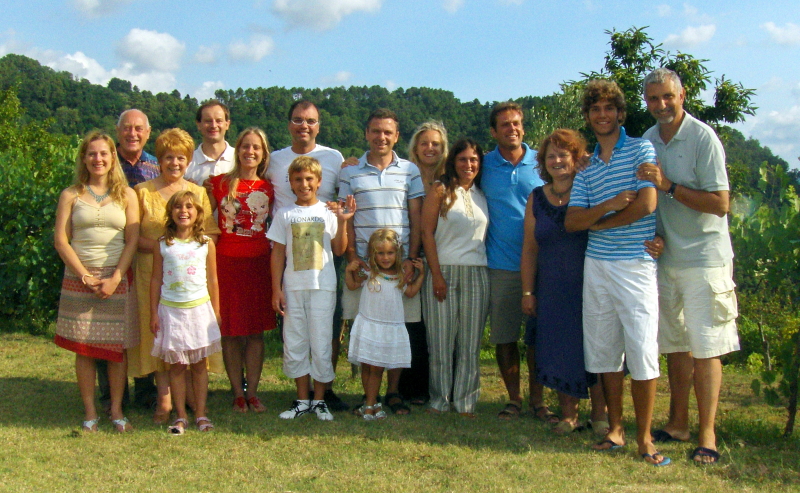
May 11, 2016 | Focolare Worldwide
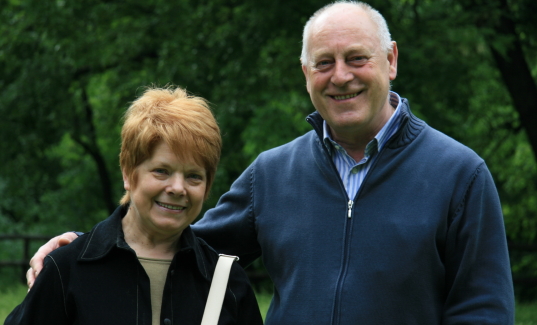 “A family’s history is beset by all types of crises.” This was how Pope Francis introduced his speech on the crisis of couples described in Amoris Laetitia (AL 232 and ff.), thus interpreting the various phases with great realism. These pages seem to recount my story, of when as a child of five, I lost my father and was impoverished by the lack of a future, and when, as a young man, I found in the love of a girl, a breath of new life and hope for happiness and then, as a disillusioned person, I found myself alone. But it is also the story of a community that welcomed and saved me. After Renzo’s nautical studies he embarked on the ships of the Mercantile Marines, and during a leave, met Mariarosa and love bloomed. It was such a great sentiment that could not accept distances. He left his maritime job for her, and his new job led him to live far from their families, friends, and the usual life. The entire universe enfolded the two of them in a dream, and both put their bets on happiness with one another. All went well until when our differences, attractive at the start, slowly started to disturb our harmony. It reached the point that they seemed unacceptable, and made us feel like strangers to one another, in the conviction that we had chosen the wrong person. And in the bitter disappointment we admitted that the dream had ended, along with our marriage. So we split up and I found myself alone in an empty house, giving in to anger and despair.
“A family’s history is beset by all types of crises.” This was how Pope Francis introduced his speech on the crisis of couples described in Amoris Laetitia (AL 232 and ff.), thus interpreting the various phases with great realism. These pages seem to recount my story, of when as a child of five, I lost my father and was impoverished by the lack of a future, and when, as a young man, I found in the love of a girl, a breath of new life and hope for happiness and then, as a disillusioned person, I found myself alone. But it is also the story of a community that welcomed and saved me. After Renzo’s nautical studies he embarked on the ships of the Mercantile Marines, and during a leave, met Mariarosa and love bloomed. It was such a great sentiment that could not accept distances. He left his maritime job for her, and his new job led him to live far from their families, friends, and the usual life. The entire universe enfolded the two of them in a dream, and both put their bets on happiness with one another. All went well until when our differences, attractive at the start, slowly started to disturb our harmony. It reached the point that they seemed unacceptable, and made us feel like strangers to one another, in the conviction that we had chosen the wrong person. And in the bitter disappointment we admitted that the dream had ended, along with our marriage. So we split up and I found myself alone in an empty house, giving in to anger and despair.

1971: As a young couple with the first 5 children

Renzo and Maria Rosa with the whole family
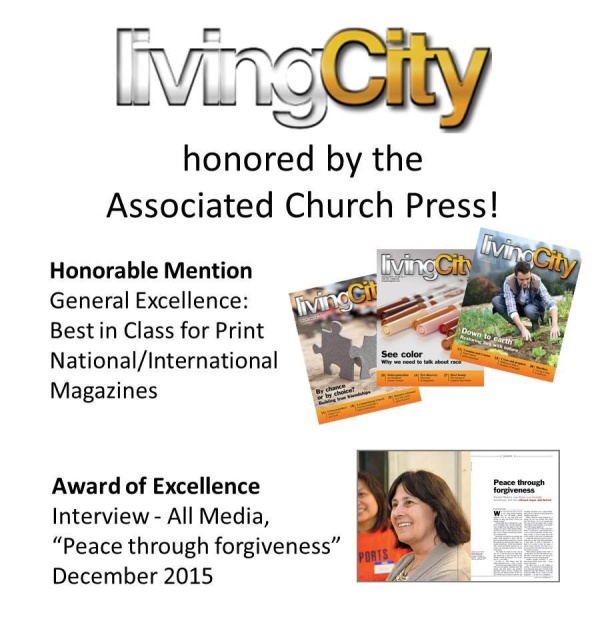
May 10, 2016 | Non categorizzato
 On 5 May 2016, The Associated Church Press (Florida) conferred on Living City Magazine two awards for last year’s February, April and October issues. It received an Honourable Mention in the category “Best in Class National/International print magazines, directed to a broad audience” (Christian Century and Sojourners were the other award recipients in this category). The judges appreciated the “strong use of colour on front covers” and the full bleed and full page pictures. For the writing, they found the first person pieces the most engaging. “Unique perspectives and a strong focus on the magazine’s purpose makes for an original and interesting magazine. Good work,” was their comment. In the category “Reporting and Writing: interview (all media)”, Living City received an Award of Excellence for the article “Peace through forgiveness” published in the December 2015 issue, written by Jade Giacobbe after an encounter with Rahel Muha, whose son was murdered in 1999 at age 18. The judges wrote, “This would be a heart-breaking story were it not for the emphasis on forgiveness, and the mother providing a powerful testimony … A well-crafted story. Good can spring from evil with the proper approach to forgiveness.”
On 5 May 2016, The Associated Church Press (Florida) conferred on Living City Magazine two awards for last year’s February, April and October issues. It received an Honourable Mention in the category “Best in Class National/International print magazines, directed to a broad audience” (Christian Century and Sojourners were the other award recipients in this category). The judges appreciated the “strong use of colour on front covers” and the full bleed and full page pictures. For the writing, they found the first person pieces the most engaging. “Unique perspectives and a strong focus on the magazine’s purpose makes for an original and interesting magazine. Good work,” was their comment. In the category “Reporting and Writing: interview (all media)”, Living City received an Award of Excellence for the article “Peace through forgiveness” published in the December 2015 issue, written by Jade Giacobbe after an encounter with Rahel Muha, whose son was murdered in 1999 at age 18. The judges wrote, “This would be a heart-breaking story were it not for the emphasis on forgiveness, and the mother providing a powerful testimony … A well-crafted story. Good can spring from evil with the proper approach to forgiveness.”
Susanne Janssen
Living City Magazine
Award-winning article: https://livingcitymagazine.com/peace-through_forgiveness
May 10, 2016 | Non categorizzato
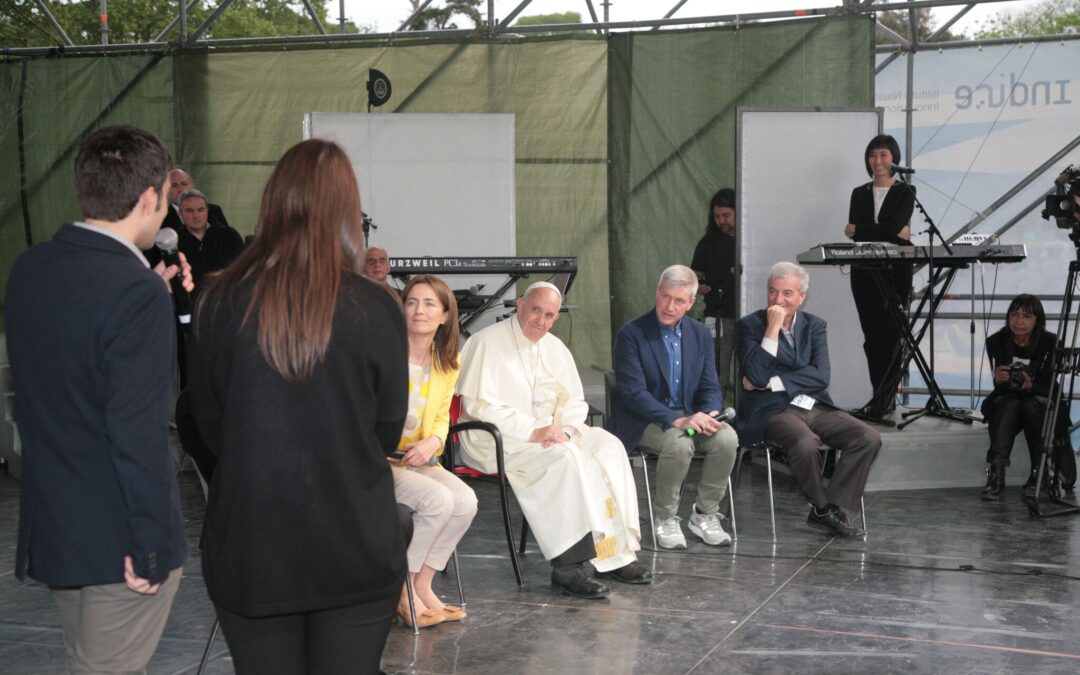
May 10, 2016 | Non categorizzato
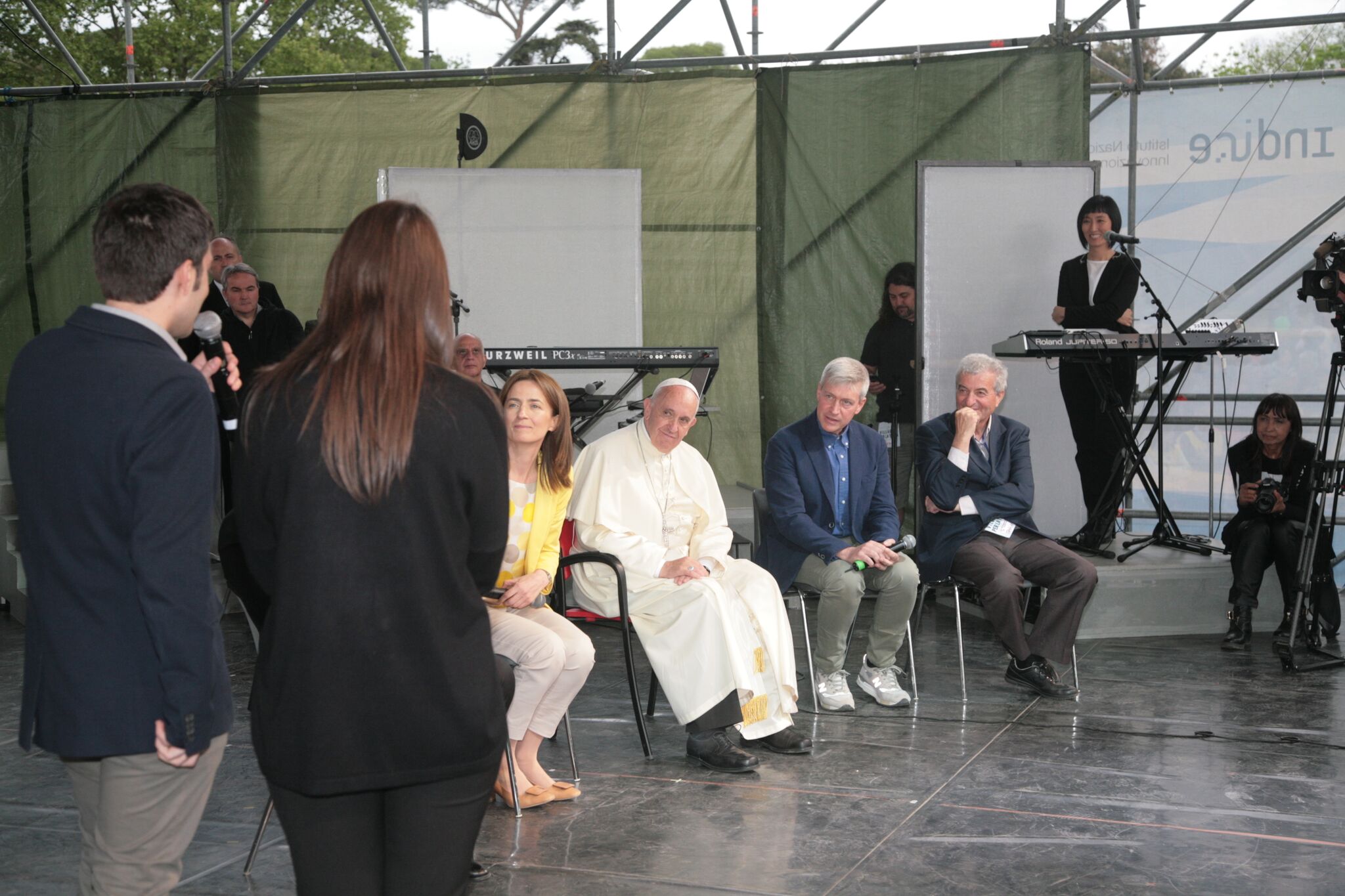 “We felt strongly that we wanted to immerse ourselves in the wounds of our city. We became inolved with Patrizia, a teacher and collaborator of Città Nuova magazine, who was writing a book about the children of prisoners and she had just met the Break the Wall Committee. This committee consists of 7 prisoners who were working to allow children to have a bit more than cold meetings with their fathers in large empty rooms. They wanted to hold celebrations and events that would leave the children with a happy memory of their fathers from whom they were separated. A collaboration of mutual trust was immediately established between us, the inmates on the committee, the teachers and the director. The first meeting with the prisoners took place at Christmas 2014. I was struck when the police ordered us to leave all our personal possessions behind before crossing the prison gate. We took his words to mean our prejudices as well. The detainees couldn’t believe that so many young people would spend a Saturday morning with them. Since the day of that celebration something more than a volunteer programme began: a true and deep relationship with the detainees themselves.As we described what we were doing, one of them remarked that it took a lot of courage. But for us it was a matter of trust in others even though they had committed a crime and of hope that they can change and begin again. We remember the joy of that detainee who was glad to be able to invest his talents in something legal that was not for profit – as were the illegal activities that he had been engaged in before. For him who had no children of his own, working for the children filled him with a sense of satisfaction. Last year we met with the detainees on the committee to plan another event. A thank you note they wrote conveys their joy and enthusiasm over that meeting where we were able to sit down together as if we weren’t inside the walls of a prison. We also had a snack together, yes, because they gave us a warm welcome as you would among old friends. Now they call us ‘the kids on the external committee’. At that meeting they opened up and shared with us the practical effects of inprisonment on their daily life. For example, they said that people in prison aren’t able to bring the background into focus; their eyes need to reacquire the ability to look ahead, having lost the possibility to see the horizon. One of them said goodbye to us in a note; “To the youngsters I say continue to dedicate yourselves to this activity, because often the ones who are inside need only to see that there is someone on the outside who is interested in our problems so they can have a second chance. On my part, I thank you for that.” Last March, for Father’s Day, we organised games and other activities in the mornings and afternoons. Half a day of simple things that allowed their usually divided families to spend some time together, and for their children to cherish fond memories in the area of the so delicate and difficult relationships with their fathers. Some of them were present during the visit Pope Francis made on Holy Thursday last year, and they attrended the Mass and told us how moving it was for them. It has remained a precious memory for them. They often tell us that ‘Prison takes away your feelings along with your freedom’. But perhaps now something has changed: there’s the joy of meeting and working together without any prejudice. In them we’ve discovered the face of Jesus the prisoner, Jesus the marginalised. Every time we’re leaving Rebibbia Prison we feel that we’ve learnt to have the courage to change, to admit our own mistakes and to begin again.We feel God’s personal love and His immense Mercy.”
“We felt strongly that we wanted to immerse ourselves in the wounds of our city. We became inolved with Patrizia, a teacher and collaborator of Città Nuova magazine, who was writing a book about the children of prisoners and she had just met the Break the Wall Committee. This committee consists of 7 prisoners who were working to allow children to have a bit more than cold meetings with their fathers in large empty rooms. They wanted to hold celebrations and events that would leave the children with a happy memory of their fathers from whom they were separated. A collaboration of mutual trust was immediately established between us, the inmates on the committee, the teachers and the director. The first meeting with the prisoners took place at Christmas 2014. I was struck when the police ordered us to leave all our personal possessions behind before crossing the prison gate. We took his words to mean our prejudices as well. The detainees couldn’t believe that so many young people would spend a Saturday morning with them. Since the day of that celebration something more than a volunteer programme began: a true and deep relationship with the detainees themselves.As we described what we were doing, one of them remarked that it took a lot of courage. But for us it was a matter of trust in others even though they had committed a crime and of hope that they can change and begin again. We remember the joy of that detainee who was glad to be able to invest his talents in something legal that was not for profit – as were the illegal activities that he had been engaged in before. For him who had no children of his own, working for the children filled him with a sense of satisfaction. Last year we met with the detainees on the committee to plan another event. A thank you note they wrote conveys their joy and enthusiasm over that meeting where we were able to sit down together as if we weren’t inside the walls of a prison. We also had a snack together, yes, because they gave us a warm welcome as you would among old friends. Now they call us ‘the kids on the external committee’. At that meeting they opened up and shared with us the practical effects of inprisonment on their daily life. For example, they said that people in prison aren’t able to bring the background into focus; their eyes need to reacquire the ability to look ahead, having lost the possibility to see the horizon. One of them said goodbye to us in a note; “To the youngsters I say continue to dedicate yourselves to this activity, because often the ones who are inside need only to see that there is someone on the outside who is interested in our problems so they can have a second chance. On my part, I thank you for that.” Last March, for Father’s Day, we organised games and other activities in the mornings and afternoons. Half a day of simple things that allowed their usually divided families to spend some time together, and for their children to cherish fond memories in the area of the so delicate and difficult relationships with their fathers. Some of them were present during the visit Pope Francis made on Holy Thursday last year, and they attrended the Mass and told us how moving it was for them. It has remained a precious memory for them. They often tell us that ‘Prison takes away your feelings along with your freedom’. But perhaps now something has changed: there’s the joy of meeting and working together without any prejudice. In them we’ve discovered the face of Jesus the prisoner, Jesus the marginalised. Every time we’re leaving Rebibbia Prison we feel that we’ve learnt to have the courage to change, to admit our own mistakes and to begin again.We feel God’s personal love and His immense Mercy.”
May 9, 2016 | Focolare Worldwide
Itinerary:
- Welcome celebration at Mariapolis Piero
- May 17-20: School of Inculturation
- May 21-22: New Families Pan-African Meeting
- May 25: Visit to the Academic Council of the Catholic University of Eastern Africa (CUEA)
- May 27: Presentation at the Ecumenical Commission
- May 28-29: Meeting with the Focolare communities from Burundi, Rwanda, Uganda and Tanzania, and inauguration of Mary of the Light Church in Kenya.
May 9, 2016 | Non categorizzato
In the Year of Mercy, Consecrated Women who belong to the Focolare Movement will hold a week of Spiritual Exercises at their Casa Emmaus Centre in the Focolare town of Loppiano, Italy. “It will be an opportunity for the women to deepen their own charisms in the light of the spirituality of unity,” explains Sister Antonia Moioli, “and in this context to experience the relationship that exists amongst the charisms. Brochure
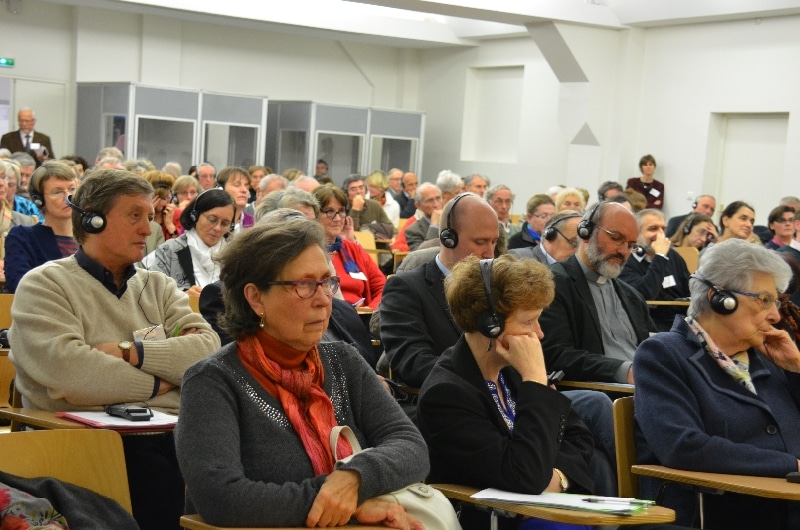
May 9, 2016 | Focolare Worldwide
 “Resignation and weariness do not belong to the soul of Europe; even our problems can become powerful forces of unity” For the majority of Europeans, May 9 is an occasion to celebrate the values of integration, unity and peace, as this date marks the anniversary of the historical Schuman declaration that gave birth to the European Union; but for others it marks the time when Stalin declared victory over Germany on May 9, 1945 and rights started to be deprived under the Soviet rule. The innovative process of integration, which Europe dared to start sixty years ago, should be confronted against this historical background even today. Considering the present crisis and the contradictions inherent in the cultural and social paradigms that peoples in Europe are experiencing, one is bound to ask: is the European experience still valid? Do Europeans still want to be together? For Pasquale Ferrara, a diplomat, a scholar and a lecturer in International Relations and Diplomacy, “the European vision of integration – which consists of bringing together not so much the leaderships, but the political will of the different countries to govern jointly over phenomena that are beyond control of individual states – is still one of great insight”. Through integration “Europe demonstrates that even today multilateralism can have an added value if attention is not centred on the state but on the political function it performs to provide for the needs of its citizens in a global and transnational world”.
“Resignation and weariness do not belong to the soul of Europe; even our problems can become powerful forces of unity” For the majority of Europeans, May 9 is an occasion to celebrate the values of integration, unity and peace, as this date marks the anniversary of the historical Schuman declaration that gave birth to the European Union; but for others it marks the time when Stalin declared victory over Germany on May 9, 1945 and rights started to be deprived under the Soviet rule. The innovative process of integration, which Europe dared to start sixty years ago, should be confronted against this historical background even today. Considering the present crisis and the contradictions inherent in the cultural and social paradigms that peoples in Europe are experiencing, one is bound to ask: is the European experience still valid? Do Europeans still want to be together? For Pasquale Ferrara, a diplomat, a scholar and a lecturer in International Relations and Diplomacy, “the European vision of integration – which consists of bringing together not so much the leaderships, but the political will of the different countries to govern jointly over phenomena that are beyond control of individual states – is still one of great insight”. Through integration “Europe demonstrates that even today multilateralism can have an added value if attention is not centred on the state but on the political function it performs to provide for the needs of its citizens in a global and transnational world”.  “A Europe that is able to stay together and thus rediscover what more can be done for the world in a better way” – these words of Maria Voce summerize the Focolare Movement’s perspective while contributing towards ongoing processes in Europe. An example of this commitment is “Together for Europe”, which brings together more than 300 communities and movements that belong to different Christian Churches. These form a network which pursues shared goals and promotes a culture of reciprocity, which stimulates individuals and peoples to welcome and get to know each other, to be reconciled and to offer mutual support. “’Together for Europe’ is not an end in itself, but its nature is exquisitely political in the noblest sense of the word: it strives for the good of that part of humanity which is Europe; it aims at the revival of its roots and at its awareness to contribute to the rest of the world” . “Together for Europe” is organizing a European event that will take place in Munich from June 30 to July 2, 2016. During the first two days, 36 round tables and forums will offer the opportunity to share experiences and views on issues concerning Europe. An outdoor rally will conclude the event on the third day. Pope Francis and the Ecumenical Patriarch Bartholomew I will be present through their video messages. Jean-Claude Junker, President of the European Commission, and Thorbjørn Jagland, Secretary General of the Council of Europe, granted their patronage. (http://www.together4europe.org/). “At a time when Europe is mostly needed, the more it seems to lack the ability to face these challenges”, comments Ferrara, while referring to the lack of political figures with a broad vision. He concludes: “But, are we looking in the wrong direction? Maybe we think that one or more political leaders are needed, while instead we must give more value to civil society, focusing more on youth and their social and political creativity, on their ability to imagine the “Old” continent as a “new” one”. Source: Press releases
“A Europe that is able to stay together and thus rediscover what more can be done for the world in a better way” – these words of Maria Voce summerize the Focolare Movement’s perspective while contributing towards ongoing processes in Europe. An example of this commitment is “Together for Europe”, which brings together more than 300 communities and movements that belong to different Christian Churches. These form a network which pursues shared goals and promotes a culture of reciprocity, which stimulates individuals and peoples to welcome and get to know each other, to be reconciled and to offer mutual support. “’Together for Europe’ is not an end in itself, but its nature is exquisitely political in the noblest sense of the word: it strives for the good of that part of humanity which is Europe; it aims at the revival of its roots and at its awareness to contribute to the rest of the world” . “Together for Europe” is organizing a European event that will take place in Munich from June 30 to July 2, 2016. During the first two days, 36 round tables and forums will offer the opportunity to share experiences and views on issues concerning Europe. An outdoor rally will conclude the event on the third day. Pope Francis and the Ecumenical Patriarch Bartholomew I will be present through their video messages. Jean-Claude Junker, President of the European Commission, and Thorbjørn Jagland, Secretary General of the Council of Europe, granted their patronage. (http://www.together4europe.org/). “At a time when Europe is mostly needed, the more it seems to lack the ability to face these challenges”, comments Ferrara, while referring to the lack of political figures with a broad vision. He concludes: “But, are we looking in the wrong direction? Maybe we think that one or more political leaders are needed, while instead we must give more value to civil society, focusing more on youth and their social and political creativity, on their ability to imagine the “Old” continent as a “new” one”. Source: Press releases
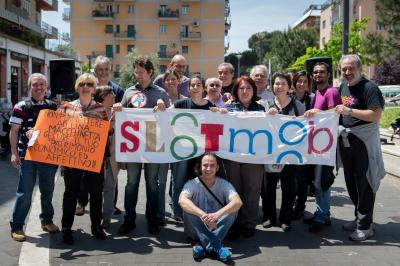
May 9, 2016 | Non categorizzato
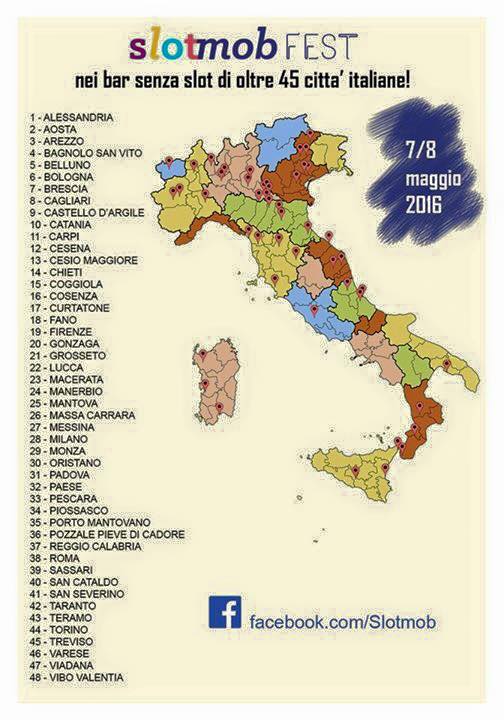 It was the summer of 2013 when an idea came up among some teenagers from Rome of doing something to curb the proliferation of gambling in the city. It was becoming more and more common to see both old and young people glued to the slot machines that are found in many Italian bars. Despite the economic crisis, in recent years the supply and consumption of gambling in Italy has increased dramatically. Italians spend 85 billion a year on the more than 50,000 latest generation slot machines, and the latest estimates are that more than 800,000 people suffer from gambling addiction. We see how the gambling business is devastating our cities, depleting the fabric of society and creating isolation and loneliness. At the helm of this exponential growth of gambling is an economic vision in which the only thing that matters is profit for the multinationals with the consent from a state that also sees it as an opportunity for profit. In front of such a bleak scene the teenagers from Rome wondered what they could do . . . and from there came the idea of rewarding the barkeepers who have chosen not to make gambling available at their establishments. They went to breakfast at their bars en masse as a Slotmob. Initially they proposed doing it in Rome and Milan, but the simple and practical idea fascinated many Italians from north to south of the peninsula. There have been 120 Slotmobs in the past two and a half years, with the participation of over 10,000 people and a network of more than 200 associations. The project has created relationships with very diverse groups, created meeting spaces, awareness and mended the social bond that gambling had disintegrated. “In Rome we concentrated our efforts on an area known as the Italian Las Vegas,” Maria Chiara explains. “In a short time a network was formed with 7 local associations that deal with different aspects of gambling. A sincere relationship was created, not without the usual difficulties of working with one another. That’s how the Let’s Not Gamble Ourselves Project began and now involves several city schools. Talking to teenagers about the power of our choices and of how we can change unjust situations beginning from ourselves, is not in fact very easy. But it actually is important to build a more just world and to involve young people in the change process.”
It was the summer of 2013 when an idea came up among some teenagers from Rome of doing something to curb the proliferation of gambling in the city. It was becoming more and more common to see both old and young people glued to the slot machines that are found in many Italian bars. Despite the economic crisis, in recent years the supply and consumption of gambling in Italy has increased dramatically. Italians spend 85 billion a year on the more than 50,000 latest generation slot machines, and the latest estimates are that more than 800,000 people suffer from gambling addiction. We see how the gambling business is devastating our cities, depleting the fabric of society and creating isolation and loneliness. At the helm of this exponential growth of gambling is an economic vision in which the only thing that matters is profit for the multinationals with the consent from a state that also sees it as an opportunity for profit. In front of such a bleak scene the teenagers from Rome wondered what they could do . . . and from there came the idea of rewarding the barkeepers who have chosen not to make gambling available at their establishments. They went to breakfast at their bars en masse as a Slotmob. Initially they proposed doing it in Rome and Milan, but the simple and practical idea fascinated many Italians from north to south of the peninsula. There have been 120 Slotmobs in the past two and a half years, with the participation of over 10,000 people and a network of more than 200 associations. The project has created relationships with very diverse groups, created meeting spaces, awareness and mended the social bond that gambling had disintegrated. “In Rome we concentrated our efforts on an area known as the Italian Las Vegas,” Maria Chiara explains. “In a short time a network was formed with 7 local associations that deal with different aspects of gambling. A sincere relationship was created, not without the usual difficulties of working with one another. That’s how the Let’s Not Gamble Ourselves Project began and now involves several city schools. Talking to teenagers about the power of our choices and of how we can change unjust situations beginning from ourselves, is not in fact very easy. But it actually is important to build a more just world and to involve young people in the change process.”  Maria Chiara continues: “The Slotmob experience is making us meet many people, many stories that show us that gambling is an open wound on our society. During one Slotmob a man that had helped us to organise some games with the young people took the microphone and told his own experience as a regular gambler. He said to us: ‘My life is made of bright spots and shadows, and what makes me gamble is the solitude. But today seeing all of you here I no longer feel alone. So I commit to stop gambling. If you see me in front of a slot machine, you’re authorised to reprimand me and remind me of this promise I make today’.” “When we look back,” Maria Chiara concludes, “we see that we’ve had unimagined results. Two laws were blocked that would have reduced the power of mayors in limiting gambling; we got a partial ban on television advertising, and increased media attention on the problem of gambling. We’re aware that we have a long road ahead of us, we’d like advertising for gambling to be completely banned and we want to re-open the discussion on whether gambling should be in the hands of multinationals. For this reason on May 7 we will be on more than 40 public squares across Italy restating our yes to a different economy and rewarding bars that have said no to gambling.”
Maria Chiara continues: “The Slotmob experience is making us meet many people, many stories that show us that gambling is an open wound on our society. During one Slotmob a man that had helped us to organise some games with the young people took the microphone and told his own experience as a regular gambler. He said to us: ‘My life is made of bright spots and shadows, and what makes me gamble is the solitude. But today seeing all of you here I no longer feel alone. So I commit to stop gambling. If you see me in front of a slot machine, you’re authorised to reprimand me and remind me of this promise I make today’.” “When we look back,” Maria Chiara concludes, “we see that we’ve had unimagined results. Two laws were blocked that would have reduced the power of mayors in limiting gambling; we got a partial ban on television advertising, and increased media attention on the problem of gambling. We’re aware that we have a long road ahead of us, we’d like advertising for gambling to be completely banned and we want to re-open the discussion on whether gambling should be in the hands of multinationals. For this reason on May 7 we will be on more than 40 public squares across Italy restating our yes to a different economy and rewarding bars that have said no to gambling.”
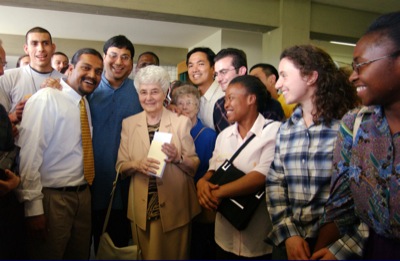
May 8, 2016 | Non categorizzato
 “Dear Youth for a United World, I know that you hoped to receive a message from me that would contribute towards the success of United World Week. What subject have I chosen to speak on? There couldn’t be a better one than your very own goal of achieving a united world. Is it reasonable to talk about a united world? Is it possible to imagine a united world? Can we hope that the attention we give and the energy we use will one day play a significant role in reaching such an objective? Or is it a utopia, something unattainable and fantastical, as some people might think? Many signs today point to the fact that the world is heading towards this goal. First of all, there is the conviction that unity is a sign of the times. This means that those who are particularly able and competent in discerning the times we live in confirm that the world is moving towards unity. Some of you may remember that I too have spoken about this very often, examining the religious aspect in particular. Today’s drive towards unity, however, does not only involve the religious field, but also the political world. Apart from the United Nations, where almost all the states of the world are represented, there is the Organization of African Unity in Africa, for example, that is, an association of African states. In Asia there are various associations of states like the Islamic Conference Organization which includes 53 Muslim countries; the Southeast Asia Treaty Organization, and others. In America there is the Organization of American States (of North, Central and South America), and the Latin American Integration Association. In Europe we have the Organization for European Economic Cooperation which also includes the countries of Eastern Europe, and the European Union. In addition, many wise people from different cultures in the world have expressed their thoughts on this subject. I would have liked to quote them but I don’t have access to them here in Brazil, from where I am sending this message. I found some thoughts by the most recent Popes. Besides being authoritative, the Popes are also holy, and so what they say can be of interest to everyone in the world. Pius XII, John XXIII and Paul VI have very similar ideas. In Populorum Progressio, Paul VI says: “Who cannot see the need to reach, by degrees, the establishment of a worldwide authority that can act effectively on the juridical and political levels?” The present Pope expressed himself in these terms at our Genfest ’90: “Truly, this seems to be the perspective emerging from the multiple signs of our times: the perspective of a united world. This is the great expectation of people today, the hope, and at the same time, the great challenge for the future. It is evident we are moving towards unity at an ever increasing speed.” My dear young people, you are striving and working for a united world. What are you doing to reach this goal? You are involved in activities which, although meaningful, might appear very small in comparison with your proposed objective. When you are older, perhaps some of you will be more directly involved in the various organizations which contribute to building a united world. Although all these activities and efforts will be very helpful, I don’t think that any of them will play a determining role in reaching this goal. Instead, the deciding factor in the journey towards unity we are involved in, is that of giving a soul to the world. And this soul is love. You must start a revolution of love around you, in all the countries you are living in. Today it is not enough to organise charity or welfare programs, although through such activities we can give to others out of love. Today we must “be love”, that is, we must feel what the other person is feeling, live the other, the others, and aim at achieving unity in accordance with our spirituality which, like a fire, has already been enkindled in varying measures, thanks to you too, all over the globe. John Paul II also said at the Genfest ‘90: “Be aware – and I say it again – that the path towards a united world, which is the path of peace, is founded on building relationships of solidarity, and solidarity has its roots in charity” (in love). Thus we must build relationships of unity, which have their roots in love. You must live out this love first of all among yourselves, so as to reach the point of living it with many, many others, wherever you go: with the people you meet every day, and with those who determine the course of events, in various institutions, and in big and small organizations around the world… everywhere. Only then will they fulfill the purpose for which they were established; only then will we truly work for a united world. Take courage, then, youth for a united world. You are following the most fascinating and splendid ideal on earth. And you are not alone! You, who are proud to be called Christians, know that by acting in this way, Christ is among you. Each and every one of you, of every belief and creed, knows that unity is strength. Go ahead then, begin or continue with your characteristic enthusiasm and determination. I, all of us, are with you… for the final victory, whenever God wills. But who will gather if no one sows? This is your task now at this time in history. And all things considered, there are promising signs that the goal you are living for is not far-off.” Chiara Lubich
“Dear Youth for a United World, I know that you hoped to receive a message from me that would contribute towards the success of United World Week. What subject have I chosen to speak on? There couldn’t be a better one than your very own goal of achieving a united world. Is it reasonable to talk about a united world? Is it possible to imagine a united world? Can we hope that the attention we give and the energy we use will one day play a significant role in reaching such an objective? Or is it a utopia, something unattainable and fantastical, as some people might think? Many signs today point to the fact that the world is heading towards this goal. First of all, there is the conviction that unity is a sign of the times. This means that those who are particularly able and competent in discerning the times we live in confirm that the world is moving towards unity. Some of you may remember that I too have spoken about this very often, examining the religious aspect in particular. Today’s drive towards unity, however, does not only involve the religious field, but also the political world. Apart from the United Nations, where almost all the states of the world are represented, there is the Organization of African Unity in Africa, for example, that is, an association of African states. In Asia there are various associations of states like the Islamic Conference Organization which includes 53 Muslim countries; the Southeast Asia Treaty Organization, and others. In America there is the Organization of American States (of North, Central and South America), and the Latin American Integration Association. In Europe we have the Organization for European Economic Cooperation which also includes the countries of Eastern Europe, and the European Union. In addition, many wise people from different cultures in the world have expressed their thoughts on this subject. I would have liked to quote them but I don’t have access to them here in Brazil, from where I am sending this message. I found some thoughts by the most recent Popes. Besides being authoritative, the Popes are also holy, and so what they say can be of interest to everyone in the world. Pius XII, John XXIII and Paul VI have very similar ideas. In Populorum Progressio, Paul VI says: “Who cannot see the need to reach, by degrees, the establishment of a worldwide authority that can act effectively on the juridical and political levels?” The present Pope expressed himself in these terms at our Genfest ’90: “Truly, this seems to be the perspective emerging from the multiple signs of our times: the perspective of a united world. This is the great expectation of people today, the hope, and at the same time, the great challenge for the future. It is evident we are moving towards unity at an ever increasing speed.” My dear young people, you are striving and working for a united world. What are you doing to reach this goal? You are involved in activities which, although meaningful, might appear very small in comparison with your proposed objective. When you are older, perhaps some of you will be more directly involved in the various organizations which contribute to building a united world. Although all these activities and efforts will be very helpful, I don’t think that any of them will play a determining role in reaching this goal. Instead, the deciding factor in the journey towards unity we are involved in, is that of giving a soul to the world. And this soul is love. You must start a revolution of love around you, in all the countries you are living in. Today it is not enough to organise charity or welfare programs, although through such activities we can give to others out of love. Today we must “be love”, that is, we must feel what the other person is feeling, live the other, the others, and aim at achieving unity in accordance with our spirituality which, like a fire, has already been enkindled in varying measures, thanks to you too, all over the globe. John Paul II also said at the Genfest ‘90: “Be aware – and I say it again – that the path towards a united world, which is the path of peace, is founded on building relationships of solidarity, and solidarity has its roots in charity” (in love). Thus we must build relationships of unity, which have their roots in love. You must live out this love first of all among yourselves, so as to reach the point of living it with many, many others, wherever you go: with the people you meet every day, and with those who determine the course of events, in various institutions, and in big and small organizations around the world… everywhere. Only then will they fulfill the purpose for which they were established; only then will we truly work for a united world. Take courage, then, youth for a united world. You are following the most fascinating and splendid ideal on earth. And you are not alone! You, who are proud to be called Christians, know that by acting in this way, Christ is among you. Each and every one of you, of every belief and creed, knows that unity is strength. Go ahead then, begin or continue with your characteristic enthusiasm and determination. I, all of us, are with you… for the final victory, whenever God wills. But who will gather if no one sows? This is your task now at this time in history. And all things considered, there are promising signs that the goal you are living for is not far-off.” Chiara Lubich
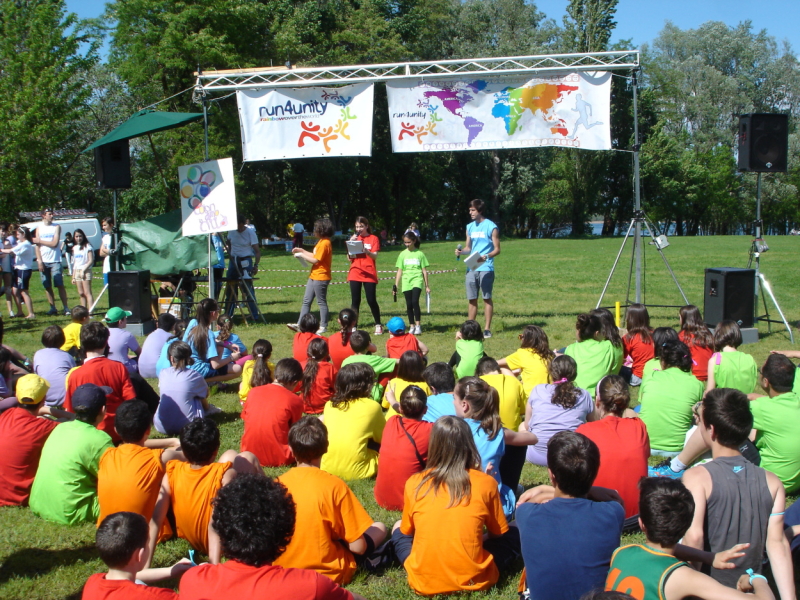
May 8, 2016 | Non categorizzato
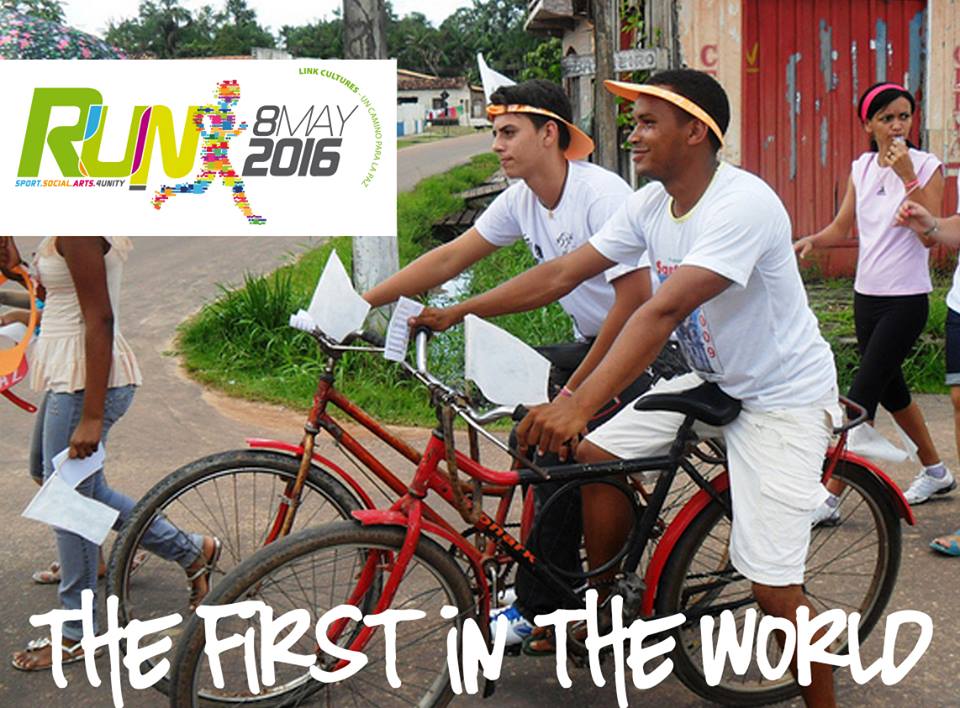 It’s a global relay race in the name of peace and unity between peoples along the world’s most dangerous borders. From the US-Mexico border to the one separating Hungary and Austria, where were raised protective that people attempt to cross in the hope of a better future, putting their life at risk. It’s called Run4unity , promoted on Sunday May 8 by hundreds of thousands of young boys and girls from the Focolari Movement in all corners of the globe. From 11:00 to 12:00 they will follow a track by foot or by bike, with rollers, by boat. A time-out will follow, along with a minute of silence or a prayer for peace. “Youths for unity” in Mexico have decided to run across Mexicali, 3.500 km from Mexico City, on the border with the United States. They will be running along the wall that divides the two peoples, in memory of all those who lost their lives in the attempt to cross the border, finding themselves in a desert land. The initiative, included in the school program, involves 10 schools with 1500 pupils. It is promoted by a team of physical education teachers coordinated by the local school inspector. Across the ocean, Hungarian youths responded to their Mexicali “friends” with a relay race held Sunday May 1st in Sopron, on the Austria-Slovakian border. Last year the city hit world news as a destination of migrants desperately trying to enter Austria by train from Budapest. The relay took place with the participation of young Afghan refugees from a nearby refugee camp.
It’s a global relay race in the name of peace and unity between peoples along the world’s most dangerous borders. From the US-Mexico border to the one separating Hungary and Austria, where were raised protective that people attempt to cross in the hope of a better future, putting their life at risk. It’s called Run4unity , promoted on Sunday May 8 by hundreds of thousands of young boys and girls from the Focolari Movement in all corners of the globe. From 11:00 to 12:00 they will follow a track by foot or by bike, with rollers, by boat. A time-out will follow, along with a minute of silence or a prayer for peace. “Youths for unity” in Mexico have decided to run across Mexicali, 3.500 km from Mexico City, on the border with the United States. They will be running along the wall that divides the two peoples, in memory of all those who lost their lives in the attempt to cross the border, finding themselves in a desert land. The initiative, included in the school program, involves 10 schools with 1500 pupils. It is promoted by a team of physical education teachers coordinated by the local school inspector. Across the ocean, Hungarian youths responded to their Mexicali “friends” with a relay race held Sunday May 1st in Sopron, on the Austria-Slovakian border. Last year the city hit world news as a destination of migrants desperately trying to enter Austria by train from Budapest. The relay took place with the participation of young Afghan refugees from a nearby refugee camp.  Over 100 thousand adolescents have participated in the initiative held in previous years. From the islands of Wallis and Futuna in the Pacific Ocean to Cairo, the baton passes from time zone to time zone to kick off sporting events, solidarity actions and active citizenship experiences in places marked by loneliness, poverty, marginalization. In the city of Bari, (Italy) the initiative will take place in the Fornelli juvenile penitentiary with a four-way football tournament, while in another Italian town the young people decided to visit the reception centre for asylum-seekers. Wherever they will be running, “their flag” will bear the “Golden rule”: “Do unto others as you would have them do unto you and Do not do unto others what you would not have them do unto you.” It’s an ethical principle that is found in almost all cultures and religions – they said -. From Judaism to Islam, as well as in the most ancient African traditions. If the world stopped on Sunday, and were handed over to these young people to govern, perhaps many fears would be dispelled, tensions would ebb, many tears would be wiped off and a rainbow of peace would cross the world. Obviously, one hour is not enough to accomplish this “dream.” And from Sunday the world will start spinning as it always did. But they won’t, these young people will remain. They have learned to see the world with different eyes. They are already capable of following it going to those places where humanity is facing major historical challenges. Indeed, they are the future and represent hope. They are asking us and working towards a world where humankind will be as brothers and sisters. Perhaps it is worthwhile listening to them. Source: SIR
Over 100 thousand adolescents have participated in the initiative held in previous years. From the islands of Wallis and Futuna in the Pacific Ocean to Cairo, the baton passes from time zone to time zone to kick off sporting events, solidarity actions and active citizenship experiences in places marked by loneliness, poverty, marginalization. In the city of Bari, (Italy) the initiative will take place in the Fornelli juvenile penitentiary with a four-way football tournament, while in another Italian town the young people decided to visit the reception centre for asylum-seekers. Wherever they will be running, “their flag” will bear the “Golden rule”: “Do unto others as you would have them do unto you and Do not do unto others what you would not have them do unto you.” It’s an ethical principle that is found in almost all cultures and religions – they said -. From Judaism to Islam, as well as in the most ancient African traditions. If the world stopped on Sunday, and were handed over to these young people to govern, perhaps many fears would be dispelled, tensions would ebb, many tears would be wiped off and a rainbow of peace would cross the world. Obviously, one hour is not enough to accomplish this “dream.” And from Sunday the world will start spinning as it always did. But they won’t, these young people will remain. They have learned to see the world with different eyes. They are already capable of following it going to those places where humanity is facing major historical challenges. Indeed, they are the future and represent hope. They are asking us and working towards a world where humankind will be as brothers and sisters. Perhaps it is worthwhile listening to them. Source: SIR

May 7, 2016 | Non categorizzato
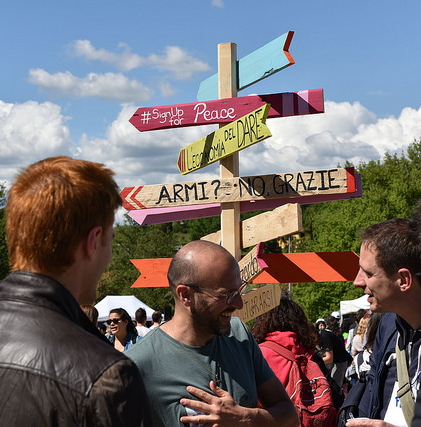 “Where was I?” was the refrain of the song inspired by the migration tragedy, and sung by the Gen Verde on the stage of the May 1 event of Loppiano (Florence). The question resounded strongly among the 1,200 participants of the feast day, but it also pertained to commitment to suffering humanity, for example in Aleppo, with the escalation of bombs and deaths which have beset the city for the last 10 days, and likewise for the populations devastated by the earthquake in Ecuador, who asked to live and return to their normal lives. It is a commitment also of the multitude of associations and initiatives operating on the front of integration in Italy. “The aim of this day – explained the Youth for a United World – is to highlight the flow of initiatives undertaken throughout Italy, in the name of reception, lawfulness, politics lived as a service, and care for the environment, which in one word means: fraternity.” “Ever since the bombings started again, a chain of solidarity has begun among the people – Tarek of Aleppo, Syria, recounted. This reveals the quality of my people, who do not give up, but whose dignity is wounded. We say, stop the war, and ask with faith for the gift of peace.» Lubna instead explains: «In Jordan there are three million refugees, half of which are Syrians. They arrive with despair in their eyes, and the absence of hope. We try to share the life of fear they have faced, by giving them love and a sense of family.» Wa’el Suleiman, Director of Caritas in Jordan, addressed the people with a heartfelt appeal in a video shoot: «Work with us to stop the war, come to the Middle East and help us rebuild our countries, so that the people do not have to escape, and emigrate. We want to live in our lands.” Nahomy and Maria are both Ecuadorians, They recounted the extraordinary strength of their people: “The pain of those who had lost all their belongings, became the suffering of all. The inmates of a prison started to build wooden coffins, people of different political ideologies teamed up together, the cooks became heroes by preparing a warm meal for everyone, and the poor shared the little they had.” A festive atmosphere and lots of music accompanied the stories of the youth who have decided to actively take part in the building of a different world. “«I am weary of clashes, and diatribes in politics and also in daily life – a boy wrote on the great “wall” on which each could leave behind that part of himself that hinders the flow of fraternity – the only things I take interest in and for which I want to live are those things that unite and not those that divide us.”
“Where was I?” was the refrain of the song inspired by the migration tragedy, and sung by the Gen Verde on the stage of the May 1 event of Loppiano (Florence). The question resounded strongly among the 1,200 participants of the feast day, but it also pertained to commitment to suffering humanity, for example in Aleppo, with the escalation of bombs and deaths which have beset the city for the last 10 days, and likewise for the populations devastated by the earthquake in Ecuador, who asked to live and return to their normal lives. It is a commitment also of the multitude of associations and initiatives operating on the front of integration in Italy. “The aim of this day – explained the Youth for a United World – is to highlight the flow of initiatives undertaken throughout Italy, in the name of reception, lawfulness, politics lived as a service, and care for the environment, which in one word means: fraternity.” “Ever since the bombings started again, a chain of solidarity has begun among the people – Tarek of Aleppo, Syria, recounted. This reveals the quality of my people, who do not give up, but whose dignity is wounded. We say, stop the war, and ask with faith for the gift of peace.» Lubna instead explains: «In Jordan there are three million refugees, half of which are Syrians. They arrive with despair in their eyes, and the absence of hope. We try to share the life of fear they have faced, by giving them love and a sense of family.» Wa’el Suleiman, Director of Caritas in Jordan, addressed the people with a heartfelt appeal in a video shoot: «Work with us to stop the war, come to the Middle East and help us rebuild our countries, so that the people do not have to escape, and emigrate. We want to live in our lands.” Nahomy and Maria are both Ecuadorians, They recounted the extraordinary strength of their people: “The pain of those who had lost all their belongings, became the suffering of all. The inmates of a prison started to build wooden coffins, people of different political ideologies teamed up together, the cooks became heroes by preparing a warm meal for everyone, and the poor shared the little they had.” A festive atmosphere and lots of music accompanied the stories of the youth who have decided to actively take part in the building of a different world. “«I am weary of clashes, and diatribes in politics and also in daily life – a boy wrote on the great “wall” on which each could leave behind that part of himself that hinders the flow of fraternity – the only things I take interest in and for which I want to live are those things that unite and not those that divide us.” 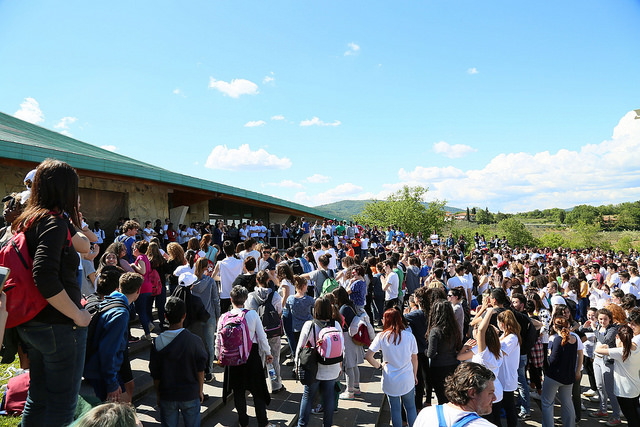 Cristina Guarda, 25, a councilor of the Venice Region, talked about the reasons that drove her to ‘go out there’: “I have always been convinced that politics is what we build when we place ourselves at the service of others. I felt that it was time to get involved.” A phrase of Chiara Lubich introduced the round table that ended the morning. “If you want to transform a city, start by uniting with those who share your ideals. Together, look for the poor, the abandoned, orphans, prisoners, those who are marginalized, and give, always give: a comforting word, a smile, your time, your goods….”. Then came an overview of a variety of ideas-projects of the Youth for a United World in Italy: in Turin, in a small dormitory; in Florence, with a group of prisoners in the Gozzini Jail; in Syracuse, with the Summer Campus that will take place next summer, and which foresees support and recreational activities with problematic children and adolescents; in Naples and Caserta, the project, “Fraternity Workshops,” which has involved hundreds of kids from the peripheries at risk. The afternoon program proceeded with the Expo of the United World Project on disarmaments, the environment, economy of communion, art, culture with the Sophia University Institute, Slotmob, against gambling, intercultural and interreligious dialogue, etc. The day ended with the “FlowRun”: a run in several stages which culminates in an explosion of joy, music and colours, as if to demonstrate that enthusiasm and joy are essential for anyone who wants to attract others in the adventure of a world that is “for” and not “against” something. Source: Focolare-Loppiano nformation Service Photos on Flickr:
Cristina Guarda, 25, a councilor of the Venice Region, talked about the reasons that drove her to ‘go out there’: “I have always been convinced that politics is what we build when we place ourselves at the service of others. I felt that it was time to get involved.” A phrase of Chiara Lubich introduced the round table that ended the morning. “If you want to transform a city, start by uniting with those who share your ideals. Together, look for the poor, the abandoned, orphans, prisoners, those who are marginalized, and give, always give: a comforting word, a smile, your time, your goods….”. Then came an overview of a variety of ideas-projects of the Youth for a United World in Italy: in Turin, in a small dormitory; in Florence, with a group of prisoners in the Gozzini Jail; in Syracuse, with the Summer Campus that will take place next summer, and which foresees support and recreational activities with problematic children and adolescents; in Naples and Caserta, the project, “Fraternity Workshops,” which has involved hundreds of kids from the peripheries at risk. The afternoon program proceeded with the Expo of the United World Project on disarmaments, the environment, economy of communion, art, culture with the Sophia University Institute, Slotmob, against gambling, intercultural and interreligious dialogue, etc. The day ended with the “FlowRun”: a run in several stages which culminates in an explosion of joy, music and colours, as if to demonstrate that enthusiasm and joy are essential for anyone who wants to attract others in the adventure of a world that is “for” and not “against” something. Source: Focolare-Loppiano nformation Service Photos on Flickr: 
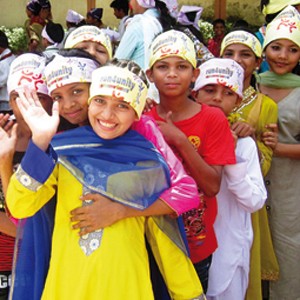
May 6, 2016 | Focolare Worldwide
 Lilia and Paul from Aleppo speak out in the name of their Syrian peers. Their message to the Youth for Unity of Argentina immediately went global: “Thanks, we feel your love and that you share our pain even if you are far. We, the Youth for Unity of Syria, live in three cities: Damascus, Aleppo, and Kfarbo (near Hama). There are 125 of us; 25 are here in Aleppo. There were more of us before, but due to the situation, many friends had to migrate.” It’s the story of Marian, who left for Belgium. She didn’t want to go since all her friends remained in Syria, but had to join her family. «A very important moment for us is the Time Out at 12 noon. We try to pray not only among us, but also with our relatives and friends. One of us proposed this action to a Muslim friend, and so now, at 12, each one prays in his heart, according to his religion. We want to propose it also to all of you, so that peace can be achieved not only in Syria but throughout the world. We love you all!” In Lebanon the United World Week started with the protection of the environment, with an ecological action to clean the beaches, together with #Recycle Lebanon and the Scouts. The theme is strongly felt by the Lebanese Youth for a United World who had already started to act to concretely take care of their own country, starting from the capital of Beirut. They then continued with a film-forum and concluded with a weekend dedicated to the city’s homeless. https://vimeo.com/148202815 In Taiwan, the Run4Unity was held in the north (Taipei), and south (Kaohsiung). In Taipei, also the Vice-President participated. In Southeast Asia they are preparing for an event for young people coming from many countries: Thailand, Korea, Bolivia, Myanmar, Laos, Cambodia, Malaysia, Indonesia and Singapore. At the end of the month there will be a sportive event for teenagers, in the name of Run4Unity. Likewise the run will take place in Manila and Cebu, in the Philippines.
Lilia and Paul from Aleppo speak out in the name of their Syrian peers. Their message to the Youth for Unity of Argentina immediately went global: “Thanks, we feel your love and that you share our pain even if you are far. We, the Youth for Unity of Syria, live in three cities: Damascus, Aleppo, and Kfarbo (near Hama). There are 125 of us; 25 are here in Aleppo. There were more of us before, but due to the situation, many friends had to migrate.” It’s the story of Marian, who left for Belgium. She didn’t want to go since all her friends remained in Syria, but had to join her family. «A very important moment for us is the Time Out at 12 noon. We try to pray not only among us, but also with our relatives and friends. One of us proposed this action to a Muslim friend, and so now, at 12, each one prays in his heart, according to his religion. We want to propose it also to all of you, so that peace can be achieved not only in Syria but throughout the world. We love you all!” In Lebanon the United World Week started with the protection of the environment, with an ecological action to clean the beaches, together with #Recycle Lebanon and the Scouts. The theme is strongly felt by the Lebanese Youth for a United World who had already started to act to concretely take care of their own country, starting from the capital of Beirut. They then continued with a film-forum and concluded with a weekend dedicated to the city’s homeless. https://vimeo.com/148202815 In Taiwan, the Run4Unity was held in the north (Taipei), and south (Kaohsiung). In Taipei, also the Vice-President participated. In Southeast Asia they are preparing for an event for young people coming from many countries: Thailand, Korea, Bolivia, Myanmar, Laos, Cambodia, Malaysia, Indonesia and Singapore. At the end of the month there will be a sportive event for teenagers, in the name of Run4Unity. Likewise the run will take place in Manila and Cebu, in the Philippines.  Many events were held in India which was the hotspot of United World Week in 2015: in Bangalore an International Food Festival was held with over 500 youths, aimed at uniting cultures through food, and also to finance the med-care of Solomon Ellis, a boy who was seriously injured in an accident. In Mumbai, at the YMCA Chembur, a district of the metropolis, there was a mural competition inspired by the theme of peace. Furthermore Run4Unity with games and a short marathon will soon take place. In New Delhi instead, at the Fr Agnel Bal Bhavan in Greater Noida, 300 orphaned children will be involved in various games and sports events to diffuse the Golden Rule .The children, aged between 5 and 17 and from various parts of India and Nepal, belong to diverse religions: Hindus, Christians Muslims and Sikhs. Moreover a Run4Unity link-up with Mexico is programmed for 8 May, since the Mexican sports event held in a symbolic place will conclude precisely in the “Gandhi Park.” In Lahore, Pakistan, activities were held in a school run by the sisters of Mother Theresa: there were 120 children involved by a group of girls who wished to bring them a bit of joy. One of them wrote: “At the start, it was hard to establish a relationship with these children, but in the end, they enjoyed it so much that they no longer wanted to leave. I have changed a lot.” Lastly, preparations are underway in Medan (Indonesia) for a peace concert next 14 May, the funds of which will be allocated to a Country at war. They have been working for months now to gather funds to cover the organizational expenses, by selling fruit juice, singing in restaurants, and looking for sponsors. Through songs and testimonials the youths will share their proposals to become builders of peace in daily life. Maria Chiara De Lorenzo
Many events were held in India which was the hotspot of United World Week in 2015: in Bangalore an International Food Festival was held with over 500 youths, aimed at uniting cultures through food, and also to finance the med-care of Solomon Ellis, a boy who was seriously injured in an accident. In Mumbai, at the YMCA Chembur, a district of the metropolis, there was a mural competition inspired by the theme of peace. Furthermore Run4Unity with games and a short marathon will soon take place. In New Delhi instead, at the Fr Agnel Bal Bhavan in Greater Noida, 300 orphaned children will be involved in various games and sports events to diffuse the Golden Rule .The children, aged between 5 and 17 and from various parts of India and Nepal, belong to diverse religions: Hindus, Christians Muslims and Sikhs. Moreover a Run4Unity link-up with Mexico is programmed for 8 May, since the Mexican sports event held in a symbolic place will conclude precisely in the “Gandhi Park.” In Lahore, Pakistan, activities were held in a school run by the sisters of Mother Theresa: there were 120 children involved by a group of girls who wished to bring them a bit of joy. One of them wrote: “At the start, it was hard to establish a relationship with these children, but in the end, they enjoyed it so much that they no longer wanted to leave. I have changed a lot.” Lastly, preparations are underway in Medan (Indonesia) for a peace concert next 14 May, the funds of which will be allocated to a Country at war. They have been working for months now to gather funds to cover the organizational expenses, by selling fruit juice, singing in restaurants, and looking for sponsors. Through songs and testimonials the youths will share their proposals to become builders of peace in daily life. Maria Chiara De Lorenzo

May 5, 2016 | Focolare Worldwide

Source: stocksnap.io
A.M.N.
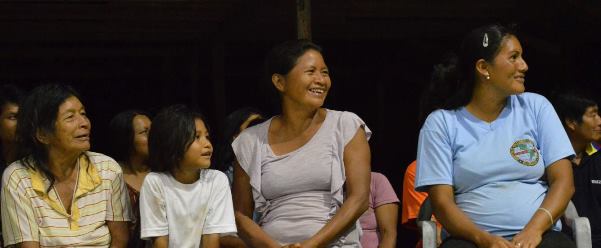
May 4, 2016 | Focolare Worldwide
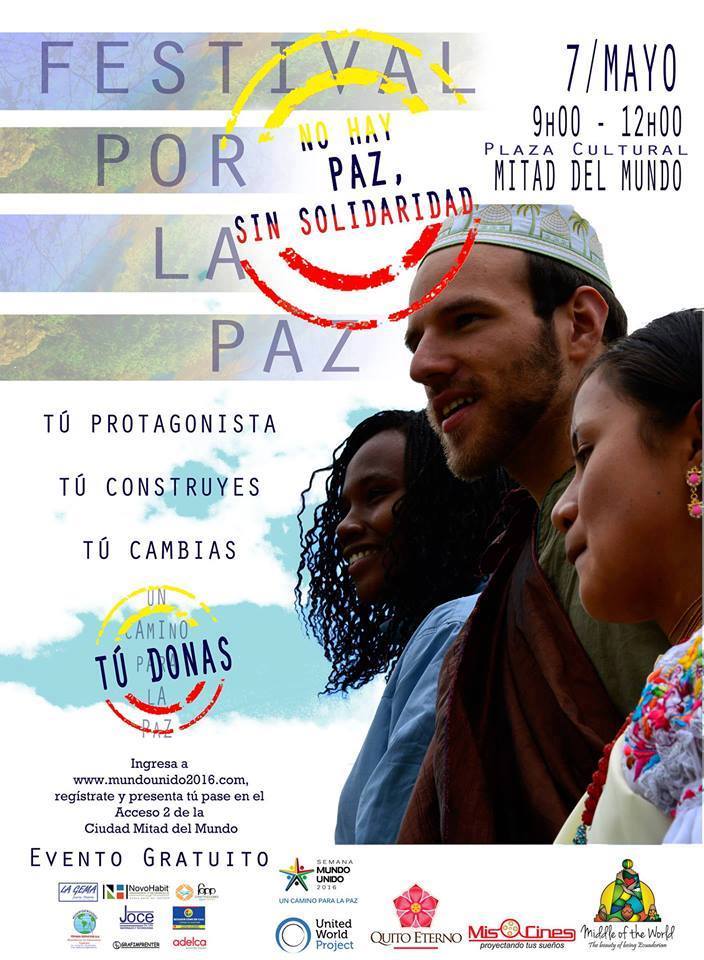 When Ecuador was chosen as the central seat of the 2016 United World Week (SMU), nobody would have imagined that on 16 April, the South American country would suffer one of the decade’s most deadly earthquakes: 660 victims, 4,600 injured, and 22,000 evacuees. «Those were really terrible moments – recalls Herminia, a member of the Ecuador United World Movement. As of now thousands of families are homeless, but the solidarity of the entire world has been really touching and made us feel that we were not alone!” In this context of humanitarian emergency, the actions of the United World undertook a new direction: “We decided to forego the Peace Festival (set for Saturday, 7 May), but decided together to continue being a source of light, and an answer to those who are suffering. Many feel the frustration of being unable to do anything, so we will give them the chance to help,” wrote the youth of the Focolare who decided to double their efforts: “They had chosen to highlight fraternity, and this is what our people are testifying to. We would like to do our best to make this our lifestyle not only during emergencies, but for always.” The Peace Festival of 7 May in Quito is entitled “solidarity is a path to peace”: a sharing of artistic experiences, and also a gathering of funds for the reconstruction. «We want to transmit to our people the message that we have only one life and must live it well.» On the Ecuador Youth for a United World’s Facebook page (fb.com/JMUEcuador) you can post a video greeting that testifies fraternity, and be a symbol of hope. The event is now well underway, with the participation of 300 young people from South America and 60 from other nations: from Italy to Korea, and from Burundi to the Philippines. The experience targeted is not a touristic journey but that of a deepening of “relationships” with oneself, the others, nature, and God, and an occasion to meet from their roots, the many cultures that make up Ecuador today. It is an immersion into the Pre-Columbian history of Quito and the community of the Andes, to prepare the youths present to start the travelling school, with the help of the Kitukara people (children of the upright sun), one of the oldest indigenous communities of Ecuador officially recognised in 2003, to which 9,000 families currently belong. “The core of our tradition is respect for Mother Earth,» Sami explains, along with the strong sense of the community: «when people arrive, they are welcomed as part of our family, because in accepting the others, we accept our own selves.” The two routes of the trip consist in travelling 1,200 km (from 1 to 6 May). Each stopover will unveil an asset, a feature, and a particular gift. From the Sierra along the Coast: in Esmeraldas, with the ancestral community of Chachis, the origin of the music and dance of the Afroesmeraldeño people; in Otavalo with the communities of Agato and Gualapuro, the discovery of the art of giving according to their ancient life philosophy.
When Ecuador was chosen as the central seat of the 2016 United World Week (SMU), nobody would have imagined that on 16 April, the South American country would suffer one of the decade’s most deadly earthquakes: 660 victims, 4,600 injured, and 22,000 evacuees. «Those were really terrible moments – recalls Herminia, a member of the Ecuador United World Movement. As of now thousands of families are homeless, but the solidarity of the entire world has been really touching and made us feel that we were not alone!” In this context of humanitarian emergency, the actions of the United World undertook a new direction: “We decided to forego the Peace Festival (set for Saturday, 7 May), but decided together to continue being a source of light, and an answer to those who are suffering. Many feel the frustration of being unable to do anything, so we will give them the chance to help,” wrote the youth of the Focolare who decided to double their efforts: “They had chosen to highlight fraternity, and this is what our people are testifying to. We would like to do our best to make this our lifestyle not only during emergencies, but for always.” The Peace Festival of 7 May in Quito is entitled “solidarity is a path to peace”: a sharing of artistic experiences, and also a gathering of funds for the reconstruction. «We want to transmit to our people the message that we have only one life and must live it well.» On the Ecuador Youth for a United World’s Facebook page (fb.com/JMUEcuador) you can post a video greeting that testifies fraternity, and be a symbol of hope. The event is now well underway, with the participation of 300 young people from South America and 60 from other nations: from Italy to Korea, and from Burundi to the Philippines. The experience targeted is not a touristic journey but that of a deepening of “relationships” with oneself, the others, nature, and God, and an occasion to meet from their roots, the many cultures that make up Ecuador today. It is an immersion into the Pre-Columbian history of Quito and the community of the Andes, to prepare the youths present to start the travelling school, with the help of the Kitukara people (children of the upright sun), one of the oldest indigenous communities of Ecuador officially recognised in 2003, to which 9,000 families currently belong. “The core of our tradition is respect for Mother Earth,» Sami explains, along with the strong sense of the community: «when people arrive, they are welcomed as part of our family, because in accepting the others, we accept our own selves.” The two routes of the trip consist in travelling 1,200 km (from 1 to 6 May). Each stopover will unveil an asset, a feature, and a particular gift. From the Sierra along the Coast: in Esmeraldas, with the ancestral community of Chachis, the origin of the music and dance of the Afroesmeraldeño people; in Otavalo with the communities of Agato and Gualapuro, the discovery of the art of giving according to their ancient life philosophy.  From the Sierra, to the Orient, up to the Amazons: in Puyo, first stage of this trip, the indigenous Shiwacocha community waited for the youth for hours, and welcomed them with dances, songs and… giving to each one a Kichwa name. This was a highly cultural encounter: from now on the community will celebrate every time the new name is solemnly pronounced. The youth learned the great sense of responsibility towards creation, and attention given to listening to the other. The trip will proceed with Tungurahua, where the youth leaders of the Kisapincha people will illustrate the value of the teamwork of the “MINGAS,” and teach how to communicate with nature. Then at Bolivar at the Salt pans of Guardanda, the youth will testify to the fruit of work and cooperation between different groups, inspired by an economic model of development that is more respectful of nature and the producers. Six days of a genuine exchange of gifts between cultures: the experience will be described during the Peace Festival on 7 May, to bear witness to the wealth of life in harmony between different cultures.
From the Sierra, to the Orient, up to the Amazons: in Puyo, first stage of this trip, the indigenous Shiwacocha community waited for the youth for hours, and welcomed them with dances, songs and… giving to each one a Kichwa name. This was a highly cultural encounter: from now on the community will celebrate every time the new name is solemnly pronounced. The youth learned the great sense of responsibility towards creation, and attention given to listening to the other. The trip will proceed with Tungurahua, where the youth leaders of the Kisapincha people will illustrate the value of the teamwork of the “MINGAS,” and teach how to communicate with nature. Then at Bolivar at the Salt pans of Guardanda, the youth will testify to the fruit of work and cooperation between different groups, inspired by an economic model of development that is more respectful of nature and the producers. Six days of a genuine exchange of gifts between cultures: the experience will be described during the Peace Festival on 7 May, to bear witness to the wealth of life in harmony between different cultures.
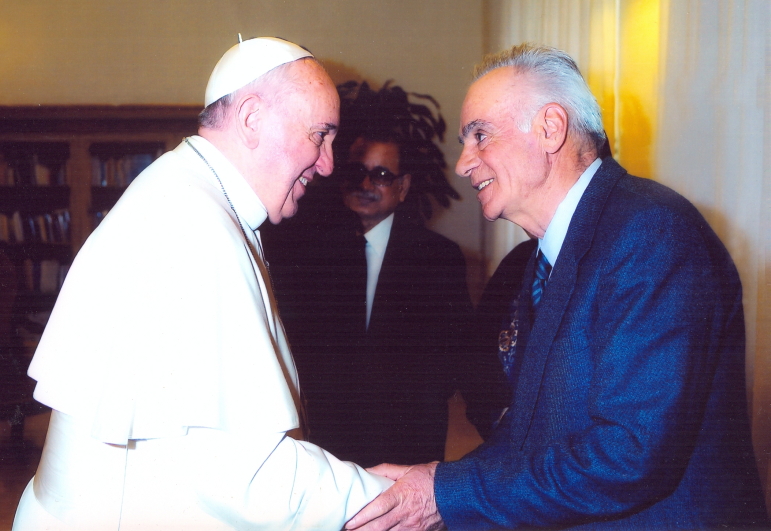
May 3, 2016 | Focolare Worldwide
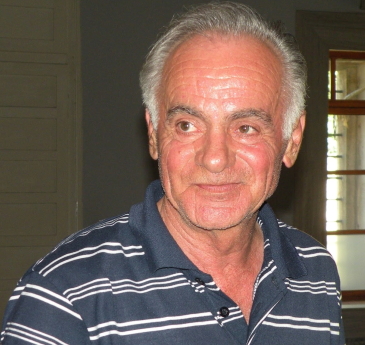 “A man of great moral stature and exceptional culture: it was a pleasure to have known him!” Countless comments like this have been arriving from around the world ever since his death, from people expressing gratitude and testifying that every encounter with Azir was a “moment of God”. A native of Kosovo, a teacher, husband and father of three children, Azir Selmani (May 9, 1947 – April 17, 2016) was the first Muslim to embrace the Focolare Movement in Skopje, Macedonia where he had gone to live because of political reasons. Azir himself recounts: “In 1990 I had a class full of Muslims, only one student was Catholic and I felt like I had to protect him. To show their gratitude his parents invited me to be their guests the Mariapolis in Slovenia. Among those people I began to ask, who are these people? I tried to open my heart a little more, and love slowly changed me. On the last day [of the Mariapolis] I mustered up the courage to stand in front of a hall filled with 300 people and admit that through them I had encountered love, the One God, the All-Powerful! In God’s light I saw all the failures of my past. I was sorry for all those generations of students to whom I had explained that the greatest power in the world was the atomic power; whereas, now I was convinced that the greatest power is love. Little by little a new life began to open before me. I began to read the Koran and to know God. I tried to convey my experience to colleagues and friends, and quite soon there were twenty of us Muslims who wanted to follow the Movement.” Azir opened his home for for Focolare gatherings and was always open to dialogue and sharing his testimony. He would always offer to translate Chiara Lubich’s writings for the Albanians. Touched by the witness of Azir and his wife, Bejije, couples who were having relationship problems would turn to them and Azir and his wife would accompany them along the path of reconciliation with gentleness and wisdom.
“A man of great moral stature and exceptional culture: it was a pleasure to have known him!” Countless comments like this have been arriving from around the world ever since his death, from people expressing gratitude and testifying that every encounter with Azir was a “moment of God”. A native of Kosovo, a teacher, husband and father of three children, Azir Selmani (May 9, 1947 – April 17, 2016) was the first Muslim to embrace the Focolare Movement in Skopje, Macedonia where he had gone to live because of political reasons. Azir himself recounts: “In 1990 I had a class full of Muslims, only one student was Catholic and I felt like I had to protect him. To show their gratitude his parents invited me to be their guests the Mariapolis in Slovenia. Among those people I began to ask, who are these people? I tried to open my heart a little more, and love slowly changed me. On the last day [of the Mariapolis] I mustered up the courage to stand in front of a hall filled with 300 people and admit that through them I had encountered love, the One God, the All-Powerful! In God’s light I saw all the failures of my past. I was sorry for all those generations of students to whom I had explained that the greatest power in the world was the atomic power; whereas, now I was convinced that the greatest power is love. Little by little a new life began to open before me. I began to read the Koran and to know God. I tried to convey my experience to colleagues and friends, and quite soon there were twenty of us Muslims who wanted to follow the Movement.” Azir opened his home for for Focolare gatherings and was always open to dialogue and sharing his testimony. He would always offer to translate Chiara Lubich’s writings for the Albanians. Touched by the witness of Azir and his wife, Bejije, couples who were having relationship problems would turn to them and Azir and his wife would accompany them along the path of reconciliation with gentleness and wisdom.  Azir and Behije took part in several Focolare interreligious gatherings both locally in their own country and also at the international level. Through these meetings Azir formed relationships of unity and friendship with people from around the world. He met Chiara personally in Rome, and shared his deepest sentiments with her. His letters always began with the words: “Dearest Mamma, freely and joyfully I write to you . . . I can never thank you enough. . . In one of those letters he confides to her: “during last Ramadan I did a close reading of the Koran and the Gospel. I’m more and more convinced that Islam and Christianity hide a common treasure that still needs to be discovered through our goodwill and our love.” In 2007 he responded immediately to the invitation from Chiara to make a pact of mutual love with her and with all the Muslims of the Movement, “so that we can be able to experience,” as Lubich wished they would, “God present amongst us. It is God who will bring us along the path of unity.” Seeing the effects of the courageous and enriching communion that is practiced in the Movement, Azir testifies: “I can say that Chiara’s dream is becoming a reality.” He never contented himself with mediocrity and diversity never frightened him. On the contrary, he always wanted to face it, convinced that he would find seeds of the Truth everywhere. At one 2014 symposium in Rome, Azir managed to greet Pope Francis personally: “My dream in life just came true!” he happily remarked. For the last six months of his life Azir battled the illness and never wavered in living for unity. And living up to his exquisite sensitivity to others, he never once refused a visitor and every visit turned out to be a most sacred moment. He was a true seeker of Freedom, the Essential, the Eternal, the Truth, and his words on these universal values will remain forever in the hearts of his listeners. This “master of dialogue”, of deep insight and broad horizons, with the soul of a poet has left us many letters, writings, poems about mercy, Mary of Nazareth in Islam and about Islam’s contact points with Christianity.
Azir and Behije took part in several Focolare interreligious gatherings both locally in their own country and also at the international level. Through these meetings Azir formed relationships of unity and friendship with people from around the world. He met Chiara personally in Rome, and shared his deepest sentiments with her. His letters always began with the words: “Dearest Mamma, freely and joyfully I write to you . . . I can never thank you enough. . . In one of those letters he confides to her: “during last Ramadan I did a close reading of the Koran and the Gospel. I’m more and more convinced that Islam and Christianity hide a common treasure that still needs to be discovered through our goodwill and our love.” In 2007 he responded immediately to the invitation from Chiara to make a pact of mutual love with her and with all the Muslims of the Movement, “so that we can be able to experience,” as Lubich wished they would, “God present amongst us. It is God who will bring us along the path of unity.” Seeing the effects of the courageous and enriching communion that is practiced in the Movement, Azir testifies: “I can say that Chiara’s dream is becoming a reality.” He never contented himself with mediocrity and diversity never frightened him. On the contrary, he always wanted to face it, convinced that he would find seeds of the Truth everywhere. At one 2014 symposium in Rome, Azir managed to greet Pope Francis personally: “My dream in life just came true!” he happily remarked. For the last six months of his life Azir battled the illness and never wavered in living for unity. And living up to his exquisite sensitivity to others, he never once refused a visitor and every visit turned out to be a most sacred moment. He was a true seeker of Freedom, the Essential, the Eternal, the Truth, and his words on these universal values will remain forever in the hearts of his listeners. This “master of dialogue”, of deep insight and broad horizons, with the soul of a poet has left us many letters, writings, poems about mercy, Mary of Nazareth in Islam and about Islam’s contact points with Christianity.
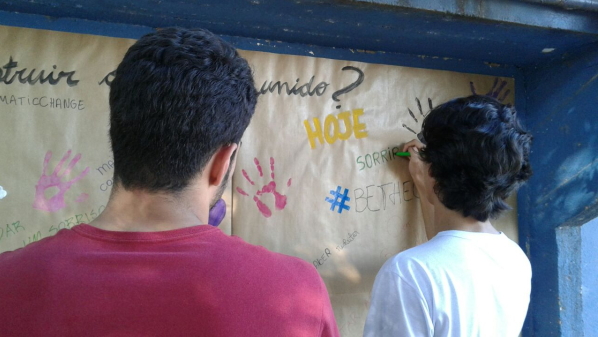
May 2, 2016 | Non categorizzato
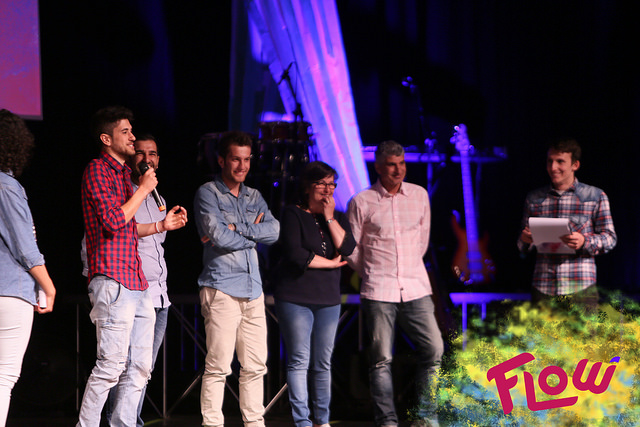 «We have to move on and be a source of light to those who are suffering. Many feel frustrated because they cannot do anything; let us give them the opportunity to help». These words were said by a young girl from Ecuador, a country hit by an earthquake on April 16 and presently living in a humanitarian state of emergency. They indicate the new rota of activities to be held during United World Week 2016. Ecuador is at the centre of this event. United World Week was started by the young members of the Focolare Movement just after the Genfest 1995. It involves the whole Movement. The preparation for the 2016 edition, which focuses its attention on Ecuador and interculturalism, so inherent in countries of the Andean region, has been going on for some time. The aim of this initiative is to give voice to the culture of fraternity which is present in the world and stimulates each person to give of his best. «On May 7, we are organizing a Peace Festival in Quito to express interculturalism. Its title is: ‘Solidarity leads to peace’. Join us and give hope; this is what is needed at the moment and we all can give it». With this appeal, the young people of Ecuador propose a global response to all those who want to offer their support, either through collecting funds or through posting a video message of fraternity and hope on Facebook (fb.com/JMUEcuador). The Peace Festival is just one of the many initiatives launched since the earthquake happened, when many immediately offered the use of their own social networks to spread official emergency information. Run4unity is another event that takes place during United World Week. Teenagers in many parts of the world organize this run from11.00 to 12.00, in different time-zones and with different sport activities. It is concluded by a time-out, a minute of silence or a prayer for peace. Among the landmarks of this event one finds: Mexicali, a Mexican town on the border with USA; here, Run4unity is held along the wall that divides the two countries; Bari, Italy with an activity at the Fornelli Juvenile Penal Institute, and Sopron, a Hungarian town on the border with Austria, where Run4unity forms part of an official sports programme in which young refugees in a refugee camp in Austria also participate (http://www.run4unity.net/2016/en/). United World Week includes also the Living Peace project promoted by El Roward American College in Cairo, Egypt and the Focolare NGO New Humanity. This project which involves a network of secondary schools, with over 50,000 students in 103 countries, aims at instilling a greater commitment to live for peace in different learning environments (http://living-peace.blogspot.it/p/english.html).
«We have to move on and be a source of light to those who are suffering. Many feel frustrated because they cannot do anything; let us give them the opportunity to help». These words were said by a young girl from Ecuador, a country hit by an earthquake on April 16 and presently living in a humanitarian state of emergency. They indicate the new rota of activities to be held during United World Week 2016. Ecuador is at the centre of this event. United World Week was started by the young members of the Focolare Movement just after the Genfest 1995. It involves the whole Movement. The preparation for the 2016 edition, which focuses its attention on Ecuador and interculturalism, so inherent in countries of the Andean region, has been going on for some time. The aim of this initiative is to give voice to the culture of fraternity which is present in the world and stimulates each person to give of his best. «On May 7, we are organizing a Peace Festival in Quito to express interculturalism. Its title is: ‘Solidarity leads to peace’. Join us and give hope; this is what is needed at the moment and we all can give it». With this appeal, the young people of Ecuador propose a global response to all those who want to offer their support, either through collecting funds or through posting a video message of fraternity and hope on Facebook (fb.com/JMUEcuador). The Peace Festival is just one of the many initiatives launched since the earthquake happened, when many immediately offered the use of their own social networks to spread official emergency information. Run4unity is another event that takes place during United World Week. Teenagers in many parts of the world organize this run from11.00 to 12.00, in different time-zones and with different sport activities. It is concluded by a time-out, a minute of silence or a prayer for peace. Among the landmarks of this event one finds: Mexicali, a Mexican town on the border with USA; here, Run4unity is held along the wall that divides the two countries; Bari, Italy with an activity at the Fornelli Juvenile Penal Institute, and Sopron, a Hungarian town on the border with Austria, where Run4unity forms part of an official sports programme in which young refugees in a refugee camp in Austria also participate (http://www.run4unity.net/2016/en/). United World Week includes also the Living Peace project promoted by El Roward American College in Cairo, Egypt and the Focolare NGO New Humanity. This project which involves a network of secondary schools, with over 50,000 students in 103 countries, aims at instilling a greater commitment to live for peace in different learning environments (http://living-peace.blogspot.it/p/english.html).  Loppiano, Italy and Abrigada, Portugal hold their traditional programme for youth on May1. “We are many people living on the same planet, we are brethren. Let us live and work so that this fraternity reigns in politics, in economy, in the social and cultural fields; so that we live in a better world as one family because we are all human beings”. This is the idea that animated the preparation for the Loppiano programme, while Abrigada focused on the idea of peace to demonstrate the highest aspirations of this reality. United World Week embraces the world and local initiatives aim at this goal. Examples of this are the concert for peace at Medan, Indonesia; the visit to a home for the elderly in New Zealand, presently debating the legislation of euthanasia; the Amani Festival in Goma in the Democratic Republic of Congo and the ecumenical workshop wanted by youth and priests of the Catholic, Russian-Orthodox, Armenian, Luteran and Evangelical Churches “to go beyond prejudices”. Very significant is the video message sent from youth in Aleppo, Syria to others in Argentina (fb.com/focolaresconosur). Many of the events may be followed on http://www.unitedworldproject.org/en/ and on fb.com/uwpofficial. Messages, photos and videos may be shared by using hashtag #4peace, thus giving voice to all big and small initiatives that “build bridges of fraternity” every day. Press Release Fotogallery (May Day at Loppiano) https://vimeo.com/164901348 https://vimeo.com/164386629
Loppiano, Italy and Abrigada, Portugal hold their traditional programme for youth on May1. “We are many people living on the same planet, we are brethren. Let us live and work so that this fraternity reigns in politics, in economy, in the social and cultural fields; so that we live in a better world as one family because we are all human beings”. This is the idea that animated the preparation for the Loppiano programme, while Abrigada focused on the idea of peace to demonstrate the highest aspirations of this reality. United World Week embraces the world and local initiatives aim at this goal. Examples of this are the concert for peace at Medan, Indonesia; the visit to a home for the elderly in New Zealand, presently debating the legislation of euthanasia; the Amani Festival in Goma in the Democratic Republic of Congo and the ecumenical workshop wanted by youth and priests of the Catholic, Russian-Orthodox, Armenian, Luteran and Evangelical Churches “to go beyond prejudices”. Very significant is the video message sent from youth in Aleppo, Syria to others in Argentina (fb.com/focolaresconosur). Many of the events may be followed on http://www.unitedworldproject.org/en/ and on fb.com/uwpofficial. Messages, photos and videos may be shared by using hashtag #4peace, thus giving voice to all big and small initiatives that “build bridges of fraternity” every day. Press Release Fotogallery (May Day at Loppiano) https://vimeo.com/164901348 https://vimeo.com/164386629

May 2, 2016 | Non categorizzato
 Melbourne, Australia Latitude: 37° 52’ S Longitude: 145° 08’ E Tom is a tall guy, popular with friends.In 2005 he had to move with his family to a newly built neighbourhood in Melbourne, where recreation activities and venues for recreation were scarce. He could have decided to leave but he tried instead to find a way to do something for his community so that people could have opportunities to come together, share and meet. “There is nothing better than sport to bring people from various generation together? In that neighbourhood there was an empty park. So, I started spreading an idea that had come to my mind: creating a space where people could play soccer. I did not know who would join and there was a risk that I would find myself on my own. But there were many families that shared the same desire and enthusiasm. So, participants soon became so many that we could set up a team and then even a soccer club! Now we have 38 teams with more than 400 children and 40 old people. Every week we meet to play. The park has been renovated and now there are many pitches with their own lighting. But this is not the end of the story, because we also added locker rooms, a kitchen and a canteen. It’s become a real meeting place”. Source: United world project
Melbourne, Australia Latitude: 37° 52’ S Longitude: 145° 08’ E Tom is a tall guy, popular with friends.In 2005 he had to move with his family to a newly built neighbourhood in Melbourne, where recreation activities and venues for recreation were scarce. He could have decided to leave but he tried instead to find a way to do something for his community so that people could have opportunities to come together, share and meet. “There is nothing better than sport to bring people from various generation together? In that neighbourhood there was an empty park. So, I started spreading an idea that had come to my mind: creating a space where people could play soccer. I did not know who would join and there was a risk that I would find myself on my own. But there were many families that shared the same desire and enthusiasm. So, participants soon became so many that we could set up a team and then even a soccer club! Now we have 38 teams with more than 400 children and 40 old people. Every week we meet to play. The park has been renovated and now there are many pitches with their own lighting. But this is not the end of the story, because we also added locker rooms, a kitchen and a canteen. It’s become a real meeting place”. Source: United world project
May 1, 2016 | Non categorizzato
https://vimeo.com/164386629

May 1, 2016 | Non categorizzato
 Work was inflicted on mankind as a discipline, but also as redemption. While work has the immediate effect of providing the daily bread, it also has an ultimate effect that is the acquisition of the Kingdom of God. Therefore it regards theology as much as it does economy; in fact man is the son of God, turned towards God even when he works. If it were merely a matter of economics, the worker would be nothing more than a machine: the dignity of a worker would be reduced to that of a mere tool. Nowadays there is so much talk about the dignity of work that it has become commonplace. But it is not said that the slave mentality is gone, nor that there is a lack of business owners, perhaps baptized, who because they pay a salary do not have the right to humiliate the ones who live on that salary, treating them with contempt and distrust, be they intellectual workers or be they semi-literate domestics. But, work is not only there to grow a salary. Work done with a desire for moral redemption and sharing in the sufferings of Christ, produces holiness. It enters into the economy of things eternal that makes machine builders, farmers, students, professionals, clerks and housewives into constructors of the integral Christ. Saint Ambrose says that every good worker is Christ’s own hand. Christ is at work in society through the hands of his workers. In other words, those who work well construct something that is heavenly on earth. The worker is the human crafter of a divine architecture. And this raises the dignity of the worker and of the work, if the work is carried out according to the spirit of the law of Christ. In this we see the divine at work in society through man, who becomes associated to the prodigy of the Incarnation. If the Incarnation was the miracle of the humanization of the Son of God, it also contains a daily miracle of the divinization of the sons of men who are therefore sons of God. It is a movement that comes from the earth and extends to the encounter with Christ who comes from Heaven. And so the life amidst these tormented streets of the earth is, yes, totally human, but also totally inserted in the divine life. It is totally divine if it is lives in the spirit of the Redemption. This dignity is not limited only to the works of the spirit, but invests the whole person, body and spirit and all that he does. The job, the profession, the office – these melancholic and at times tragic and often boring things are transfigured in a single blow into unexpected Values, into parts of our destiny. They become the means of our redemption. The work was our punishment and, through the humanity of Christ, it becomes our ransom. It is our contribution to the Redemption. You scale the heights of Heaven with the materials of the earth. Nothing is lost: not a bad pay day, not a word that is spoken, not a cup of water given in the name of Christ. The Kingdom of God is largely made up of these simple things. Most do not leave for the missions, enter a hermitage or write theological treatises: but everyone works, everyone serves. Well, if you act according to the spirit of Christ, serving men means serving God. He does not yet come to us surrounded in all his light that would blind us, but in his images, in men, in the work of his hand.” Igino Giordani, La società cristiana (Rome: Citta Nuova, 2010) p. 72-82.
Work was inflicted on mankind as a discipline, but also as redemption. While work has the immediate effect of providing the daily bread, it also has an ultimate effect that is the acquisition of the Kingdom of God. Therefore it regards theology as much as it does economy; in fact man is the son of God, turned towards God even when he works. If it were merely a matter of economics, the worker would be nothing more than a machine: the dignity of a worker would be reduced to that of a mere tool. Nowadays there is so much talk about the dignity of work that it has become commonplace. But it is not said that the slave mentality is gone, nor that there is a lack of business owners, perhaps baptized, who because they pay a salary do not have the right to humiliate the ones who live on that salary, treating them with contempt and distrust, be they intellectual workers or be they semi-literate domestics. But, work is not only there to grow a salary. Work done with a desire for moral redemption and sharing in the sufferings of Christ, produces holiness. It enters into the economy of things eternal that makes machine builders, farmers, students, professionals, clerks and housewives into constructors of the integral Christ. Saint Ambrose says that every good worker is Christ’s own hand. Christ is at work in society through the hands of his workers. In other words, those who work well construct something that is heavenly on earth. The worker is the human crafter of a divine architecture. And this raises the dignity of the worker and of the work, if the work is carried out according to the spirit of the law of Christ. In this we see the divine at work in society through man, who becomes associated to the prodigy of the Incarnation. If the Incarnation was the miracle of the humanization of the Son of God, it also contains a daily miracle of the divinization of the sons of men who are therefore sons of God. It is a movement that comes from the earth and extends to the encounter with Christ who comes from Heaven. And so the life amidst these tormented streets of the earth is, yes, totally human, but also totally inserted in the divine life. It is totally divine if it is lives in the spirit of the Redemption. This dignity is not limited only to the works of the spirit, but invests the whole person, body and spirit and all that he does. The job, the profession, the office – these melancholic and at times tragic and often boring things are transfigured in a single blow into unexpected Values, into parts of our destiny. They become the means of our redemption. The work was our punishment and, through the humanity of Christ, it becomes our ransom. It is our contribution to the Redemption. You scale the heights of Heaven with the materials of the earth. Nothing is lost: not a bad pay day, not a word that is spoken, not a cup of water given in the name of Christ. The Kingdom of God is largely made up of these simple things. Most do not leave for the missions, enter a hermitage or write theological treatises: but everyone works, everyone serves. Well, if you act according to the spirit of Christ, serving men means serving God. He does not yet come to us surrounded in all his light that would blind us, but in his images, in men, in the work of his hand.” Igino Giordani, La società cristiana (Rome: Citta Nuova, 2010) p. 72-82.
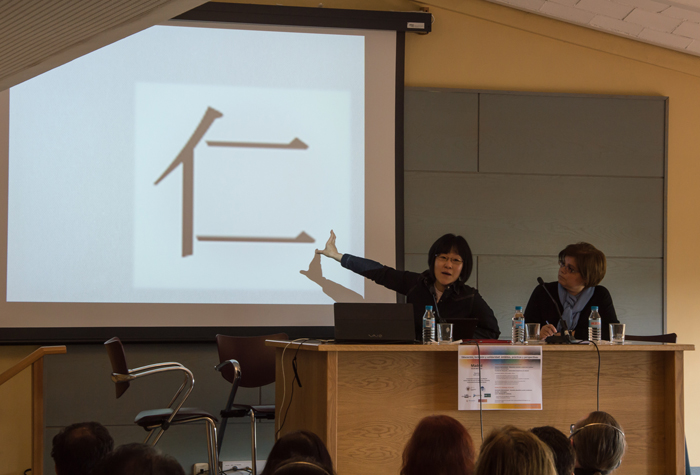
Apr 30, 2016 | Focolare Worldwide
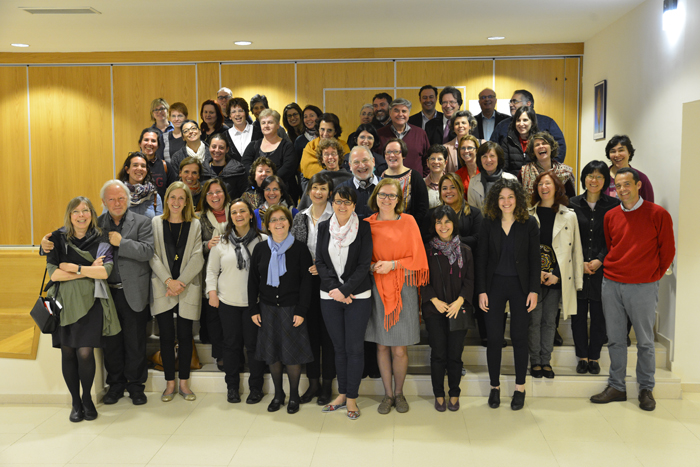 EdU (Education in Unity), an international and interdisciplinary pedagogic and educational study group got together in Spain (Luminosa Mariapolis Centre) for a seminar on inclusion, the central theme. The Educators from Brazil, Croatia, Italy, Kenya, Burundi, Slovenia, Korea, Poland, Portugal, and certainly Spain, worked on three great threads: relationships, communities, arts and sports. Thanks to live streaming on the network, the Seminar was followed by people in many parts of the world, like Benin, with talks from Argentina, Mexico and the USA. The interesting and stimulating discourses gave a framework to the experiences in really varied fields: the “love dice” put into practice in Burundi, the relationships established in the Raggio di Sole School (Croatia), and the Sevilla Autism Association (Spain)… or the effects of education in the community, and the education community. In Argentina, for example, we have the school for the aborigine community. The outcome: it is the school that revives the traditions of these century-old cultures that risk oblivion, through laboratories for goldsmiths, and the manufacture of canvases and musical instruments.
EdU (Education in Unity), an international and interdisciplinary pedagogic and educational study group got together in Spain (Luminosa Mariapolis Centre) for a seminar on inclusion, the central theme. The Educators from Brazil, Croatia, Italy, Kenya, Burundi, Slovenia, Korea, Poland, Portugal, and certainly Spain, worked on three great threads: relationships, communities, arts and sports. Thanks to live streaming on the network, the Seminar was followed by people in many parts of the world, like Benin, with talks from Argentina, Mexico and the USA. The interesting and stimulating discourses gave a framework to the experiences in really varied fields: the “love dice” put into practice in Burundi, the relationships established in the Raggio di Sole School (Croatia), and the Sevilla Autism Association (Spain)… or the effects of education in the community, and the education community. In Argentina, for example, we have the school for the aborigine community. The outcome: it is the school that revives the traditions of these century-old cultures that risk oblivion, through laboratories for goldsmiths, and the manufacture of canvases and musical instruments.  The variety of experiences presented was one of the strengths of a seminar conceived as a workshop: “here I see many people working together for the same objectives,” said one of the participants who no longer felt alone in her battles. In fact, a broader network was created, which knit the participants closer, in the certainty that “the real job has just begun.” It was also an occasion to get to know more about other international projects like Living Peace, Scholas Occurrentes and Sportmeet. As a contribution from the world of the art of education, the photographer and educator, Concha Casajús, exhibited some of her works in a video denouncing the sexual abuses perpetrated in Congo. At the end, the participants left with a greater conviction that inclusion is a lifestyle, a necessity in this complex and varied world of today, and particularly, that inclusive education is a priority in all sectors. The Seminar was preceded by a Symposium held in the Complutense University of Madrid on 22 April. Also dedicated to inclusion education, the opening speech was given by the Rector of the National University of Distance Education, Alejandro Tiana. Kishore Singh, Special Rapporteur of the United Nations on the Right to Education, contributed with a message of support to the event. The next EdU event is set for 3 and 4 June in Poland, during the International Interdisciplinary Conference on the occasion of the 20th anniversary of the h.c. “Jonh Paul II doctorate in Social Sciences” awarded to Chiara Lubich by the University of Lublin.
The variety of experiences presented was one of the strengths of a seminar conceived as a workshop: “here I see many people working together for the same objectives,” said one of the participants who no longer felt alone in her battles. In fact, a broader network was created, which knit the participants closer, in the certainty that “the real job has just begun.” It was also an occasion to get to know more about other international projects like Living Peace, Scholas Occurrentes and Sportmeet. As a contribution from the world of the art of education, the photographer and educator, Concha Casajús, exhibited some of her works in a video denouncing the sexual abuses perpetrated in Congo. At the end, the participants left with a greater conviction that inclusion is a lifestyle, a necessity in this complex and varied world of today, and particularly, that inclusive education is a priority in all sectors. The Seminar was preceded by a Symposium held in the Complutense University of Madrid on 22 April. Also dedicated to inclusion education, the opening speech was given by the Rector of the National University of Distance Education, Alejandro Tiana. Kishore Singh, Special Rapporteur of the United Nations on the Right to Education, contributed with a message of support to the event. The next EdU event is set for 3 and 4 June in Poland, during the International Interdisciplinary Conference on the occasion of the 20th anniversary of the h.c. “Jonh Paul II doctorate in Social Sciences” awarded to Chiara Lubich by the University of Lublin.
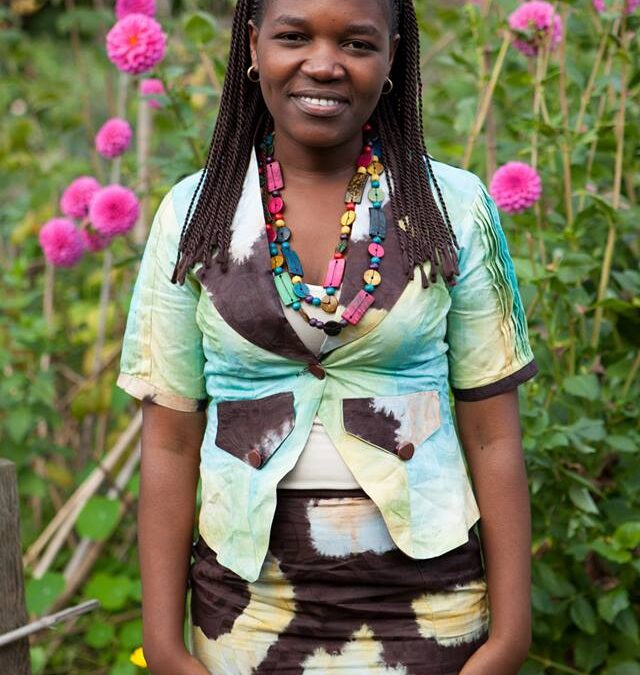
Apr 29, 2016 | Focolare Worldwide
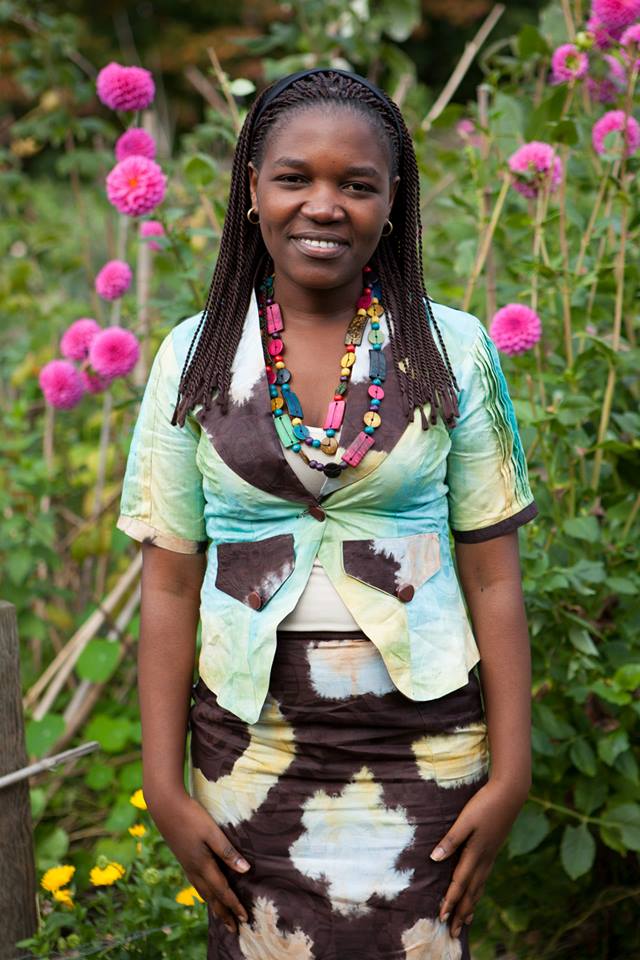
Micheline Mwendike
![Word of Life – May 2016]()
Apr 28, 2016 | Non categorizzato, Word of
 Listen to the Word of Life
Listen to the Word of Life
God has always wanted this: to dwell with us, his people. Already the first pages of the Bible show it as God comes down from heaven, walks in the garden and talks with Adam and Eve. Didn’t he create us for this? What does a lover want if not to be with the beloved? The Book of Revelation, which investigates God’s plan in history, gives us the certainty that God’s desire will be fully fulfilled. With the coming of Jesus, Emmanuel, ‘God with us’, he already started living in our midst. And now that Jesus is risen his presence is no longer limited to one place or one time, and he has spread it to the entire world. With Jesus has begun the building of a new and highly original community, a people made up of many peoples. God does not wish to dwell only in my soul, in my family, in my people, but among all peoples called to form one people. At the same time, the current experience of human mobility is changing the idea of what it is to be a people. In many nations, the people are made up of many ethnic groups. We are so different from one another in the colour of our skin, our culture, our religion. We often look at one another with distrust, suspicion or fear. We make war upon each other. And yet God is Father of all, and loves all and each of us. He does not want to live with one people (‘Ours, of course,’ would be our first thought) and leave the others behind. For him we are all his sons and daughters, a single family. Let’s make the effort, therefore, guided by the Word of Life this month, to appreciate diversity, respect the other, look at him or her as someone who belongs to me: I am the other, the other is me; the other lives in me, I live in the other. And let’s begin with those we share our life with every day. Like this we can make space for the presence of God among us. It will be he who constructs unity, who safeguards the identity of each people, who creates a new way of being society. In 1959 Chiara Lubich had already had this insight. She wrote a passage that is extremely up- to-date and an amazing prophecy: ‘If one day all people, not as individuals but as nations, would learn to put themselves aside… and if they would do this as the expression of the mutual love between states that God asks for, just as he asks for mutual love among individuals, that day would mark the beginning of a new era. For on that day…. Jesus will be alive and present among peoples … ‘Now is the time for every people to go beyond its own borders, to look farther. Now is the time to love the other countries as our own, to acquire a new purity of vision. To be Christians it is not enough to be detached from ourselves. The times we live in demand from the followers of Christ something more: the awareness of Christianity’s social dimension…. ‘And we hope that the Lord may have mercy on this divided and confused world, on peoples closed within their shells contemplating their own beauty – the only beauty that exists for them (though it is both limiting and unsatisfying). They strain to hold on to their treasures against all odds, the very treasures that could help other peoples who are dying of hunger. May the Lord cause all barriers to fall, and allow love to run uninterrupted through all lands, flooding them with spiritual and material goods. ‘Let us hope that the Lord brings about a new order in the world. Only he can make humanity a family and cultivate the unique characteristics of each people so that the splendour of each, placed at the service of others, may shine with the one light of life. This light of life in making beautiful each earthly country will make it the antechamber of the Eternal Country.’1
Fabio Cardi
1 Chiara Lubich, Essential Writings (New York and London, 2006), 231-2
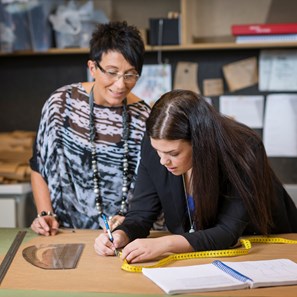
Apr 28, 2016 | Non categorizzato
I slept in company of the mice “All I cared about was money, designer clothing, women and fun. After experiencing jail for heroin trafficking, I went back to the same life as before, surrounded by violence, drugs and alcohol. Around three years ago, some drugs and money were stolen from me by a person whom I considered my friend. Fed up with God, myself and the world, I let myself go. I slept in an abandoned house amidst the refuse, in the company of the mice. One day, without even asking who I was, a stranger invited me to eat at his house and cared for me with the attention of a brother. I felt urged to follow him into the church he went to and, for the first time, I experienced a feeling of peace. Afterwards I continued to go the church alone. For hours in that deep silence I learnt how to pray. My life changed, even though there were relapses. Jesus gave me the strength to gradually take hold of myself again. Now, as a member of a rehab community I try to return the help I received, by serving the needy.” (Samuele – Italy)  The seamstress “Whenever she passed by our tailor shop she would give a sad glance at the clothing in the window. One day I invited her in. Her clothing was poor but in good taste. She returned other times, and I got to know her story. She had given up her job so that she could care for her parents. She was all alone and unable to practise her profession as a seamstress. I spoke with the owner of the shop and the woman was hired. Saying that she’s the best would be an understatement. I heard from several customers that they visit the shop more willingly when she’s there, because she makes them feel so welcome.” (J.B. – Argentina) Inculturating “There are many foreign children in my elementary school. It’s not easy to socialise with them, especially with one small group of gypsies. They interrupt class. They’re aggresive, and their parents are often in jail. One day, to give a hand to a colleague who was feeling desperate because she couldn’t manage to handle the situation, I took them into my classroom. Thinking of Jesus who was the model of meekness and patience, I prepare the best places for them in class, and I presented them to the students as tutors for the younger ones. Then, to make them the protagonists, I asked them to teach me something in the Rom language and we dedicated a portion of the lesson to it. Now they behave better and incultration is making some progress.” (E. – Italy)
The seamstress “Whenever she passed by our tailor shop she would give a sad glance at the clothing in the window. One day I invited her in. Her clothing was poor but in good taste. She returned other times, and I got to know her story. She had given up her job so that she could care for her parents. She was all alone and unable to practise her profession as a seamstress. I spoke with the owner of the shop and the woman was hired. Saying that she’s the best would be an understatement. I heard from several customers that they visit the shop more willingly when she’s there, because she makes them feel so welcome.” (J.B. – Argentina) Inculturating “There are many foreign children in my elementary school. It’s not easy to socialise with them, especially with one small group of gypsies. They interrupt class. They’re aggresive, and their parents are often in jail. One day, to give a hand to a colleague who was feeling desperate because she couldn’t manage to handle the situation, I took them into my classroom. Thinking of Jesus who was the model of meekness and patience, I prepare the best places for them in class, and I presented them to the students as tutors for the younger ones. Then, to make them the protagonists, I asked them to teach me something in the Rom language and we dedicated a portion of the lesson to it. Now they behave better and incultration is making some progress.” (E. – Italy)
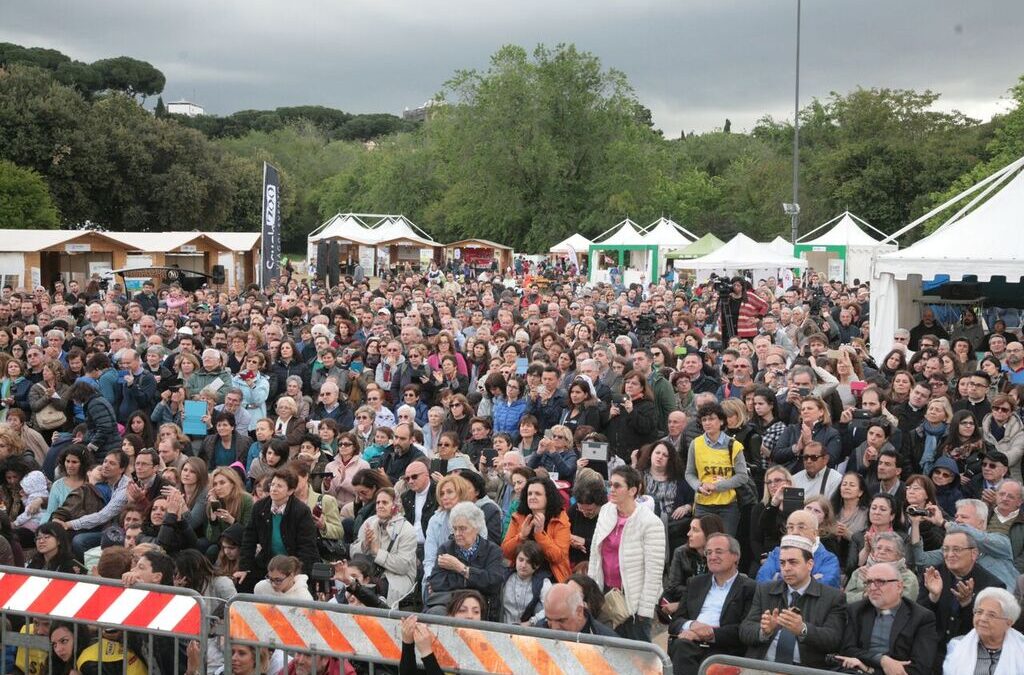
Apr 27, 2016 | Focolare Worldwide
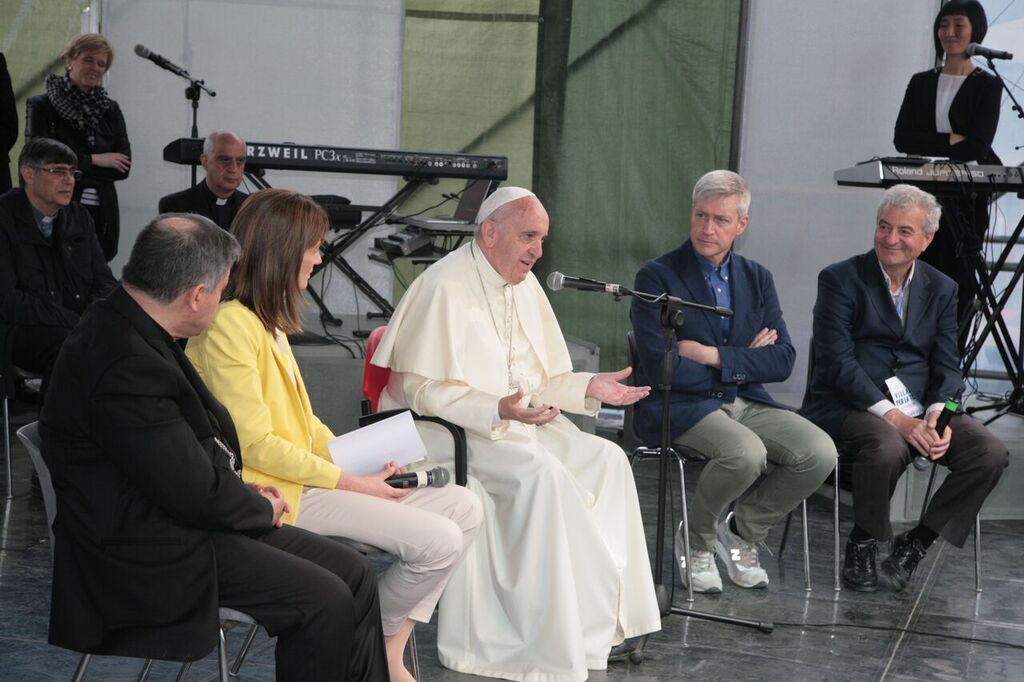
Photo: Lorenzo Russo
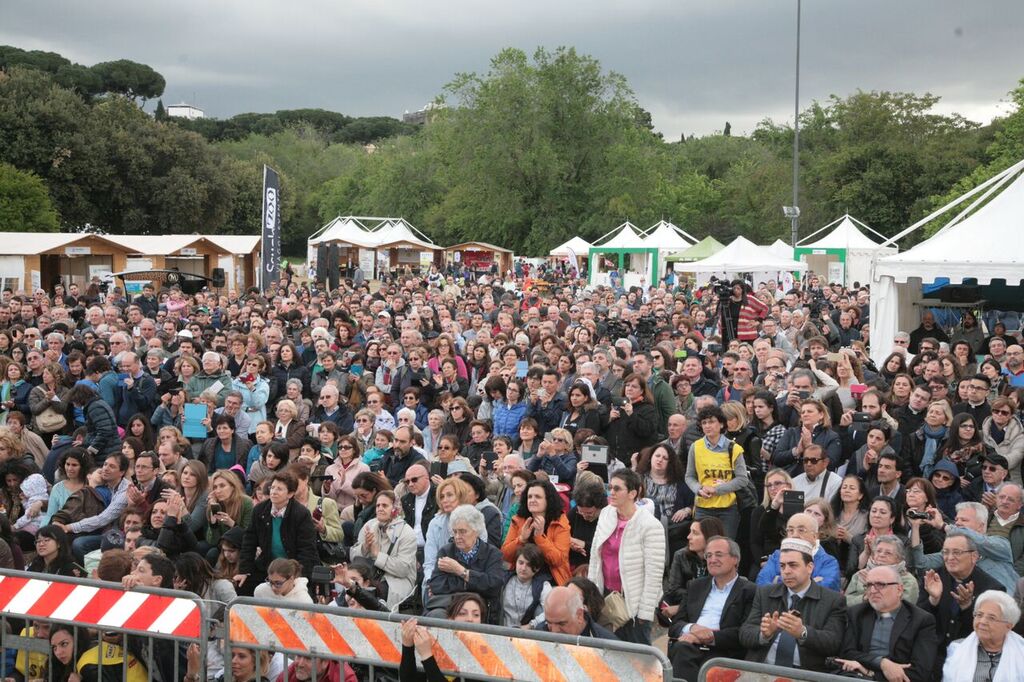
Photo: Lorenzo Russo
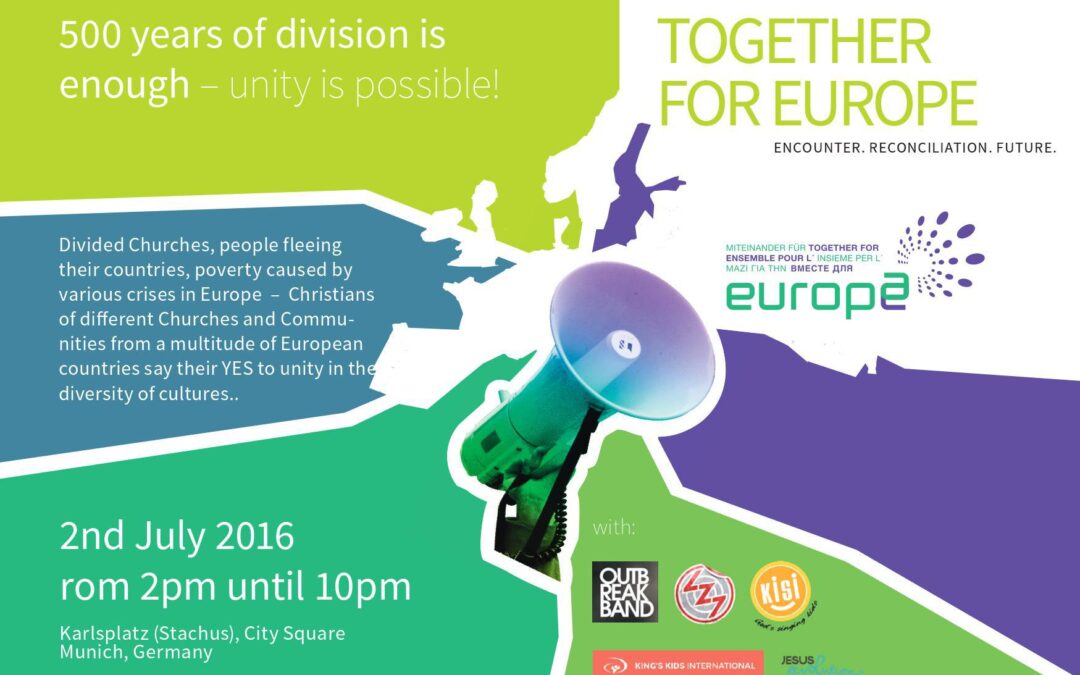
Apr 27, 2016 | Focolare Worldwide
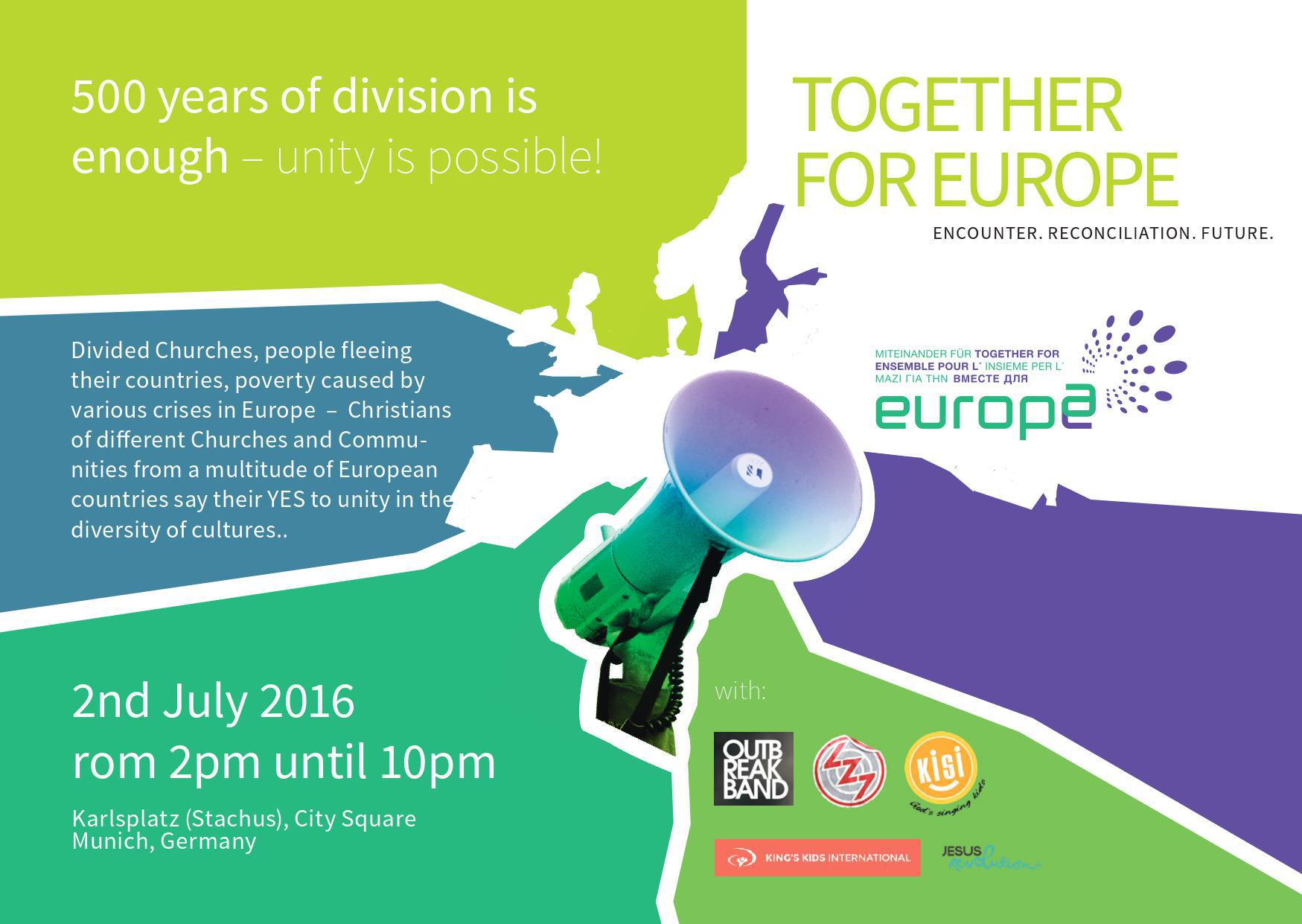 Encounter, Reconciliation, and Future, are three words that encompass the significance of the meeting in Munich at the Karlsplatz (Stachus),which was promoted by over 300 movements and communities of different Christian Churches. The objective is: to reflect together on the challenges that Europe faces, in the light of the testimonials of the network which is hidden at times, but very active and representing that part of society which commits itself to hospitality and solidarity for the most disadvantaged and weaker sections of society, so as to bridge the east and west, and overcome open or underlying conflicts. “What message does Europe have to give to the world?” When posed this question, the reply of the Focolare President, Maria Voce, concerned the objectives of the IPE: “The experience of these 2,000 years of Christianity brought about the maturation of ideas, culture, life, and actions that are necessary in the world today, and which unfortunately have not been evidenced. This is also because what is highlighted in Europe nowadays, are the difficulties, dramas, walls, and intolerance. Therefore, the good that exists is not manifested.“In the Evangelii Gaudium, Pope Francis speaks of the ‘invisible cities’ and the “connective network in which people share a common imagination, dreams about life, new human interactions that arise, and new cultures” (EG 74). «But right after this– Jesús Morán, Focolare Co-President explains – the Pope says that these invisible cities and territorial subcultures create a sort of ambivalence, and that subcultures practice segregation, violence and criminal activities. And so through fraternity inspired by love» which is the core of the message of the IPE, “We would like to show that in the good reigns in the invisible cities, and where there are virtuous practices, refugees are welcomed, and communion exists.” What are thus the expectations for this edition of the European meeting which is precisely on the eve of the 500th-year anniversary of the Reform, in a particular conjunction which sees the continent in a progressive crisis, also because of its incapacity to respond to the crisis of the migrants? We discussed it with Ilona Toth – from Hungary – and Diego Goller – an Italian, who on behalf of the Focolare Movement personally took part in the preparation for the Together for Europe event. «Recently the Orientation Committee of IEP met at the Roman headquarters of the Sant’Egidio Community, where the various movements leading this pathway converge. It was an opportunity to have another confrontation and trace an outline of our ideas. A year before the 500th anniversary of Luther’s Reform (1517-2017), we would like to show that a network of united Christians already exists, and is working among various movements and Churches», Diego Goller said. «We try to move ahead of the times and to show that in this Togetherness there is unity reached, not institutionally or theologically, but in its essence and substantial reconcilement: “500 years of division ” is, in fact, the title of one of the moments of the meeting. We are also guided by what Pope Francis and Patriarch Kirilli said in their joint declaration that the Christians of Eastern and Western Europe should unite to testify to the Gospel together.» «This is political action in the most noble sense of the term,» Ilona Toth affirmed. «The aim is to show all the good there is. Together for Europe’s prophecy lies in its name. Together is the gift of fraternity among us Christians, and on a broader range, with people of other religions and cultures. Then there comes the political side where Togetherness is achieved: charisms give concrete responses also to the political issues of cities.» And she concluded: «In Munich, we would like to show this stream of goodness which is already being put into action, and is also the fruit of the values of Christianity, developed throughout the centuries and brought to light today by the various charisms.» The event of 2 July will be preceded by a Congress of the Movements (30 June/1 July) at the Circus-Krone-Bau: 17 Forums and 19 Round Tables will involve exponents of the Churches, politics and civil society, who will discuss current issues. As a preparation for the Munich event, last 21 April in Genève at the Ecumenical Council of Churches, a round table was held, entitled “What are the identity and values of Europe?” Consult www.together4europe.org for further information. https://youtu.be/0CyLm0Nrkko Maria Chiara De Lorenzo
Encounter, Reconciliation, and Future, are three words that encompass the significance of the meeting in Munich at the Karlsplatz (Stachus),which was promoted by over 300 movements and communities of different Christian Churches. The objective is: to reflect together on the challenges that Europe faces, in the light of the testimonials of the network which is hidden at times, but very active and representing that part of society which commits itself to hospitality and solidarity for the most disadvantaged and weaker sections of society, so as to bridge the east and west, and overcome open or underlying conflicts. “What message does Europe have to give to the world?” When posed this question, the reply of the Focolare President, Maria Voce, concerned the objectives of the IPE: “The experience of these 2,000 years of Christianity brought about the maturation of ideas, culture, life, and actions that are necessary in the world today, and which unfortunately have not been evidenced. This is also because what is highlighted in Europe nowadays, are the difficulties, dramas, walls, and intolerance. Therefore, the good that exists is not manifested.“In the Evangelii Gaudium, Pope Francis speaks of the ‘invisible cities’ and the “connective network in which people share a common imagination, dreams about life, new human interactions that arise, and new cultures” (EG 74). «But right after this– Jesús Morán, Focolare Co-President explains – the Pope says that these invisible cities and territorial subcultures create a sort of ambivalence, and that subcultures practice segregation, violence and criminal activities. And so through fraternity inspired by love» which is the core of the message of the IPE, “We would like to show that in the good reigns in the invisible cities, and where there are virtuous practices, refugees are welcomed, and communion exists.” What are thus the expectations for this edition of the European meeting which is precisely on the eve of the 500th-year anniversary of the Reform, in a particular conjunction which sees the continent in a progressive crisis, also because of its incapacity to respond to the crisis of the migrants? We discussed it with Ilona Toth – from Hungary – and Diego Goller – an Italian, who on behalf of the Focolare Movement personally took part in the preparation for the Together for Europe event. «Recently the Orientation Committee of IEP met at the Roman headquarters of the Sant’Egidio Community, where the various movements leading this pathway converge. It was an opportunity to have another confrontation and trace an outline of our ideas. A year before the 500th anniversary of Luther’s Reform (1517-2017), we would like to show that a network of united Christians already exists, and is working among various movements and Churches», Diego Goller said. «We try to move ahead of the times and to show that in this Togetherness there is unity reached, not institutionally or theologically, but in its essence and substantial reconcilement: “500 years of division ” is, in fact, the title of one of the moments of the meeting. We are also guided by what Pope Francis and Patriarch Kirilli said in their joint declaration that the Christians of Eastern and Western Europe should unite to testify to the Gospel together.» «This is political action in the most noble sense of the term,» Ilona Toth affirmed. «The aim is to show all the good there is. Together for Europe’s prophecy lies in its name. Together is the gift of fraternity among us Christians, and on a broader range, with people of other religions and cultures. Then there comes the political side where Togetherness is achieved: charisms give concrete responses also to the political issues of cities.» And she concluded: «In Munich, we would like to show this stream of goodness which is already being put into action, and is also the fruit of the values of Christianity, developed throughout the centuries and brought to light today by the various charisms.» The event of 2 July will be preceded by a Congress of the Movements (30 June/1 July) at the Circus-Krone-Bau: 17 Forums and 19 Round Tables will involve exponents of the Churches, politics and civil society, who will discuss current issues. As a preparation for the Munich event, last 21 April in Genève at the Ecumenical Council of Churches, a round table was held, entitled “What are the identity and values of Europe?” Consult www.together4europe.org for further information. https://youtu.be/0CyLm0Nrkko Maria Chiara De Lorenzo
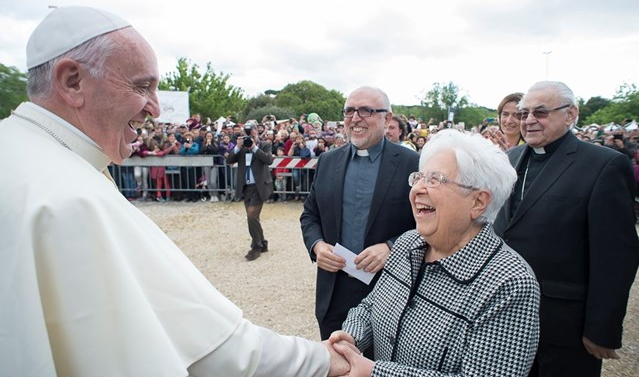
Apr 26, 2016 | Non categorizzato
 “It was the first time a Pope came to the Mariapolis and it reminded me of what I had heard Chiara Lubich say several times when describing the effect that the visits and the words of bishops had on her when they visited Mariapolises. She acknowledged them as “an anointing” different and weightier than those of others, whether they were theologians or saints. And she perceived that with the presence of a bishop the ‘city of Mary’ fulfils itself as the ‘city-Church’. This is what happened with the surprise visit of Pope Francis to the Earth Village event at Villa Borghese where, in collaboration with Earth Day Italy, the city of Rome was holding its Mariapolis. Now every Mariapolis in the world – and there are hundreds – will feel looked upon and loved in the same way. His off the cuff remarks seemed to say: you’ve taken me by the heart and I want to respond to what you’ve said to me. His clear and luminous words weren’t only an acknowledgement of the commitment and the deeds of the many people who spoke to him on stage; they also had the flavour of a programme for the future. His words kept returning to the same powerful image of the miracle of being able to transform the desert into forestland. I was struck by the way he acknowledged that what matters is to bring life, not make programmes and remain trapped inside them, but to go out and meet life as you find it, with its disorder and conflicts, without fear, facing the risks and welcoming the opportunities. You have to get close to it if you want to know the reality with your heart. Then the miracles happen: deserts, the most diverse sorts of deserts transform into forestland. Pope Francis possesses the power of the word. The images he uses are not easily erased from the heart or the mind. The Pope repeated several times that we do it together, with different people, groups and associations. He holds us to that and it gives him joy. The human spectacle at Villa Borghese was born from a question: Why not hold the Mariapolis right in the middle of Rome? Why not try to create a graft of fraternity with the city, a small but concrete ‘fraternity graft’ right on the streets of the city? We know that the city weeps because of many wounds and suffers from many weaknesses, but she also lives because of an unbelievable richness: the great good that is being done in her. When the Pope opened the Year of Mercy we thought of the many associations that are doing good in the city. Both religious and non-religious, they perform mercy. The encounter with Earth Day was almost by chance. Earth Day Italy works for the protection of Creation and for that integral ecology that is dear to Francis. It’s a process and exciting work that’s outside the normal scheme, on unimagined roads. Not without its difficulties, certainly, because we didn’t know one another and because we’re all different. But diversity is enriching, as the encounter with more than a hundred associations was. There was cooperation and bridges were built. Sometimes they’re very small things. One new friend told us: “Well, my association goes forward with the help of my pension. We don’t have logos or anything like that.” We wanted the Mariapolis this year to give witness to the good that that friend is also doing. Thus, the many virtuous underground cities contained in Rome emerged. The good is multiplying and a network is spreading that seems to concur with an intuition that Chiara Lubich put into writing in 1949. Encountering and loving Rome ‘many eyes would be illumined with His Light: tangible sign that He reigns there (. . .) reviving Christians and making this age that is so cold because it is atheist the Age of Fire, the Age of God (. . .) He’s not only a religious fact (. . .) And this separating Him from the entire life of men – a practical heresy of our time – subjugates man to something less than himself and relegates God who is Father to somewhere far from His children.”
“It was the first time a Pope came to the Mariapolis and it reminded me of what I had heard Chiara Lubich say several times when describing the effect that the visits and the words of bishops had on her when they visited Mariapolises. She acknowledged them as “an anointing” different and weightier than those of others, whether they were theologians or saints. And she perceived that with the presence of a bishop the ‘city of Mary’ fulfils itself as the ‘city-Church’. This is what happened with the surprise visit of Pope Francis to the Earth Village event at Villa Borghese where, in collaboration with Earth Day Italy, the city of Rome was holding its Mariapolis. Now every Mariapolis in the world – and there are hundreds – will feel looked upon and loved in the same way. His off the cuff remarks seemed to say: you’ve taken me by the heart and I want to respond to what you’ve said to me. His clear and luminous words weren’t only an acknowledgement of the commitment and the deeds of the many people who spoke to him on stage; they also had the flavour of a programme for the future. His words kept returning to the same powerful image of the miracle of being able to transform the desert into forestland. I was struck by the way he acknowledged that what matters is to bring life, not make programmes and remain trapped inside them, but to go out and meet life as you find it, with its disorder and conflicts, without fear, facing the risks and welcoming the opportunities. You have to get close to it if you want to know the reality with your heart. Then the miracles happen: deserts, the most diverse sorts of deserts transform into forestland. Pope Francis possesses the power of the word. The images he uses are not easily erased from the heart or the mind. The Pope repeated several times that we do it together, with different people, groups and associations. He holds us to that and it gives him joy. The human spectacle at Villa Borghese was born from a question: Why not hold the Mariapolis right in the middle of Rome? Why not try to create a graft of fraternity with the city, a small but concrete ‘fraternity graft’ right on the streets of the city? We know that the city weeps because of many wounds and suffers from many weaknesses, but she also lives because of an unbelievable richness: the great good that is being done in her. When the Pope opened the Year of Mercy we thought of the many associations that are doing good in the city. Both religious and non-religious, they perform mercy. The encounter with Earth Day was almost by chance. Earth Day Italy works for the protection of Creation and for that integral ecology that is dear to Francis. It’s a process and exciting work that’s outside the normal scheme, on unimagined roads. Not without its difficulties, certainly, because we didn’t know one another and because we’re all different. But diversity is enriching, as the encounter with more than a hundred associations was. There was cooperation and bridges were built. Sometimes they’re very small things. One new friend told us: “Well, my association goes forward with the help of my pension. We don’t have logos or anything like that.” We wanted the Mariapolis this year to give witness to the good that that friend is also doing. Thus, the many virtuous underground cities contained in Rome emerged. The good is multiplying and a network is spreading that seems to concur with an intuition that Chiara Lubich put into writing in 1949. Encountering and loving Rome ‘many eyes would be illumined with His Light: tangible sign that He reigns there (. . .) reviving Christians and making this age that is so cold because it is atheist the Age of Fire, the Age of God (. . .) He’s not only a religious fact (. . .) And this separating Him from the entire life of men – a practical heresy of our time – subjugates man to something less than himself and relegates God who is Father to somewhere far from His children.”
Maria Voce
President of the Focolare Movement
Source (Italian): Osservatore Romano, 25 aprile 2016 Centro televisivo vaticano (Italian)
Press releases – SIF – Focolare Information Service
Pope Francis’s words
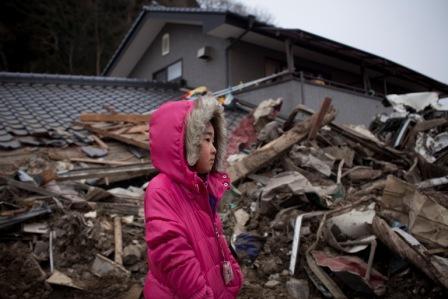
Apr 26, 2016 | Focolare Worldwide, Senza categoria
Isabel shares her state of mind following the earthquake that hit her country, Ecuador, on April 16. The physical structures that fell – bridges, buildings, houses – invite us to feel the earthquake in our own souls as well, and to ask ourselves whether we really are peace builders? I’ve realised that suffering helps to unite us. I’d like to challenge everyone during in these difficult days, to convert and become bearers of hope and optimism, that we help one another to keep faith alive.” There are 587 confirmed dead, and the wounded are more than 8 thousand, with 25 thousand displaced persons. The numbers continue to grow and it is estimated that reconstruction will cost the country billions of dollars. The Focolare Movement has begun a fundraiser for the Ecuador emergency, while they plan intervention on the ground.

Photo: United Nations
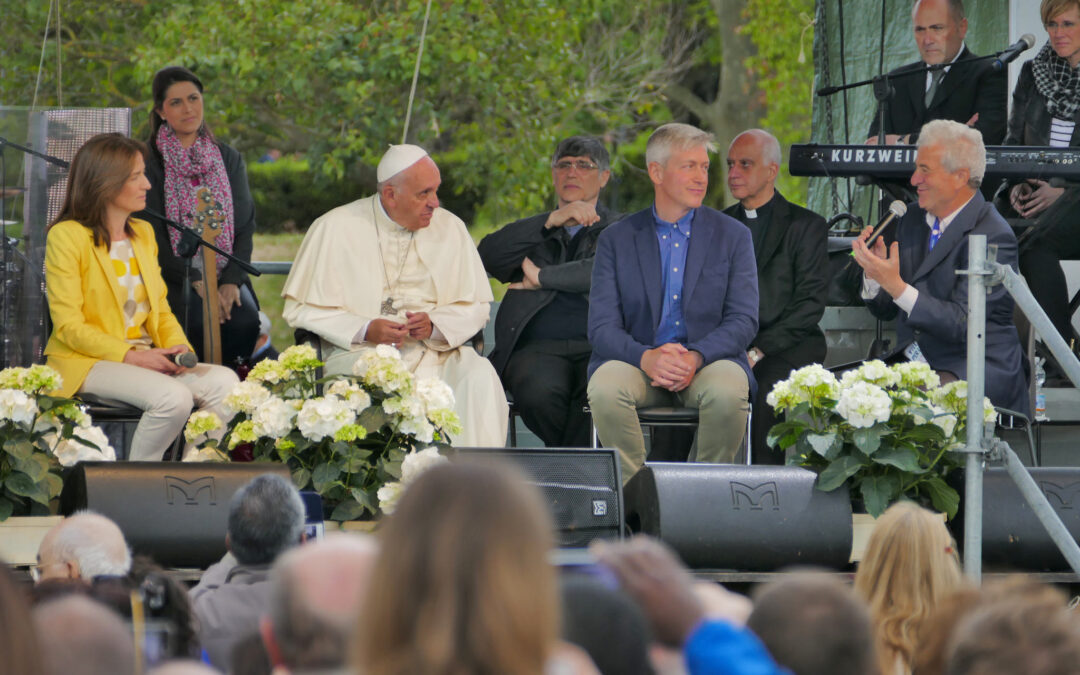
Apr 24, 2016 | Focolare Worldwide, Senza categoria

Photo: P. Gábor
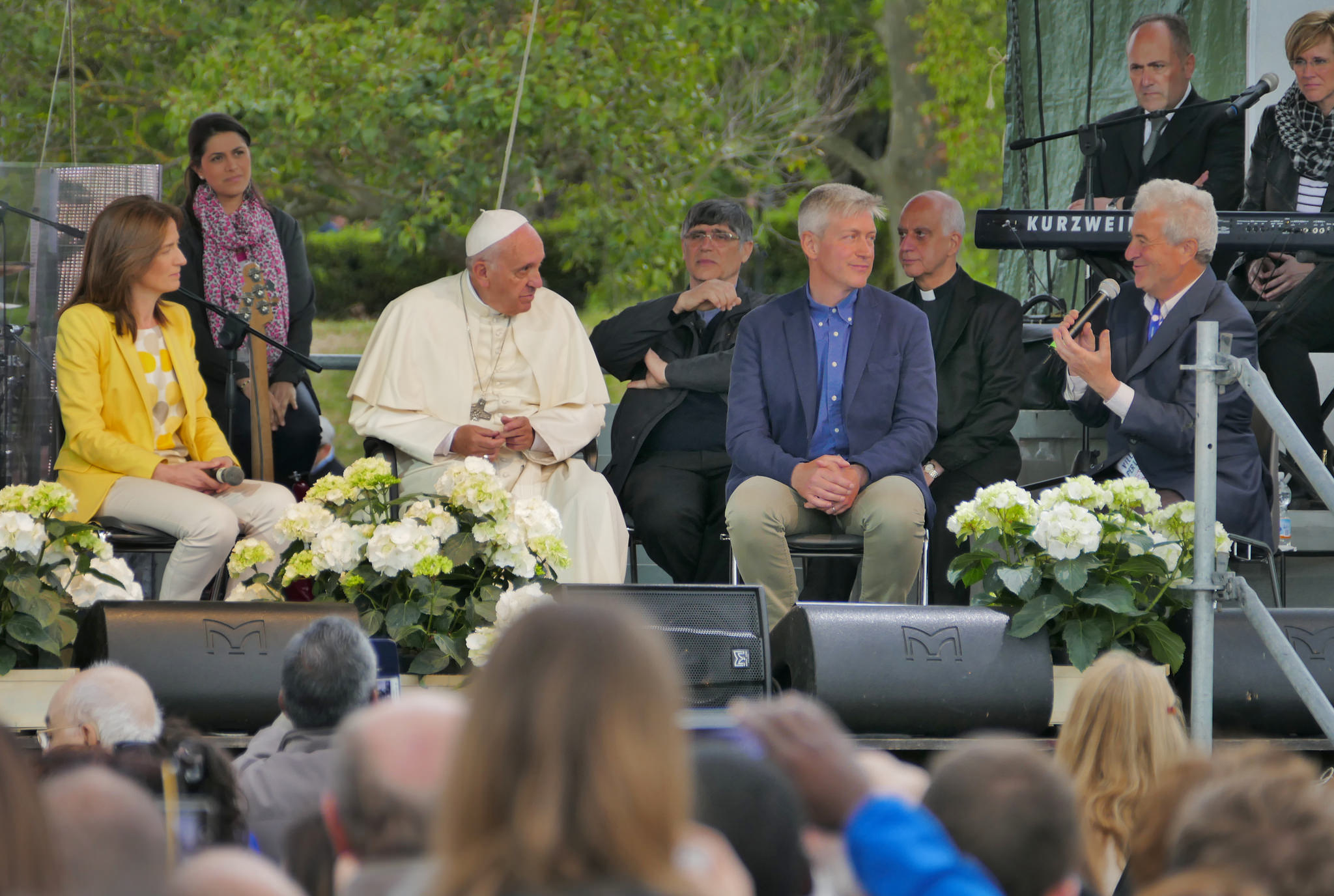
Photo: Thomas Klann
Pope Francis’s words
Press releases
https://vimeo.com/164030691 See Flickr photostream by Thomas Klann 
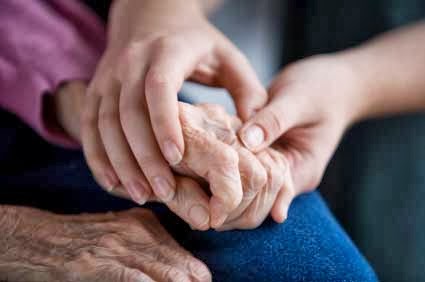
Apr 24, 2016 | Non categorizzato
 “We had said we wanted to see only Jesus in our neighbour, to deal with Jesus in our neighbor, to love Jesus in our neighbor, but now we recall that a neighbor has this or that defect, has this or that imperfection. Our eye becomes complicated and our being is no longer lit up. As a consequence, erring, we break unity. Perhaps that particular neighbor, like all of us, has made mistakes, but how does God view him or her? What really is that person’s condition, the truth of his or her state? If our neighbor is reconciled with God, then God no longer remembers anything, he has wiped out everything with his blood. So, why should we go on remembering? Who is in error at that moment? I who judge or my neighbour? I am. Therefore I must make myself see things from God’s viewpoint, in the truth, and treat my neighbor accordingly, so that if, by some mishap, he or she has not yet sorted things out with the Lord, the warmth of my love, which is Christ in me, will bring my neighbor to repentance, in the same way that the sun dries and heals over many wounds. Charity is preserved by truth, and truth is pure mercy with which we ought to be clothed from head to foot in order to be able to call ourselves Christians.”
“We had said we wanted to see only Jesus in our neighbour, to deal with Jesus in our neighbor, to love Jesus in our neighbor, but now we recall that a neighbor has this or that defect, has this or that imperfection. Our eye becomes complicated and our being is no longer lit up. As a consequence, erring, we break unity. Perhaps that particular neighbor, like all of us, has made mistakes, but how does God view him or her? What really is that person’s condition, the truth of his or her state? If our neighbor is reconciled with God, then God no longer remembers anything, he has wiped out everything with his blood. So, why should we go on remembering? Who is in error at that moment? I who judge or my neighbour? I am. Therefore I must make myself see things from God’s viewpoint, in the truth, and treat my neighbor accordingly, so that if, by some mishap, he or she has not yet sorted things out with the Lord, the warmth of my love, which is Christ in me, will bring my neighbor to repentance, in the same way that the sun dries and heals over many wounds. Charity is preserved by truth, and truth is pure mercy with which we ought to be clothed from head to foot in order to be able to call ourselves Christians.”
Source:Chiara Lubich, Essential Writings, New City Press, New York 2007, pp. 100-101
Apr 23, 2016 | Focolare Worldwide
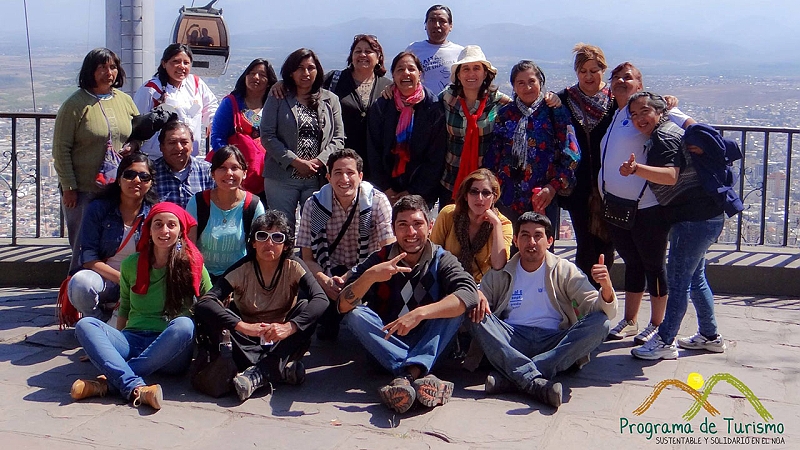
Apr 22, 2016 | Focolare Worldwide, Senza categoria
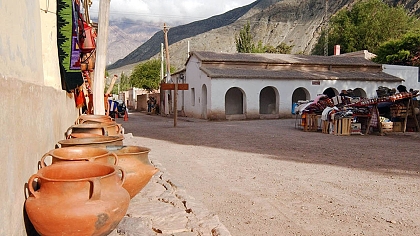 Salta: one of the more beautiful provinces of Argentina, with natural riches and ancient cultures that resisted the Spanish Conquest over 500 years ago. With the arrival of the new millennium it has been upgraded as a destination for tourists and the undisputed centre of the Northwest Region of Argentina. “The Sustainable Tourism Programme was begun in 2010 upon encouragement from the Bishops Commission for Migration and Tourism,” Paula González explains. “The Northwest of Argentina is mainly inhabited by descendants of indigenous peoples. Some live in communities and others are farmers. It demonstrates their connection to the land, both for produce and for artisanal crafts.” The important migrant waves, from Europe, the Middle East and Latin America – especially Bolivia – have created a ‘coexistence of cultures’, with a strong indigenous component that makes this a very unique region with cultural challenges.” The programme was begun in response to the lack of jobs. Only 39% of the economically active population had jobs. “We proposed working in the rural and more remote areas that were most affected,” explains the coordinator. The geography of the region contains wide valleys and rocky highlands (up to above 3000 metres). “We realized that the problem was due mainly to isolation,” continues Paula González, “which prevents them from selling their products, and in some communities there was a lack of water and energy. Those most affected were women and young people.” At that time Argentina was setting up a national tourism development plan that excluded rural communities. Then, the Catholic Church pointed to the need for more equitable and inclusive proposals. The goal was to create new tourist destinations based on agricultural and handicraft production, which are the basis of their livelihood.
Salta: one of the more beautiful provinces of Argentina, with natural riches and ancient cultures that resisted the Spanish Conquest over 500 years ago. With the arrival of the new millennium it has been upgraded as a destination for tourists and the undisputed centre of the Northwest Region of Argentina. “The Sustainable Tourism Programme was begun in 2010 upon encouragement from the Bishops Commission for Migration and Tourism,” Paula González explains. “The Northwest of Argentina is mainly inhabited by descendants of indigenous peoples. Some live in communities and others are farmers. It demonstrates their connection to the land, both for produce and for artisanal crafts.” The important migrant waves, from Europe, the Middle East and Latin America – especially Bolivia – have created a ‘coexistence of cultures’, with a strong indigenous component that makes this a very unique region with cultural challenges.” The programme was begun in response to the lack of jobs. Only 39% of the economically active population had jobs. “We proposed working in the rural and more remote areas that were most affected,” explains the coordinator. The geography of the region contains wide valleys and rocky highlands (up to above 3000 metres). “We realized that the problem was due mainly to isolation,” continues Paula González, “which prevents them from selling their products, and in some communities there was a lack of water and energy. Those most affected were women and young people.” At that time Argentina was setting up a national tourism development plan that excluded rural communities. Then, the Catholic Church pointed to the need for more equitable and inclusive proposals. The goal was to create new tourist destinations based on agricultural and handicraft production, which are the basis of their livelihood.  “The first year, we identified 30 communities and 7 key areas for development in 5 Provinces. Currently, almost 6 years later we are working in 5 areas. There are around fifty entrepreneurs linked to the ‘Network of Tourism Entrepreneurs (NOA)’. If we were to highlight anything it would be the network of organisations that have joined forces to work together in a structured way – national, provincial and local. They include universities, NGOs and businesses. They have also been closely connected to the Economy of Communion and the Movement for Unity in Politics that are key allies. Over these years,” Paula concludes, “what gave strength and effectiveness to the development of the project was the work done on the links in the chain of values and relationships that were formed between all the people involved.” We have already come a long way. There are local projects, new leaders capable of carrying things forward, and we can already foresee very satisfactory results: for example, interaction and mutual cooperation amongst different communities that are stepping out of their anonymity and becoming generators of their own history. For more information: Website Video
“The first year, we identified 30 communities and 7 key areas for development in 5 Provinces. Currently, almost 6 years later we are working in 5 areas. There are around fifty entrepreneurs linked to the ‘Network of Tourism Entrepreneurs (NOA)’. If we were to highlight anything it would be the network of organisations that have joined forces to work together in a structured way – national, provincial and local. They include universities, NGOs and businesses. They have also been closely connected to the Economy of Communion and the Movement for Unity in Politics that are key allies. Over these years,” Paula concludes, “what gave strength and effectiveness to the development of the project was the work done on the links in the chain of values and relationships that were formed between all the people involved.” We have already come a long way. There are local projects, new leaders capable of carrying things forward, and we can already foresee very satisfactory results: for example, interaction and mutual cooperation amongst different communities that are stepping out of their anonymity and becoming generators of their own history. For more information: Website Video
Apr 21, 2016 | Non categorizzato
Apr 20, 2016 | Non categorizzato
Promoted by the Youth for a United World, “High resolution – Rule of fire for Peace” will be a dedicated peace day. This event began in Portugal in 2002, and since then has been held on 1 May biannually. It has always involved thousands of Portuguese youths, and also those of various nationalities. In 2016, “high resolution” invites the youth to become protagonists of fraternity and builders of peace without compromises. Through music, choreographies, testimonials and Expo events, they will present the actions that have been launched, with the aim of furnishing concrete answers and giving suggestions on how to proceed in this direction. This year, the programme will also include various workshops that will discuss the theme of peace in various fields such as ecology, art, intercultural dialogue, economy, sports, communication, science and technology. This day is part of the international United World Project that targets universal brotherhood as the paradigm of human relationships, promoting the identification, preparation and dissemination of actions that have already started at global level, in favour of fraternity. Invitation for 1 May 2016
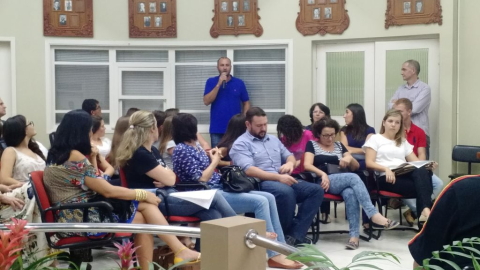
Apr 20, 2016 | Focolare Worldwide
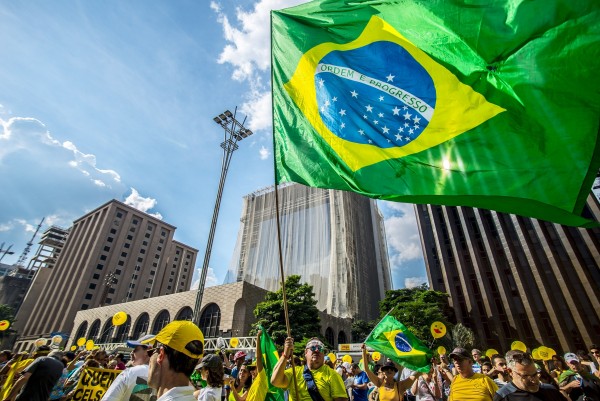 With 367 ayes and 137 nays, the Brazilian deputies approved the opening of the impeachment procedure against President Dilma Rousseff, while other 200 million greatly divided Brazilians, anxiously awaited the outcome of the voting session. It is now the Senate’s turn to confirm or not the implementation the indictment of the President. Should it be favourable, the vote of 11 May will suspend the President from her mandate for 6 months, while awaiting for the final verdict. The Brazilian constitution provides, in this case and for this length of time, that the Vice-President will assume the office. The Brazilian bishops in an official declaration dated 13 April, aired their opinions “in the face of the profound ethical, political, economic and institutional crisis” which is besetting the country with “unprecedented scandals of corruption,” involving businessmen, politicians, public officers in scheme which, besides being immoral and criminal, will be paid dearly”– the bishops said – especially by the poor. On focusing attention on the impeachment, they affirmed that they were “closely following this procedure” in the hope that everything would be done “in compliance with judicial system of the democratic rule of law. They furthermore underlined that “the good of the Nation demands that all parties overcome their personal interest, that of parties and groups” so that “the polarisation of ideological positions in a highly emotive atmosphere, would lead to the loss of the objectives and bring division and violence that menace social peace.” They asked the “Brazilian people to preserve the values of democratic co-existence, respect of one another, tolerance and healthy pluralism, and promote a peaceful political debate.” They concluded by affirming their belief “in dialogue, in the wisdom of the Brazilian people and the discernment of the authorities in seeking the strategies that can guarantee the solution to the actual crisis and the preservation of peace in our country.”
With 367 ayes and 137 nays, the Brazilian deputies approved the opening of the impeachment procedure against President Dilma Rousseff, while other 200 million greatly divided Brazilians, anxiously awaited the outcome of the voting session. It is now the Senate’s turn to confirm or not the implementation the indictment of the President. Should it be favourable, the vote of 11 May will suspend the President from her mandate for 6 months, while awaiting for the final verdict. The Brazilian constitution provides, in this case and for this length of time, that the Vice-President will assume the office. The Brazilian bishops in an official declaration dated 13 April, aired their opinions “in the face of the profound ethical, political, economic and institutional crisis” which is besetting the country with “unprecedented scandals of corruption,” involving businessmen, politicians, public officers in scheme which, besides being immoral and criminal, will be paid dearly”– the bishops said – especially by the poor. On focusing attention on the impeachment, they affirmed that they were “closely following this procedure” in the hope that everything would be done “in compliance with judicial system of the democratic rule of law. They furthermore underlined that “the good of the Nation demands that all parties overcome their personal interest, that of parties and groups” so that “the polarisation of ideological positions in a highly emotive atmosphere, would lead to the loss of the objectives and bring division and violence that menace social peace.” They asked the “Brazilian people to preserve the values of democratic co-existence, respect of one another, tolerance and healthy pluralism, and promote a peaceful political debate.” They concluded by affirming their belief “in dialogue, in the wisdom of the Brazilian people and the discernment of the authorities in seeking the strategies that can guarantee the solution to the actual crisis and the preservation of peace in our country.”  The Political Movement for the unity of Brazil (MPPU) – association for political confrontation which draws inspiration from the ideals of fraternity typical of the spirituality of the Focolare – affirmed through its President, Sergio Previdi “its conviction in the force of dialogue that is free from prejudices.” Previdi moreover invited the citizens to “call up inclusive dialogue” because “in exercising democracy together we can put into practice the necessary actions for the good of all.” “A lot can still be done – they said – if we put into practice the culture of fraternity, overcoming party politics positively in the daily political life of the country.” For the MMPU of Brazil the main concern in this delicate moment is that of not “scattering our forces and allowing ideological and party differences to divide us,” but of “acknowledging our differences so as to deepen dialogue.” And above all “making the effort to gather information from various sources, in order to get closer to the truth.” The numerous members of the Focolare Movement in Brazil, in line with the Brazilian Episcopal Conference, undertakes to offer what they consider “the main contribution we can give in this difficult moment: the declaration and testimony of fraternity lived – the core of the spirituality of unity that inspires us all. ”
The Political Movement for the unity of Brazil (MPPU) – association for political confrontation which draws inspiration from the ideals of fraternity typical of the spirituality of the Focolare – affirmed through its President, Sergio Previdi “its conviction in the force of dialogue that is free from prejudices.” Previdi moreover invited the citizens to “call up inclusive dialogue” because “in exercising democracy together we can put into practice the necessary actions for the good of all.” “A lot can still be done – they said – if we put into practice the culture of fraternity, overcoming party politics positively in the daily political life of the country.” For the MMPU of Brazil the main concern in this delicate moment is that of not “scattering our forces and allowing ideological and party differences to divide us,” but of “acknowledging our differences so as to deepen dialogue.” And above all “making the effort to gather information from various sources, in order to get closer to the truth.” The numerous members of the Focolare Movement in Brazil, in line with the Brazilian Episcopal Conference, undertakes to offer what they consider “the main contribution we can give in this difficult moment: the declaration and testimony of fraternity lived – the core of the spirituality of unity that inspires us all. ”
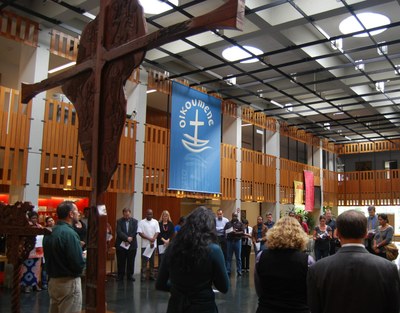
Apr 19, 2016 | Non categorizzato
 Without falling into the trap of ideological self-contained reminiscences, we shall be asking what has contributed to the idea of a “European identity”, whether it be conceived as an existing identity or as one still coming into existence, in what terms it can be described, and what has given rise to the ideal of European unity that can then be expressed in political form. Moving one step further, we shall attempt to draw, out of the historical experience of Europe, values and ideals that could enable us to surmount the present crisis and find a way forward into the future. Are there any examples and actual projects that are putting into action these values and ideals? Within a broad-minded vision of secularism, what could be a welcome contribution from churches and other religious communities? And, in this context, what is, or could be, the role of Switzerland?
Without falling into the trap of ideological self-contained reminiscences, we shall be asking what has contributed to the idea of a “European identity”, whether it be conceived as an existing identity or as one still coming into existence, in what terms it can be described, and what has given rise to the ideal of European unity that can then be expressed in political form. Moving one step further, we shall attempt to draw, out of the historical experience of Europe, values and ideals that could enable us to surmount the present crisis and find a way forward into the future. Are there any examples and actual projects that are putting into action these values and ideals? Within a broad-minded vision of secularism, what could be a welcome contribution from churches and other religious communities? And, in this context, what is, or could be, the role of Switzerland?
Programme
A panel discussion, with audience participation, with:
- Rev. Dr Olav Fykse Tveit, general secretary of the World Council of Churches
- Mr Eric Ackermann, a member of the Jewish community in Geneva
- Ms Gaelle Courtens, a journalist associated with the Federation of Protestant Churches in Italy and the ‘nev-notizie evangeliche’ Press Agency
- Mr Pasquale Ferrara, a diplomat, and professor at the LUISS University, Rome, and the Sophia University Institute, Loppiano
- Mr Andreas Gross, a former Swiss parliamentarian, and a former member of the Parliamentary Assembly of the Council of Europe
- In the chair: Ms Marguerite Contat, former head of delegations at the International Committee of the Red Cross, and joint president of the Genevan Constituent Assembly, 2008-12
Simultaneous interpretation in English and French will be available. The event will be live streamed online.
Apr 19, 2016 | Focolare Worldwide
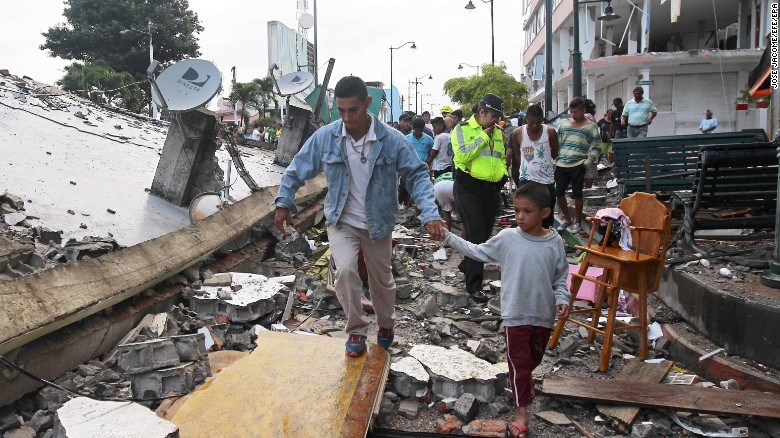
Apr 18, 2016 | Focolare Worldwide
 “Our country’s coastal region was hit by a severe earthquake with a magnitude of 7.8 on the Richter scale. It was felt throughout Ecuador, and also in several regions of Colombia and northern Peru,” write Fabian and Ardita from the Focolare community in Quito. “The situation is critical especially in several devastated cities.” “The solidarity of the people was prompt and concrete: people risking their own lives to help others; testimonies of the many people who lost loved ones; but in the midst of all the suffering there is also the strong-felt faith of the people. It’s quite moving and inspires us to believe in His love.” In response to the emergency in Ecuador the Focolare Movement has launched a fundraiser while a study is underway to see what can be done locally on the ground. News has also arrived from Focolare communities in Nagasaki and Tokyo (Japan): “For two days the country has been immersed in an atmosphere of ‘suspense’ because of the earthquake on Kyushu Island, in the regions of Kumamoto and Oita. The situation has activated an immediate solidarity effort and prayer in both religious and civil sectors.” Local authorities have already made arrangements to welcome the nearly 184,000 displaced persons. How you can help: Donations sent to the accounts below will be managed jointly by the Associations Action for a United World (AMU) and Action for New Families (AFN). In many countries of the European Union and in other countries of the world tax benefits are available for making such donations according to local regulations. How you can help: CAUSE: Ecuador Earthquake Emergency
“Our country’s coastal region was hit by a severe earthquake with a magnitude of 7.8 on the Richter scale. It was felt throughout Ecuador, and also in several regions of Colombia and northern Peru,” write Fabian and Ardita from the Focolare community in Quito. “The situation is critical especially in several devastated cities.” “The solidarity of the people was prompt and concrete: people risking their own lives to help others; testimonies of the many people who lost loved ones; but in the midst of all the suffering there is also the strong-felt faith of the people. It’s quite moving and inspires us to believe in His love.” In response to the emergency in Ecuador the Focolare Movement has launched a fundraiser while a study is underway to see what can be done locally on the ground. News has also arrived from Focolare communities in Nagasaki and Tokyo (Japan): “For two days the country has been immersed in an atmosphere of ‘suspense’ because of the earthquake on Kyushu Island, in the regions of Kumamoto and Oita. The situation has activated an immediate solidarity effort and prayer in both religious and civil sectors.” Local authorities have already made arrangements to welcome the nearly 184,000 displaced persons. How you can help: Donations sent to the accounts below will be managed jointly by the Associations Action for a United World (AMU) and Action for New Families (AFN). In many countries of the European Union and in other countries of the world tax benefits are available for making such donations according to local regulations. How you can help: CAUSE: Ecuador Earthquake Emergency
| Azione per un Mondo Unito ONLUS (AMU) |
Azione per Famiglie Nuove ONLUS (AFN) |
| IBAN: IT16 G050 1803 2000 0000 0120 434 at Banca Popolare Etica |
IBAN: IT55 K033 5901 6001 0000 0001 060 at Banca Prossima |
| SWIFT CODE/BIC: CCRTIT2184D |
SWIFT CODE/BIC: BCITITMX |

Apr 18, 2016 | Non categorizzato

Tommaso Sorgi (left) with Igino Giordani in 1969
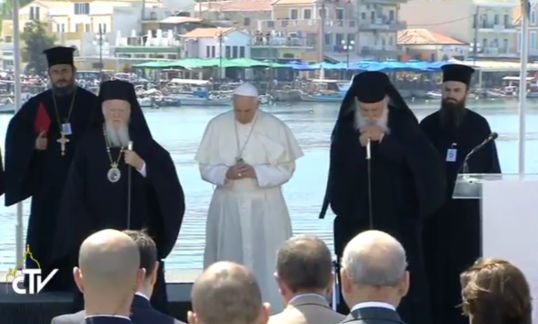
Apr 17, 2016 | Focolare Worldwide
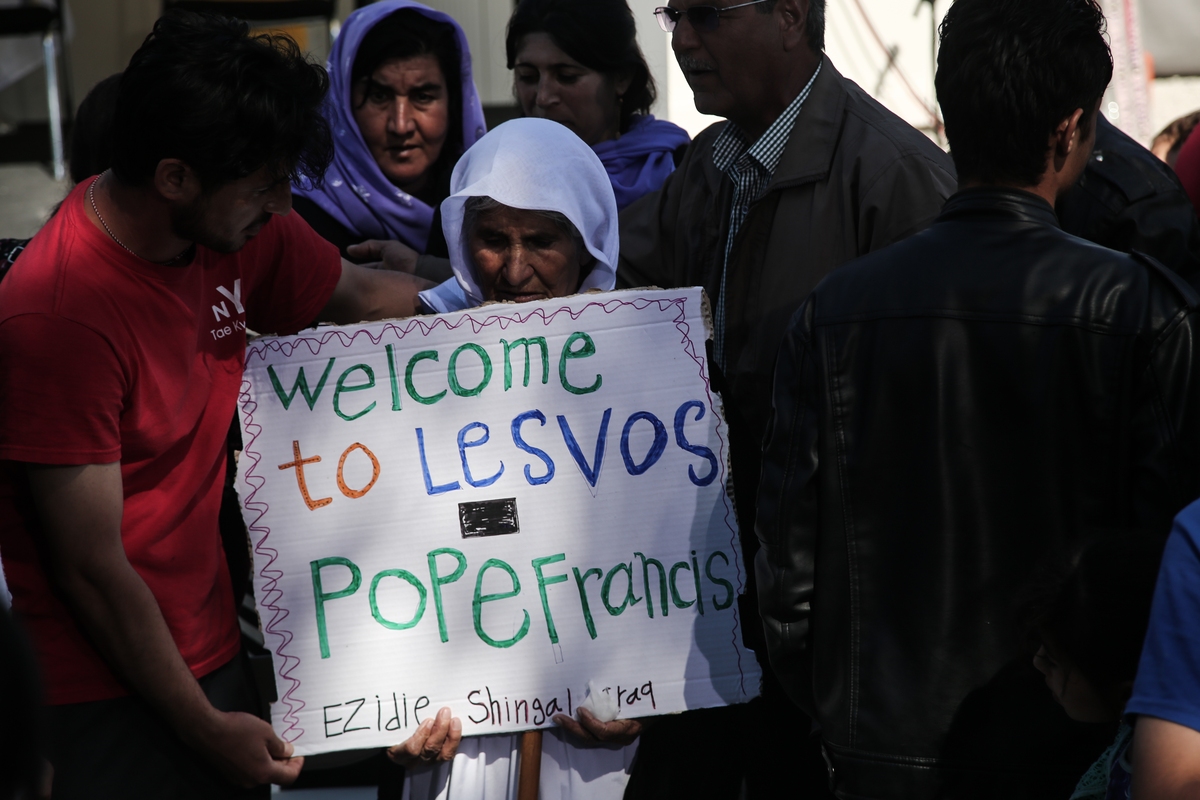
Pope Francis visits the Refugee Camp of Moria, in Mytilene, Lesbos, on April 16, 2016
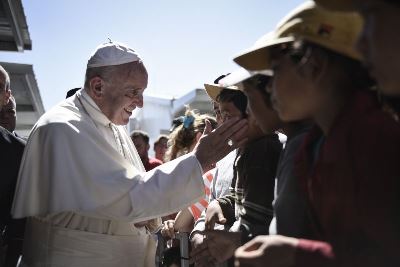 There was nothing but gratitude for the Greek people, expressed in different ways by the three religious leaders: In a moment of great difficulty caused by the serious economic crisis, the people still find the way and the heart to embrace those who flee to a better future. They expressed equal gratitude towards the many volunteers who showed up from all parts of Europe and around the world. Originally from South Africa, Pauline, from the Focolare Movement, has been living for many years between Athens and Lesbo. She repeatedly witnessed the landings of the refugees and helped to rescue them: “The Pope has also sent a political message at the border openings. I wonder why he didn’t go to Idomeni. Perhaps it would have been too political.” Chiara, from Pope John XXIII Association: “He said what I’ve felt for some time: Just stop classifying these people as ‘refugees’, as numbers. It’s time for personal contact, for knowing their stories, their backgrounds;” Eugenio, from the Italian Ambulance Corps at the Order of Malta, said: “I was very moved when he spoke of the children that die on the sea, because I have seen such scenes myself. I managed to shake hands with him and was strengthened for my work.” Cristina is Catholic and her grandparents are refugees that fled from Turkey to Lesvos: “It was an historic event, unimagineable on this island. It seems like a dream”. Father Maurice is coordinator of the Jesuit Refugee Service (JRS) in Greece. He remarked: “All of it was important: the words, the gestures, the silences. All of it spoke. The most powerful moment in the ‘jail’ was the personal contact the Pope had with each person” “A common message was sent to the refugees,” the Jesuit went on to say. They are mainly Muslims discovering a land of Christian origins. Therefore it matters that they see the unity of the Christian leaders and the closeness that these leaders wish to give a witness of.” “Moving. And very important from the ecumenical and political point of view, because of the meeting with Prime Minister, Alexis Tsipras,” said Vasileios Meichanetsidis from Apostles (an NGO from the Greek Orthodox Church). “The Pope recognised how much the Greeks had done, and the Greeks gladly welcomed him.”
There was nothing but gratitude for the Greek people, expressed in different ways by the three religious leaders: In a moment of great difficulty caused by the serious economic crisis, the people still find the way and the heart to embrace those who flee to a better future. They expressed equal gratitude towards the many volunteers who showed up from all parts of Europe and around the world. Originally from South Africa, Pauline, from the Focolare Movement, has been living for many years between Athens and Lesbo. She repeatedly witnessed the landings of the refugees and helped to rescue them: “The Pope has also sent a political message at the border openings. I wonder why he didn’t go to Idomeni. Perhaps it would have been too political.” Chiara, from Pope John XXIII Association: “He said what I’ve felt for some time: Just stop classifying these people as ‘refugees’, as numbers. It’s time for personal contact, for knowing their stories, their backgrounds;” Eugenio, from the Italian Ambulance Corps at the Order of Malta, said: “I was very moved when he spoke of the children that die on the sea, because I have seen such scenes myself. I managed to shake hands with him and was strengthened for my work.” Cristina is Catholic and her grandparents are refugees that fled from Turkey to Lesvos: “It was an historic event, unimagineable on this island. It seems like a dream”. Father Maurice is coordinator of the Jesuit Refugee Service (JRS) in Greece. He remarked: “All of it was important: the words, the gestures, the silences. All of it spoke. The most powerful moment in the ‘jail’ was the personal contact the Pope had with each person” “A common message was sent to the refugees,” the Jesuit went on to say. They are mainly Muslims discovering a land of Christian origins. Therefore it matters that they see the unity of the Christian leaders and the closeness that these leaders wish to give a witness of.” “Moving. And very important from the ecumenical and political point of view, because of the meeting with Prime Minister, Alexis Tsipras,” said Vasileios Meichanetsidis from Apostles (an NGO from the Greek Orthodox Church). “The Pope recognised how much the Greeks had done, and the Greeks gladly welcomed him.”  “We’re all migrants,” the Pope went on to say during the prayer at the port of Lesbo where, as at Lampedusa in 2013, he left a wreath of flowers on the surface of the sea. What is being expected of the political world? “It would be a matter of further stronger appeals especially toward Europe to consider the matter of the migrants and of the refugees not only in terms of internal politics or emergency, but as a new front on which the future of the continent comes into play along with its credibility in terms of its claims of principles and concrete politics,” said pasquale Ferrara, author of the recent book, Il mondo di Francesco. Bergoglio e la politica internazionale. Ferrara is a member of the Abba School for the field of political science and was the Italian Consul to Athens. “The Pope didn’t go there on a humanitarian mission, but wished to underscore this profound dimension,” Ferrara continued. “And the fact that he did it in an ecumenical manner was an even more powerful sign; almost like saying the politics isn’t managing to solve this issue, so we join the game, not as substitutes, but to underscore that this must be a point of priority on the world’s political agenda. The fact that the refugees brought to the Vatican were all Muslims underscores that ISIS is not only exterminating Christians. It is not a problem of religion, but of ending a war, all wars.” Joint Statement Maria Chiara De Lorenzo
“We’re all migrants,” the Pope went on to say during the prayer at the port of Lesbo where, as at Lampedusa in 2013, he left a wreath of flowers on the surface of the sea. What is being expected of the political world? “It would be a matter of further stronger appeals especially toward Europe to consider the matter of the migrants and of the refugees not only in terms of internal politics or emergency, but as a new front on which the future of the continent comes into play along with its credibility in terms of its claims of principles and concrete politics,” said pasquale Ferrara, author of the recent book, Il mondo di Francesco. Bergoglio e la politica internazionale. Ferrara is a member of the Abba School for the field of political science and was the Italian Consul to Athens. “The Pope didn’t go there on a humanitarian mission, but wished to underscore this profound dimension,” Ferrara continued. “And the fact that he did it in an ecumenical manner was an even more powerful sign; almost like saying the politics isn’t managing to solve this issue, so we join the game, not as substitutes, but to underscore that this must be a point of priority on the world’s political agenda. The fact that the refugees brought to the Vatican were all Muslims underscores that ISIS is not only exterminating Christians. It is not a problem of religion, but of ending a war, all wars.” Joint Statement Maria Chiara De Lorenzo

 At a meeting with young Argentinians in Rio de Janiero, Pope Francis advised: ‘Read the Beatitudes, it will do you good.’ Our task is to re-read the message of the Beatitudes. For three consecutive years, the Pope has chosen for us three out of the eight Beatitudes as the themes for the WYDs. Each one is elaborated on in his addresses, in which he comments on theological matters and gives the youth some tasks for the next year of spiritual work. The choice of Krakow and World Youth Day’s motto lead us to the Spark of Mercy. Since the appearance of Jesus to St. Sister Faustina, Mercy has been radiating from Krakow-Lagiewniki to the whole universal Church. Krakow is widely known as the centre of worship of God’s mercy, and young pilgrims who come will surely want to see the place of the revelations, Sister Faustina’s tomb, and the shrine – the place where St. John Paul II entrusted the world to God’s Mercy. The theme of the XXXI World Youth Day Krakow 2016 is: ‘Blessed are the merciful, for they shall obtain mercy’ (Mt 5:7). Our Holy Father Francis has chosen the fifth of the eight Beatitudes, given by Jesus in his Sermon on the Mount on the shores of the Sea of Galilee, to show the importance of the Beatitudes which are at the heart of Jesus’ teaching. In his first Sermon, Jesus presents us with eight examples of qualities that bring us closer to the Kingdom of God. Among the main events there will be the Opening Mass on the 25th of July, the Welcome Ceremony with the first meeting the Holy Father (28th July), the Way of the Cross with the WYD Cross (29th July), and then the event at the heart of World Youth Day: the Vigil with the Holy Father (30th July) and the Concluding Mass (31st July). The program will also include catechesis in various languages The Youth Festival: a religious, artistic and cultural program takes place in the afternoons and evenings during the three days of catechesis, except during the Main Events. The Youth Festival is composed of open and free initiatives of an artistic, religious and spiritual character. This aspect of WYD gives pilgrims an opportunity to participate in concerts, exhibitions, workshops, sporting events, theatre events and many others. The Youth Festival is prepared for pilgrims, by pilgrims. Everyone has the opportunity to participate not only as a spectator but also as an artist or organizer. The young people of the Focolare Movement will give their contribution towards the preparation of WYD, particularly through an event held during this Festival on 27th July in Krakow, Sports Club Plaszowianka ul. Stroza-Rybna 19 (tram stop 50, 20, 11).
At a meeting with young Argentinians in Rio de Janiero, Pope Francis advised: ‘Read the Beatitudes, it will do you good.’ Our task is to re-read the message of the Beatitudes. For three consecutive years, the Pope has chosen for us three out of the eight Beatitudes as the themes for the WYDs. Each one is elaborated on in his addresses, in which he comments on theological matters and gives the youth some tasks for the next year of spiritual work. The choice of Krakow and World Youth Day’s motto lead us to the Spark of Mercy. Since the appearance of Jesus to St. Sister Faustina, Mercy has been radiating from Krakow-Lagiewniki to the whole universal Church. Krakow is widely known as the centre of worship of God’s mercy, and young pilgrims who come will surely want to see the place of the revelations, Sister Faustina’s tomb, and the shrine – the place where St. John Paul II entrusted the world to God’s Mercy. The theme of the XXXI World Youth Day Krakow 2016 is: ‘Blessed are the merciful, for they shall obtain mercy’ (Mt 5:7). Our Holy Father Francis has chosen the fifth of the eight Beatitudes, given by Jesus in his Sermon on the Mount on the shores of the Sea of Galilee, to show the importance of the Beatitudes which are at the heart of Jesus’ teaching. In his first Sermon, Jesus presents us with eight examples of qualities that bring us closer to the Kingdom of God. Among the main events there will be the Opening Mass on the 25th of July, the Welcome Ceremony with the first meeting the Holy Father (28th July), the Way of the Cross with the WYD Cross (29th July), and then the event at the heart of World Youth Day: the Vigil with the Holy Father (30th July) and the Concluding Mass (31st July). The program will also include catechesis in various languages The Youth Festival: a religious, artistic and cultural program takes place in the afternoons and evenings during the three days of catechesis, except during the Main Events. The Youth Festival is composed of open and free initiatives of an artistic, religious and spiritual character. This aspect of WYD gives pilgrims an opportunity to participate in concerts, exhibitions, workshops, sporting events, theatre events and many others. The Youth Festival is prepared for pilgrims, by pilgrims. Everyone has the opportunity to participate not only as a spectator but also as an artist or organizer. The young people of the Focolare Movement will give their contribution towards the preparation of WYD, particularly through an event held during this Festival on 27th July in Krakow, Sports Club Plaszowianka ul. Stroza-Rybna 19 (tram stop 50, 20, 11).

 “The inspiration to form the
“The inspiration to form the  The values of Economy of Communion are expressed in two words that seem to contradict each other … “In effect, the businessmen who join the EoC make a revolutionary choice. The reason why we inserted the preposition “for” is due to the fact that firstly, we are still in the process of building a full communion and none of us has the presumption to feel that we have reached the goal, and secondly, though not less importantly, because Economy of Communion was created for the poor; it is with them that each of the businesses freely shares a part of the corporate profits. This is why we entrepreneurs feel the need to work together by sharing ideas, giving support, paying attention to the others (employees, clients, suppliers, shareholders, or even competitors), and sharing ideas, difficulties and talents. We pay special attention to the businessmen and workers who in these years are suffering the consequences of the economic and social crises.” Who can join your association? “Our network is made up of entrepreneurs and professionals who we define as ordinary partners, and also all the people who want to uphold the values of EoC and who we consider our supporter-partners. You can cooperate with AIPEC also by visiting the
The values of Economy of Communion are expressed in two words that seem to contradict each other … “In effect, the businessmen who join the EoC make a revolutionary choice. The reason why we inserted the preposition “for” is due to the fact that firstly, we are still in the process of building a full communion and none of us has the presumption to feel that we have reached the goal, and secondly, though not less importantly, because Economy of Communion was created for the poor; it is with them that each of the businesses freely shares a part of the corporate profits. This is why we entrepreneurs feel the need to work together by sharing ideas, giving support, paying attention to the others (employees, clients, suppliers, shareholders, or even competitors), and sharing ideas, difficulties and talents. We pay special attention to the businessmen and workers who in these years are suffering the consequences of the economic and social crises.” Who can join your association? “Our network is made up of entrepreneurs and professionals who we define as ordinary partners, and also all the people who want to uphold the values of EoC and who we consider our supporter-partners. You can cooperate with AIPEC also by visiting the 
























 “Resignation and weariness do not belong to the soul of Europe; even our problems can become powerful forces of unity” For the majority of Europeans, May 9 is an occasion to celebrate the values of integration, unity and peace, as this date marks the anniversary of the historical Schuman declaration that gave birth to the European Union; but for others it marks the time when Stalin declared victory over Germany on May 9, 1945 and rights started to be deprived under the Soviet rule. The innovative process of integration, which Europe dared to start sixty years ago, should be confronted against this historical background even today. Considering the present crisis and the contradictions inherent in the cultural and social paradigms that peoples in Europe are experiencing, one is bound to ask: is the European experience still valid? Do Europeans still want to be together? For Pasquale Ferrara, a diplomat, a scholar and a lecturer in International Relations and Diplomacy, “the European vision of integration – which consists of bringing together not so much the leaderships, but the political will of the different countries to govern jointly over phenomena that are beyond control of individual states – is still one of great insight”. Through integration “Europe demonstrates that even today multilateralism can have an added value if attention is not centred on the state but on the political function it performs to provide for the needs of its citizens in a global and transnational world”.
“Resignation and weariness do not belong to the soul of Europe; even our problems can become powerful forces of unity” For the majority of Europeans, May 9 is an occasion to celebrate the values of integration, unity and peace, as this date marks the anniversary of the historical Schuman declaration that gave birth to the European Union; but for others it marks the time when Stalin declared victory over Germany on May 9, 1945 and rights started to be deprived under the Soviet rule. The innovative process of integration, which Europe dared to start sixty years ago, should be confronted against this historical background even today. Considering the present crisis and the contradictions inherent in the cultural and social paradigms that peoples in Europe are experiencing, one is bound to ask: is the European experience still valid? Do Europeans still want to be together? For Pasquale Ferrara, a diplomat, a scholar and a lecturer in International Relations and Diplomacy, “the European vision of integration – which consists of bringing together not so much the leaderships, but the political will of the different countries to govern jointly over phenomena that are beyond control of individual states – is still one of great insight”. Through integration “Europe demonstrates that even today multilateralism can have an added value if attention is not centred on the state but on the political function it performs to provide for the needs of its citizens in a global and transnational world”. 




































 Salta: one of the more beautiful provinces of
Salta: one of the more beautiful provinces of 
 With 367 ayes and 137 nays, the Brazilian deputies approved the opening of the impeachment procedure against President Dilma Rousseff, while other 200 million greatly divided Brazilians, anxiously awaited the outcome of the voting session. It is now the Senate’s turn to confirm or not the implementation the indictment of the President. Should it be favourable, the vote of 11 May will suspend the President from her mandate for 6 months, while awaiting for the final verdict. The Brazilian constitution provides, in this case and for this length of time, that the Vice-President will assume the office. The Brazilian bishops in an
With 367 ayes and 137 nays, the Brazilian deputies approved the opening of the impeachment procedure against President Dilma Rousseff, while other 200 million greatly divided Brazilians, anxiously awaited the outcome of the voting session. It is now the Senate’s turn to confirm or not the implementation the indictment of the President. Should it be favourable, the vote of 11 May will suspend the President from her mandate for 6 months, while awaiting for the final verdict. The Brazilian constitution provides, in this case and for this length of time, that the Vice-President will assume the office. The Brazilian bishops in an 




